
2024-25


2024-25
SENIOR SCHOOL
Our Mission is to inspire our students to become fine young men who will shape positive futures for themselves, their families, and the global community. Through a broad and inclusive program, our students will be educated and prepared for life. They will possess a solid knowledge base in a wide range of disciplines as well as core academic skills combined with 21st-century global skills. During their time at Saints, they will also develop Core Values such as empathy, humility, integrity, resilience, respect, and responsibility. They will be inspired to become good men!


The annual process of selecting courses is an exciting one. Browsing through our extensive catalogue of courses and imagining all of the possibilities for future learning and growth can be quite inspirational. The Academic Program is the foundational pillar of our Senior School experience. We inherently strive to provide our students with a robust, challenging, and supportive learning environment that becomes far more than just a linear progression from Grades 8 to 12, but rather serves as a rewarding journey of self-discovery and enlightenment.
With this in mind, there is great benefit in reflecting upon how all of our students can demonstrate each of our six Core Values throughout their academic journey. Being empathetic learners means possessing a genuine openness to different perspectives and ideas. It’s important to have the capacity to enter into discussions and debates with a sincere willingness to change a particular point of view, should the facts or new information justify doing so. Bringing humility to our studies requires the capacity to accept and embrace what we do not know and recognize the value of asking questions and learning from those around us. Conducting ourselves with academic integrity represents a total commitment to completing and submitting work that is authentic and original, even if the results might fall short of expectations. It also necessitates properly acknowledging those resources to which we are indebted to through various research processes.
At times learning can be difficult. Not everything comes naturally to us and as a result, resilience holds an important place for each of our students. Students should realize that risk taking and overcoming challenges will be vital aspects of each individual’s pathway through Senior School. There will never be a shortage of support from our faculty and staff, but our students do need to maintain a resilient mindset. We also ask that our students enter into every learning situation with respect for their teachers and peers. All of our classrooms must be safe and welcoming places of belonging and purpose for everyone. Lastly, we understand that our Academic Program is vital in helping prepare our students for the world that awaits them after graduation. As such, developing consistently responsible habits in the pursuit of personal success is invaluable.
I wish all of our students the very best as they choose the courses that will shape their future personal learning adventures. Please feel invigorated by all that is to come, and know that we are wholeheartedly committed to facilitating an exceptional Academic Program.
Warmest Regards,
 MR. LEN GURR Principal, Senior School
MR. LEN GURR Principal, Senior School
This handbook is an important resource to consult as you engage in course planning for the 2024–25 school year. You’ll see important academic policies, course descriptions, guidance on opportunities and requirements for each year, and worksheets to help guide your thinking and planning. Be sure to consult the cycle and timeline for due dates, and keep an eye on the weekly eNews and updates on the School Portal.
The 2024–25 school year will be marked by a sense of change and continuity. The entire community will change our learning spaces, with the anticipated completion of our new Senior School campus buildings, and the renovation of the existing building. Grade 8s and 9s will finish their transition into a different model of assessment and how learning is communicated, while Grade 11s will begin year two of our transition to a new Indigenous-focused graduation course requirement. These innovations will grow from our solid foundation, and will add to the diversity of experiences and depth of learning for our community. Although these changes will be new to many, we will continue to practice resilience, humility, and empathy as we learn through these changes together.
St. George’s Senior School is committed to providing an exciting range of learning opportunities. Teachers embrace pedagogical approaches that deepen student engagement and create a culture of inquiry in the classroom. Through varied instructional and assessment strategies including cohorts, Harkness discussions, guided inquiry, blended learning, visible thinking routines, and experiential learning, students are encouraged to find a love of learning. We believe that there are many ways of knowing that can be nurtured as each student finds their own voice and purpose. Learning at St. George’s School will support a student to develop their independence, connect to the world, and feel a sense of agency.
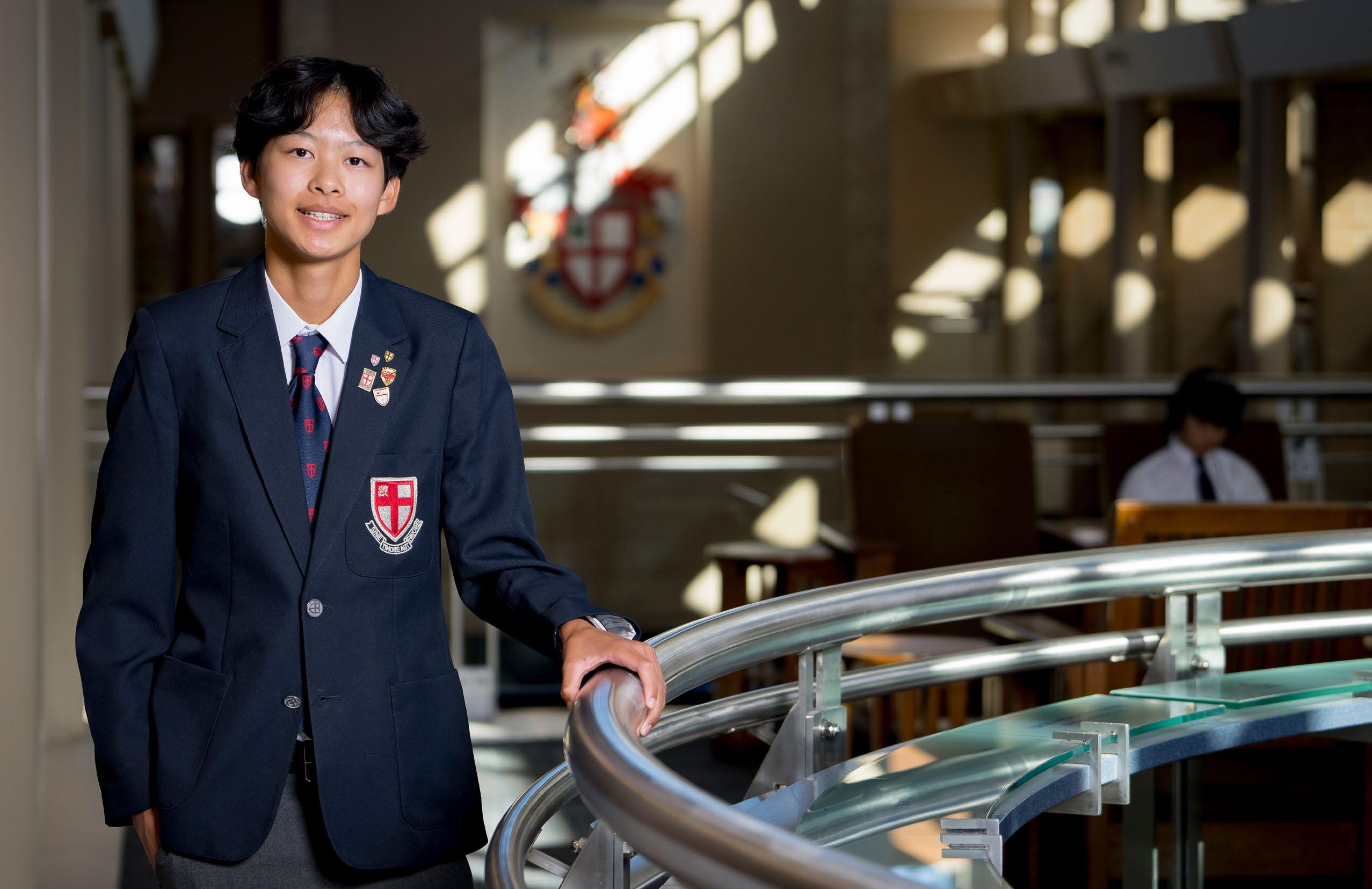
Course planning and selections is a whole-community event, and we look forward to supporting you along this reflective and goal-setting journey.
The 2024-25 timelines and processes are prepared with care. Should unforeseen circumstances require a change, we will provide updates to parents in the weekly eNews, update material on the School Portal, and connect with students via email, and update material on the Course Selection Canvas page.

PLANNING SELECTION PERSONALIZED COURSE CREATION
REFLECTIONS AND CHANGE REQUESTS
ALL STUDENTS:
View the Course Planning and Selection Video Overview, posted to the School Portal
Attend and engage in information sessions (as offered)
Submit course planning worksheets by April 26
Submit course requests by April 26
After receiving their full course schedule August 15th, submit any course change requests during the Course Change Windows if desired.
FOR 2023–24 GRADE 10s AND 11s :
Enroll in courses to meet graduation requirements and check your final requests using the Grad Requirements Checklist to ensure you meet those requirements
Be familiar with relevant entry requirements and program prerequisites for post-secondary applications
Book a meeting with your University Counsellor
PARENTS
View the Course Planning and Selection Video Overview, posted to the School Portal
Understand St. George’s School and Ministry of Education Graduation Requirements
Be familiar with the course information and selection process to support your child’s decision-making and self-advocacy
Advisors/Teachers – Are available to answer student questions and guide students to find reliable information
Heads of Department – Consider requests for student placement and determine final placement in streamed courses University Counsellors and Heads of Grade – Review student decisions and discuss implications for post-secondary planning
Ensure information is shared in a timely manner
Ensure policies are equitably upheld
Receive and process course requests
Work with Heads of Department for placement
Work with Heads of Grade, University Counselling, Student Support Success, and others for final schedule approvals
Generate student schedules
Receive and process course change requests
MARCH - APRIL 2024
1 on 1 Course Planning Meetings for current Grade 10s and 11s with their University Counsellor. In-School or Virtual Information Sessions for all current and new students.
Use the following links to download a printable worksheet for your grade to guide you through the planning and selection process.
• Into Grade 8
• Into Grade 9
• Into Grade 10
• Into Grade 11 and Grade 12
• New to St. George’s Students Into Grade 10-12
The Academic Handbook has every course that St. George’s School offers at the date of publication. Use this as a starting point to learn about each course by reading the description, type of course, primary modes of learning in the course, and typical amount of out-of-class work per week.
There are a number of advanced and accelerated options available to students, increasing through Grades 8–12. These courses are labeled as Honours or Advanced Placement (AP). These courses are characterised by:
• Increased pace.
• Increased complexity of learning outcomes.
• Increased number of learning outcomes.
• Increased responsibility on the student for independence in their learning including actively reviewing and previewing
To identify which characteristics may be present in an Honours or Advanced Placement course, look for the following key terms:
• Accelerated: Students experience the course's learning outcomes at a faster pace than the non-Honours equivalent course.
• Enriched: Students experience a course with greater depth and complexity of learning outcomes compared to the nonHonours equivalent.
• Advanced: Students are completing a course that is designed for students in a higher grade level. E.g. Grade 8 students completing a Grade 9 course.
There are a number of reasons students might consider an accelerated or advanced course. Rather than focusing on the grade students hope to earn in a course, what matters most is that they select a course that is the right style, pace, and fit for them — and that they’re able to do their best within that “sweet spot” of challenge.
Note: If it is deemed to be in the best interest of a student’s learning and experience to be removed from an Honours, Accelerated, or Advanced Placement course, a student may be moved to another course by St. George’s in consultation with the student, teacher, Head of Department, and Associate Principal of Academics.
Consider attending In-School or Virtual Information Sessions for all current and new students and Applying to Canada, the United States, and Internationally evenings.
Students entering Grades 11 and 12 must book an appointment with their St. George’s University Counsellor prior to submitting their course requests. Students will be emailed, notifying them of which University Counsellor they will meet with, along with details on how to book appointments. Appointments will be take place at lunch, after school, and for Grade 11s, also during their spares. Early March–April 26th, 2024. Students must complete their Course Planning Worksheet, Activity Log, and University Research Assignment and share these documents with their University Counsellor a minimum of 24 hours before their scheduled course planning meeting.
Current Grade 10 and 11 students should look each week at the email, “University Counselling Week Ahead” for available appointments with their assigned University Counsellor. Appointments will be available in the weeks leading up to Spring Break, and then upon return from Spring Break until the April 26th submission deadline. Students are invited to book appointments with their assigned University Counsellor during this time and parents are warmly encouraged to attend.
Note: Timelines and processes are subject to change. Students should refer to the Course Planning and Selection Button on the School Portal and pay attention to their school email for the most up-to-date information.
DEADLINE: APRIL 26, 2024
Course requests and worksheets are due for students entering Grade 9-12.
Students who have applied to a Grade 10 Cohort should wait to submit their course requests until instructed to. Students new to St. George’s should submit their requests based on the timeline provided in the New Student Orientation evening, and on the New Student Checklist
Each student submits their own course selection for review from the Head of Grade, Personal Counsellors, University Counselors, Associate Principals, and Principal.
To submit your course selection:
1. Go to your Grade’s submission form, ensuring you are logged into your St. George’s account.
Into Grade 8 (‘29)
Into Grade 9 (‘28)
Into Grade 10 (‘27)
Into Grade 11 (‘26)
Into Grade 12 (‘25)
2. Follow all prompts, including uploading your Course Planning Worksheet.
Note:
• Students must submit their requests by April 26th, 2024 at 4:00 pm. Please note, these requests will be considered final. There is no priority order to submissions.
• Students entering Grades 11 and 12 should wait to submit their choices until they have their 1:1 Course Counselling Session with their assigned University Counsellor.
• New students entering Grades 8-12 will be invited to submit their choices in May 2024, and will also be invited to a New Student Welcome Evening and follow up meetings to discuss course selections.
MAY-JUNE 2024
Student schedules are created.
St. George’s School believes in student-centered scheduling, where student choice is at the forefront of our scheduling. For students, this means they will not select courses from a predetermined Master Schedule. Instead, they will select their preferred courses and alternates, and the Master Schedule will be based on the combination of teacher availability and student requests. This approach will enable us to:
• Have a more accurate set of data as to what courses interest students.
• Achieve a higher percentage of fulfilling student requests.
• Be more responsive to student requests to determine the number of sections of courses, and which courses are offered.
In a small number of cases, we may have more students interested than we have spaces available or students may have a conflict when the Master Schedule is created. Additionally, in some cases, there will be insufficient student interest to offer a course. In both those cases, the School reserves the right to place a student in a different, relevant course to ensure a positive Academic Program for everyone.
Student schedules will be distributed, and the course change process will be outlined.
St. George’s School provides every opportunity to learn more about all our courses, meet with teachers, and connect with formal and informal mentors and advisors to put students in the best possible position for selecting the right schedule for them. Yet, we recognize that there are many reasons why a student may change their mind. Therefore, there will be multiple windows for course changes for students entering Grade 11 and 12. These windows have specific purposes and restrictions. Please consider changes carefully. When schedules are released, an electronic course change form will be shared with students. All changes are subject to availability and require students to pay attention to deadlines and details.
There are a number of reasons why students may want to change courses. Please keep in mind that there are many other types of support and solutions if you are feeling like a course isn’t the right fit for you. Your first step is always to speak directly with your teacher.
You might consider these questions as a starting point:
• Have other students felt the same way as I am right now? How have they coped?
• Do you (the teacher) think that I'm showing signs that the material is not the right zone of challenge for me (too much or too little)?
• What might I be able to do to fill in gaps or find an extra challenge?
• From what you (the teacher) have seen of my work so far, where do you think my strengths and weaknesses are?
• What are some ways I can actively make the best use of class time and homework assigned?
• How can I get further support from you or other peers?
• How do the concepts I am struggling with line up with other concepts — are they new from the course in the previous year?
• Is it review? Where does the course go from here?
• How can I get further support?
WINDOW (DATES TBC) PURPOSE
WINDOW #1
FULL CHANGES (ROUND 1)
August 15th at 8 AM to August 30th at 4 PM
WINDOW #2
FULL CHANGES (ROUND 2)
• Grade 8-9: Not open.
• Grade 10: Friday September 6th at 4 PM 1 to Friday September 13th at 4 PM.
• Grade 11/12: Friday September 6th at 4 PM to Friday September 20th at 4 PM.
WINDOW #3
STREAM CHANGE
Monday September 23rd to Start of Winter Break
WINDOW #4
GRADE 8/9 SEMESTER 2 ELECTIVE CHANGES
Monday December 2nd to the Start of Winter Break
• Add/drop any course(s)
• Must meet Course Load Requirements
• May not exceed number of spares permitted
• Must select from the Master Schedule.
• Possibility that desired course may be at capacity
• Course removed from report card/transcript
• May drop a Day 1 or Day 2 course
• May add another course
• Must meet Course Load Requirements
• May not exceed number of spares permitted
• Possibility that desired course may be at capacity
• Course removed from report card/transcript
• Grades from one section of the same course follows student to new section when moving
• Change stream of a course (in/out of accelerated Honours or Advanced Placement)
• Invitation for Grades 8 and 9 to change Semester 2 courses
• May not drop a course entirely
• Possibility that desired course sections may be at capacity
• Subject to School approval and teacher consultation
• Original course removed from transcript, kept on report cards (if issued)
• Grades 8/9 Semester 2 Elective Course Change Requests
• Possibility that desired course may be at capacity.
As the school year dates can be subject to change, students should consult THIS document throughout the year for any changes and links to Course Change Request Forms.
RESTRICTIONS /DETAILS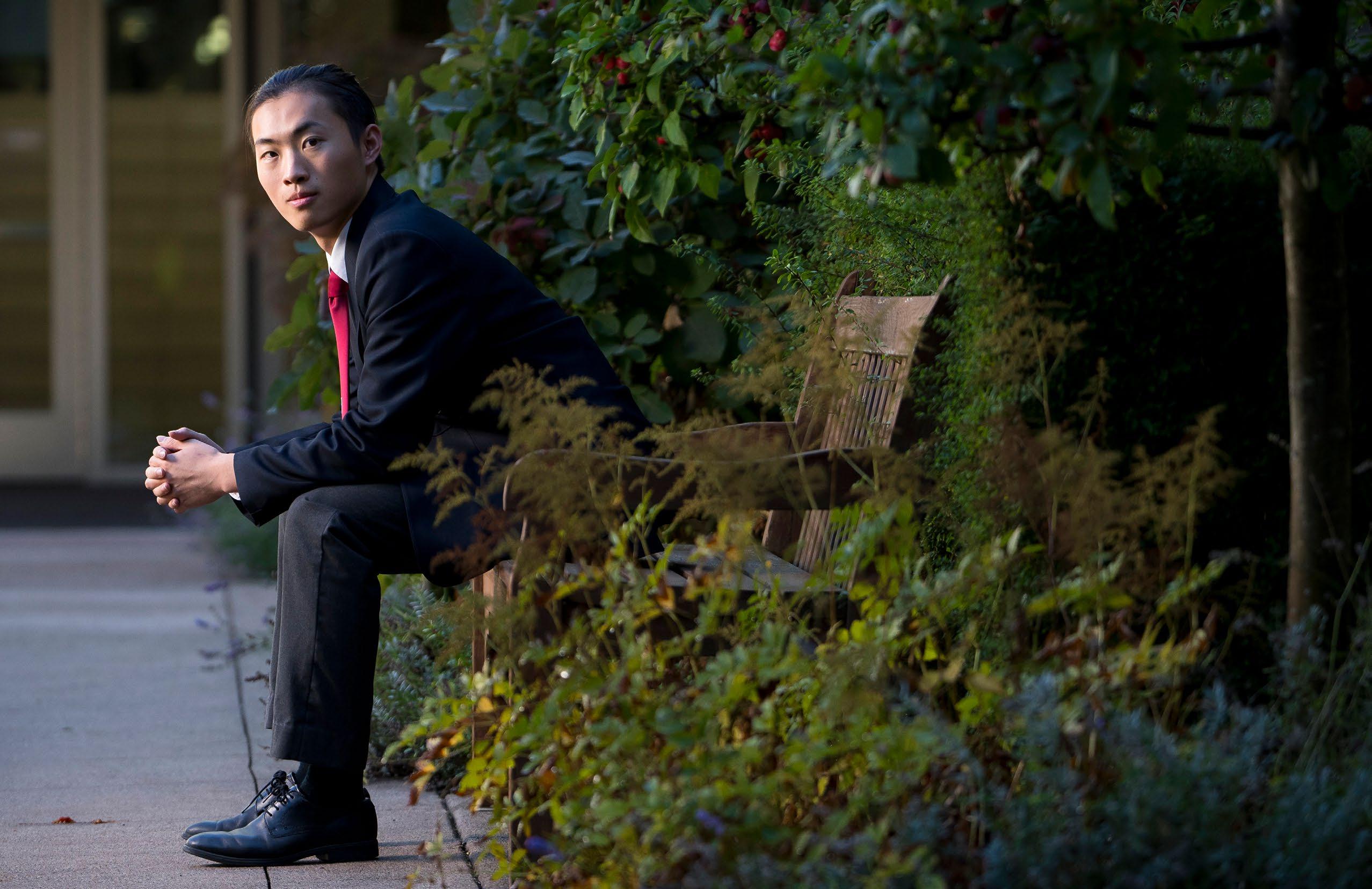
ACADEMIC HANDBOOK
Students who graduate from St. George's School earn a St. George’s Certificate of Graduation and the BC Dogwood Diploma. The chart below summarises graduation requirements for our students. All courses are 4 credits, unless otherwise noted. See this Worksheet for a usable copy you can use to track your graduation requirements.
* Indicates an additional St. George’s requirement that is in addition to BC Ministry of Education requirements
GRADE 11
Concert Band 11
AP Music Theory 12
Jazz Band 11
Studio Arts 2D 11
Studio Arts 3D 11
Theatre Production 11/12 Television Production 11/12
GRADE 12
AP History of Art 12
AP Studio Arts 12
Concert Band 12
Drama 12
Film Studies 11
Graphic Arts 11/12
Jazz Band 12
Media Arts 11/12
AP Music Theory 12
Studio Arts 2D 11/12
Studio Arts 3D 11/12
Theatre Production 11/12
Television Production 11/12
Grade 11 Career Life Connections 12A
Studies 11/11 Honours
Grade 12 Career LIfe Connections 12B (Capstone)
English Studies 12 (individual course or as double credit from AP English Literature or AP English Language)
11
12
11
In selecting courses, students need to be aware of both general and specific admission requirements for post-secondary institutions and their specific programs. Admission requirements and how applications are assessed are subject to change, requiring students to do continuous research to ensure they meet entrance requirements.
Students entering Grades 11 and 12 are advised to work closely with their St. George’s University Counsellor throughout the course selection process. It is ultimately the student’s responsibility to ensure he has the required courses for his post-secondary applications and is able to meet entrance requirements. Students will be supported in this by their St. George’s University Counsellor. St. George’s University Counsellors are well-versed in course planning and post-secondary admissions, and are advocates for each student, supporting and guiding him in his unique journey.
While some universities assess a student’s application holistically, taking into account factors such as a student’s character, extra-curriculars, and accomplishments, the academic profile remains paramount. Many universities base admissions solely on a student’s academic record. Students should also consider their strengths, interests, and abilities in choosing their courses as admission to university is competitive.
To ensure St. George’s students are university-admissible, they need both the required number of approved Grade 12 courses for admissions and the prerequisites for their program of interest at each institution. While focusing on Grade 12 academic courses, many universities also include an assessment of a student’s academic performance in Grades 10 and 11 in determining their admissions decisions.
11
•
REQUIRED
NUMERACY
10
10 | LITERACY ASSESSMENT 12
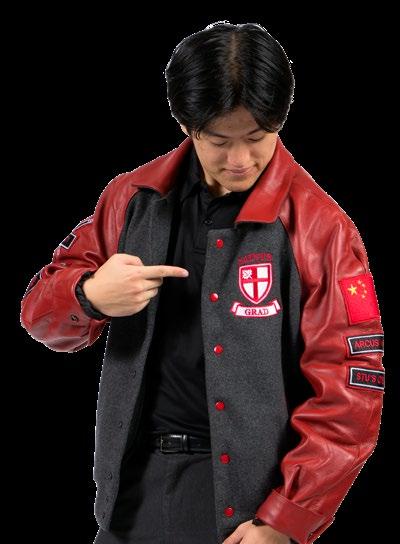
Our Education Program is founded on curricula and requirements from the BC Ministry of Education and Child Care. The resources below may be of interest to you:
• BC Graduation Program Policy Guide (Grades 10-12)
• BC Curriculum
• Provincial Assessments (Literacy 10 and 12; Numeracy 10)
• Indigenous-focused Course Graduation Requirement (new for Graduates of 2025)
• Reporting on Student Learning (Updates for 2024-25)
University Admissible Courses are specific courses used by universities to assess a student’s application and to calculate a student’s academic average for admissions purposes. Students must graduate from St. George’s School with English Studies 12 or English First Peoples 12, plus at least four (five are highly recommended) additional university-admissible courses. There are other Grade 12 courses that we offer, which will contribute to a student’s learning and self-discovery, as well as to their other graduation requirements. See the Course Descriptions for a full list of all Grade 12 courses.
University Admissible Courses are specific courses used by universities to assess a student’s application and to calculate a student’s average mark for admissions purposes. Students must graduate from St. George’s School with English Studies 12 or English First Peoples 12, plus at least four (five are recommended) other university-admissible courses. There are other Grade 12 courses that we offer that will contribute to a student’s learning and self- discovery as well as to their other graduation requirements See the Course Descriptions for a full list of all Grade 12 courses.
The following courses are generally regarded as university-admissible. It is crucial for students to know which courses their prospective universities will accept. Note: all courses on this list are subject to availability due to enrollment.
• Most Advanced Placement courses (See Course Descriptions for a listing)
• 20th Century World History 12
• Anatomy & Physiology 12
• Calculus 12
• Chemistry 12
• Comparative Cultures 12
• Computer Programming 12 (Accepted by a limited number of schools)
• Contemporary Indigenous Studies 12
• E-Commerce 12 (Accepted by a limited number of schools)
• Economics 12
• English First Peoples 12
• English Studies 12
• French 12
• Geology 12
• Latin 12
• Law Studies 12
• Mandarin 12
• Physical Geography 12
• Philosophy 12
• Pre-Calculus 12
• Physics 12
• Specialized Science 12 (Accepted by a limited number of schools as a Grade 11 Science)
• Spanish 12
10
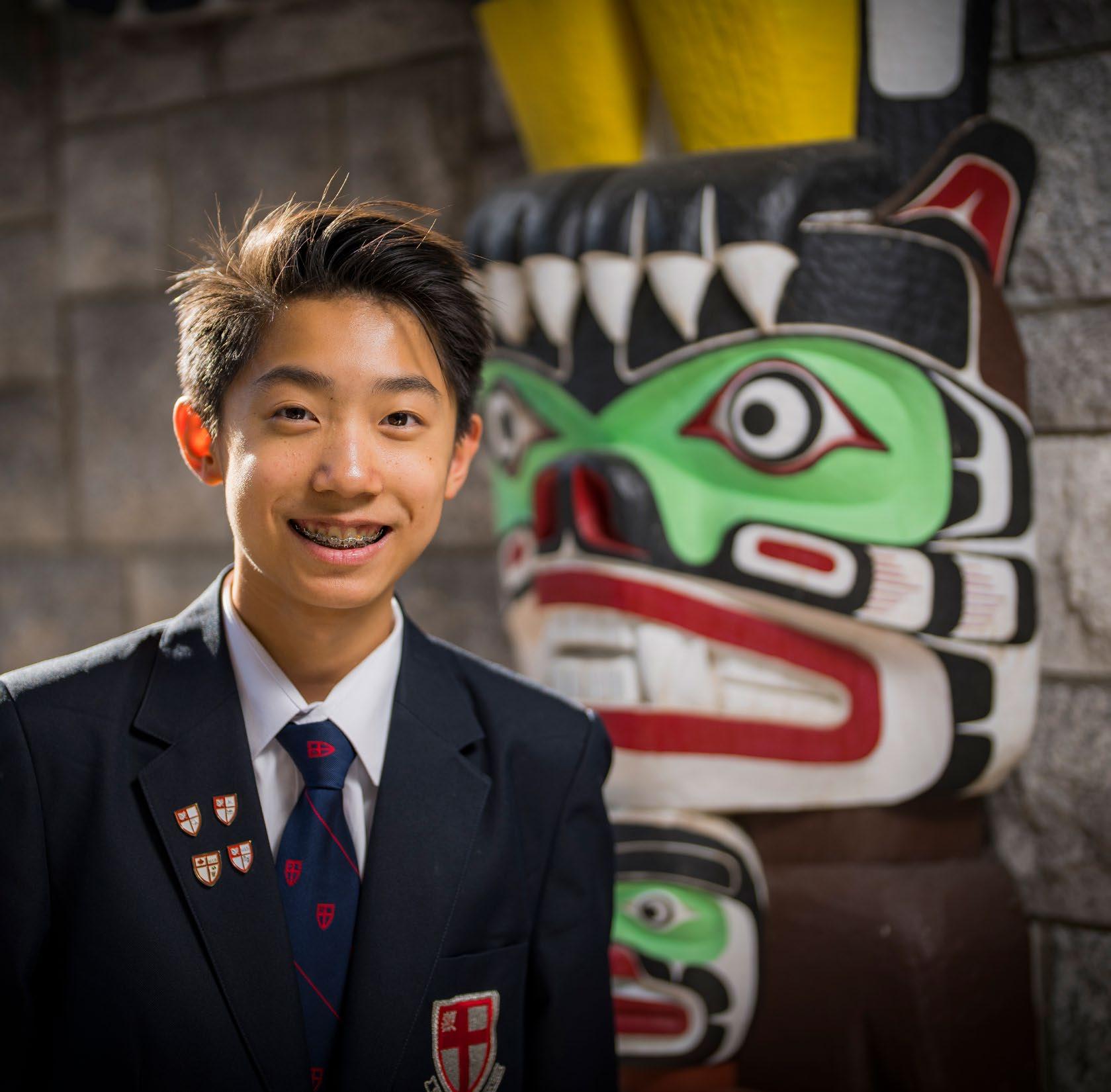
As part of the new BC. Ministry of Education Indigenous graduation requirements and St. George’s School’s contribution to advancing the Calls to Action from the Truth and Reconciliation Commission we are proud to offer a shared commitment and diverse learning experiences for our community. In year two of our implementation plan, students will have a dedicated space in their timetable for a common experience and additional opportunities for further exploration. We are grateful to our neighbours and hosts from the Musqueam First Nation for their teachings and guidance, and their ongoing work with us. You can learn more about the big picture from the BC Ministry of Education and Childcare and the First Nations Education Steering Committee
GRADE 12
• English Fist Peoples 12
• English First Peoples 12
GRADE 12
GRADE 11
• Contemporary Indigenous Studies 12
• Contemporary Indigenous Studies 12
• BC Fist Peoples 12
May Choose:
• English Fist Peoples 12
• Contemporary Indigenous Studies 12
• BC Fist Peoples 12
May Choose:
All students take:
• English Fist Peoples 12
First Peoples Literary Studies 10 (Semester 1)
• Contemporary Indigenous Studies 12
CLASS OF 2025
CLASS OF 2026
OF 2026
CLASS OF 2026
• BC Fist Peoples 12 OF
ONGOING PLAN 2025–26
May Choose:
May or Must* Choose one of:
• English Fist Peoples 12
• Contemporary Indigenous Studies 12
• Contemporary Indigenous Studies 12
(* Must take one if CIS 12 was not taken Grade 11)
• BC Fist Peoples 12
May Choose:
• English Fist Peoples 12
All students take: Contemporary Indigenous Studies 12
• Contemporary Indigenous Studies 12
• BC Fist Peoples 12
May Choose:
All students take:
• English Fist Peoples 12
First Peoples Literary Studies 10 (Semester 1)
• Contemporary Indigenous Studies 12
2026
2027
CLASS OF 2026
CLASS OF
CLASS
CLASS OF
OF 2028
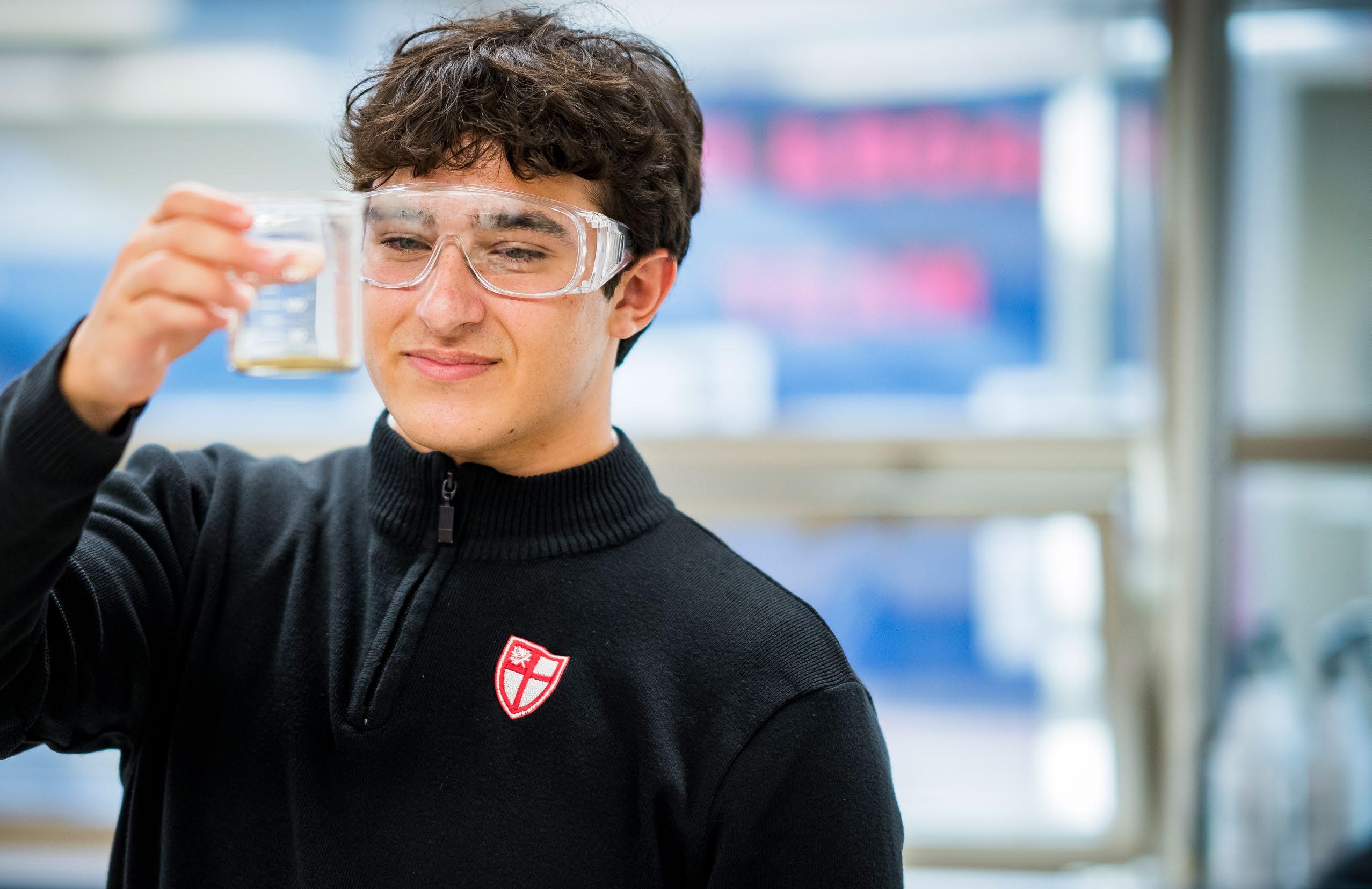

The ADST Department’s philosophy centers on the belief that education thrives through hands-on projects and experiential learning. Our teachers are committed to fostering an environment that ignites creativity, sharpens critical thinking, and cultivates problem-solving skills.
Using experiential learning, our courses encourage students to apply theoretical knowledge in practical settings, ensuring they not only acquire technical proficiency but also develop analytical and problem-solving abilities. Guided by the Design Thinking Process, our approach to education is a pathway to innovation, teaching students to empathize, ideate, prototype, and iterate.
The ADST Dpartment is a community that values inclusivity and collaboration. By merging cutting-edge technology with traditional craftsmanship, we equip students with a versatile skill set, ready to navigate the challenges of the 21st century.
STUDENT EXTENSION OPPORTUNITIES BEYOND THE CLASSROOM
Robotics competition (VEX), Robot Wars, Makers Club, Business, Investment and Entrepreneurship Clubs, Dragon’s Lair Pitch Competition
COURSES OFFERED
Business Education 8, Computer Studies 8, Drafting 8, Robotics 8, Woodwork 8, Business Education 9, Computer Programming 9, Drafting 9, Electronics and Robotics 9, Woodwork 9, Electronics and Robotics 10, Entrepreneurship and Marketing 10, Graphic Production 11, Technology Explorations 10, Web Development 10, Computer Programming 11, Computer Science 11, Graphic Production 12, Woodwork 11, AP Computer Science A 12, AP Macroeconomics 12, AP Microeconomics 12, Computer Programming 12, E-Commerce 12, and Woodwork 12.
The Career Life Education Department philosophy guides students along a transformative journey founded on the process of self-discovery. The program's fundamental belief is that by understanding what motivates and inspires them, students are better equipped to make informed decisions in various aspects of their academic and personal lives. The emphasis lies on helping students discern their values, providing a foundation that influences their choices in future course selections, co-curricular activities at Saints, university program selections, and future career paths.
Our Career Life Education Program empowers students to gain a deeper understanding of themselves as people and learners. It encourages reflection on the person you are, the future you want to experience, and the best pathways for reaching that future. Through high quality career education, students can synthesize their personal values and career pursuits, enabling them to make meaningful contributions and positive impacts on both their immediate community and the wider world. Through a structured curriculum and experiential learning opportunities, the program fosters character development, leadership skills, and a sense of personal and civic responsibility. CLE culminates in their Grade 12 year with a semester-long Capstone project whose dual focus on personal passions and external impact epitomizes what the Career Life Connections (CLC) experience is all about. By embarking on this journey, students are not only equipped with the tools to navigate their academic and professional trajectories successfully, but they also become agents of positive change, inspiring and influencing those around them.
STUDENT EXTENSION OPPORTUNITIES BEYOND THE CLASSROOM
Volunteer, mentorship and work experience connections, Careers Day, Internship opportunities.
COURSES OFFERED
Career Education 8, Career Education 9, Career Life Education, Career Life Connections.
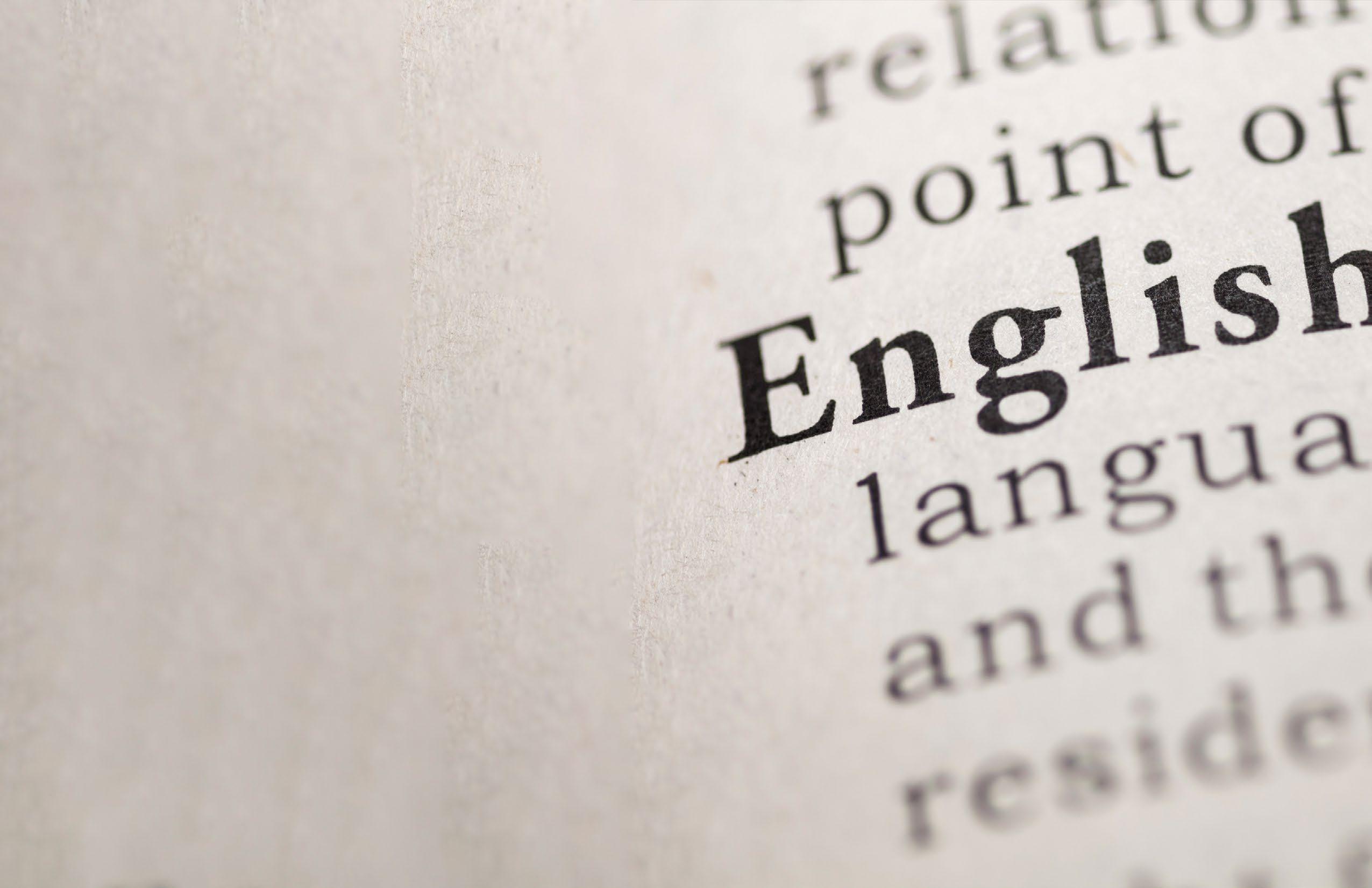
DEPARTMENT PHILOSOPHY
The English Department is committed to providing all boys with varied opportunities to help them cultivate a love of literature, become independent thinkers, and develop a voice that’s distinctly theirs. Beyond preparing students for the demands of post-secondary education, we aim to foster a critical and explorative appreciation for literature and the nuances of language by engaging with perspectives different from our own. Our classrooms are places of curiosity, inquiry, and creativity — supported (not supplanted) by technology, fundamentally driven by a collaborative spirit and individual contributions. We want learners of all levels to take risks in pursuing excellence. Teachers place understanding of boys’ learning styles, needs, and the diverse cultures of the School at the forefront of lessons. As students progress through their years at St. George’s School, they will make important choices in focus (whether it be Creative Writing, Spoken Language, New Media, and/or Composition) and breadth of learning (through Honours or AP courses) to form a challenging, but cohesive program of study that is personally enriching.
Opus, Poetry In Voice, Book Club
COURSES OFFERED
English 8, English 9, English First Peoples Literary Studies 10, Creative Writing 10, New Media 10, Spoken Language 10, Composition 11, Composition 11 Honours, Literary Studies 11, Literary Studies 11 Honours, Writers’ Workshop 11, AP English Language & Composition 12, AP English Literature & Composition 12, English First Peoples 12, English Studies 12, and Journalism 12.
ENGLISH 8
ENGLISH
ENGLISH 9
FIRST
STUDENTS MAY ADVANCE TO A COURSE OF THEIR CHOOSING BASED ON THEIR DESIRED LEVEL OF CHALLENGE.
ENGLISH STUDIES 12
AP
ENGLISH STUDIES 12
ENGLISH
DEPARTMENT PHILOSOPHY
The Languages Department is dedicated to providing a practical and fun language learning experience that emphasizes culture, communication, and creativity. Our approach promotes collaboration, empathy, growth, and self-discovery. By exposing our students to new perspectives and equipping them with relevant language skills, we empower them to become confident and effective communicators in a dynamic and global landscape.
STUDENT EXTENSION OPPORTUNITIES BEYOND THE CLASSROOM
Francophone Culture Club, National French Contest (Le Grand Concours), National Spanish Exam, Chinese Culture Club.
COURSES OFFERED
French 8, French 8 Foundations, French 8 (Honours), Latin 8, Mandarin 8, Mandarin 8 (Honours), Spanish 8, French 9, French 9 (Honours), Latin 9, Mandarin 9, Spanish 9, French 10, French 10 (Honours), Latin 10, Mandarin 10, Mandarin 10 (Honours), Spanish 10, Spanish Introductory 11, French 11, Latin 11, Mandarin 11, Spanish 11, AP Chinese Language & Culture 12, AP French Language 12, AP Latin 12, AP Spanish Language & Culture 12, French 12, French 12 (Honours), Latin 12, Mandarin 12, and Spanish 12.
Please note, in 2024-25, Mandarin 9 and Spanish 9 are introductory level courses and do not have Grade 8-level prerequisites as shown in the tables below and in the course descriptions.

MANDARIN 9
FRENCH
FRENCH 9
FRENCH 8 FRENCH 8 HONOURS
9 HONOURS
FRENCH 10 FRENCH 12
FRENCH 10 HONOURS
FRENCH 11
FRENCH 12 HONOURS
AP FRENCH LANGUAGE 12
Movement between streams is possible with a diagnostic assessment.
SPANISH 10 14
SPANISH INTRODUCTORY 11
SPANISH 9
MANDARIN 11
LANGUAGE
SPANISH 11 SPANISH 12
12
DEPARTMENT PHILOSOPHY
Mathematics is more than a sequence of calculations that lead to the correct solution to a problem. It is a state of mind and an intellectual art. It is a discipline that goes beyond its immediate, apparent, and obvious applications. It confirms, expands, and diversifies the meaning of what it is to be human, and its language is accessible to people of all cultures and backgrounds. Mathematics has been with us ever since we began using language, and the the requirement for mathematics was, and is, inescapable ever since we civilized.
It is a way of analytical thinking where the benefits extrapolate well beyond the boundaries of a classroom. Our world out there is crying out for thinkers; people who can critically analyze, deductively reason, substantiate their thought,s and come up with creative and innovative solutions to problems whose consequences greatly affect the world we live in.
The study of Mathematics can encourage the development of such thinkers. The way in which you will be taught (and the way in which you will be challenged to learn) is for you to understand what it is you are learning... for you to struggle, negotiate, and overcome.... emerging as a more resilient, more well-thought-out, more communicative thinking individual. It is with this hope that we look forward to our experience with you in the classroom this year. We are optimistic that you are up to the challenge.
Fusion Program: Fusion is an opportunity for Grade 10s to explore the world of STEM (Science, Technology, Engineering, and Math) in an integrated and experiential way. All Cohort members take Science, Math, English, and the Fusion (Technology Exploration 10) course as one group. Where possible, curricula from these courses are blended in order to deepen connections and apply knowledge.
Co-Curricular Competitive Math Program (CCMP). A Grade 9–12 by invitation co-curricular where students participate in a mixture of math contest preparation and advanced topics.
Annual Math Contests: American Math Competitions ( AMC 8, AMC10, AMC 12); American Invitational Math Exam; Canadian Open Math Contest (COMC) that leads to potentially qualifying to the Canadian Math Olympiad and representing Canada at the International Math Olympiad; and Waterloo contests like the Canadian Senior and Intermediate Math Contest, Pascal, Cayley, Fermat, Fryer, Galois, Hypatia, Euclid, and Gauss.
Math 8, Math 8 Honours, Math 8 Honours Enriched, Math 9 Honours, Math 9 Honours Enriched, Math and Pre-Calculus 10, Math and Pre-Calculus 10 Honours Enriched, Pre-Calculus 11 Honours Enriched, Pre-Calculus 12 - Gr 11, Pre-Calculus
12 - Gr 11 Honours Enriched, Advanced Topics in Mathematics 12, AP Calculus AB 12, AP Calculus BC 12A, AP Statistics 12, Calculus 12, Pre-Calculus 12
MATH COURSES
AVAILABLE TO: REGULAR PACE
GRADE 8
STUDENTS

GRADE 9
STUDENTS
GRADE 10
STUDENTS
GRADE 11
STUDENTS
GRADE 12
STUDENTS
Math 8
Math 9
ADVANCED AND/OR ACCELERATED
Math 8 Honours: Math 8 and Math 9 combined
Math 9 Honours; Math 9, Foundations of Math, and Pre-Calculus 10
ADVANCED AND ENRICHED
Math 8 Honours Enriched: Math 8 and 9 combined and contests
Foundations of Math and Pre-Calculus 10 (Competition)
Foundations of Math and Pre-Calculus 10
Pre -Calculus 11
Foundations of Math 11
Pre-Calculus 12 Calculus 12
Pre-Calculus 11
Pre-Calculus 11 (Competition)
Pre-Calculus 12 AP Statistics
Pre-Calculus 12 (Competition) AP Calculus BC 12A
AP Calculus BC 12A
AP Calculus AB 12 AP Statistics
Advanced Topics in Mathematics (For those who have already completed AP Calc BC)
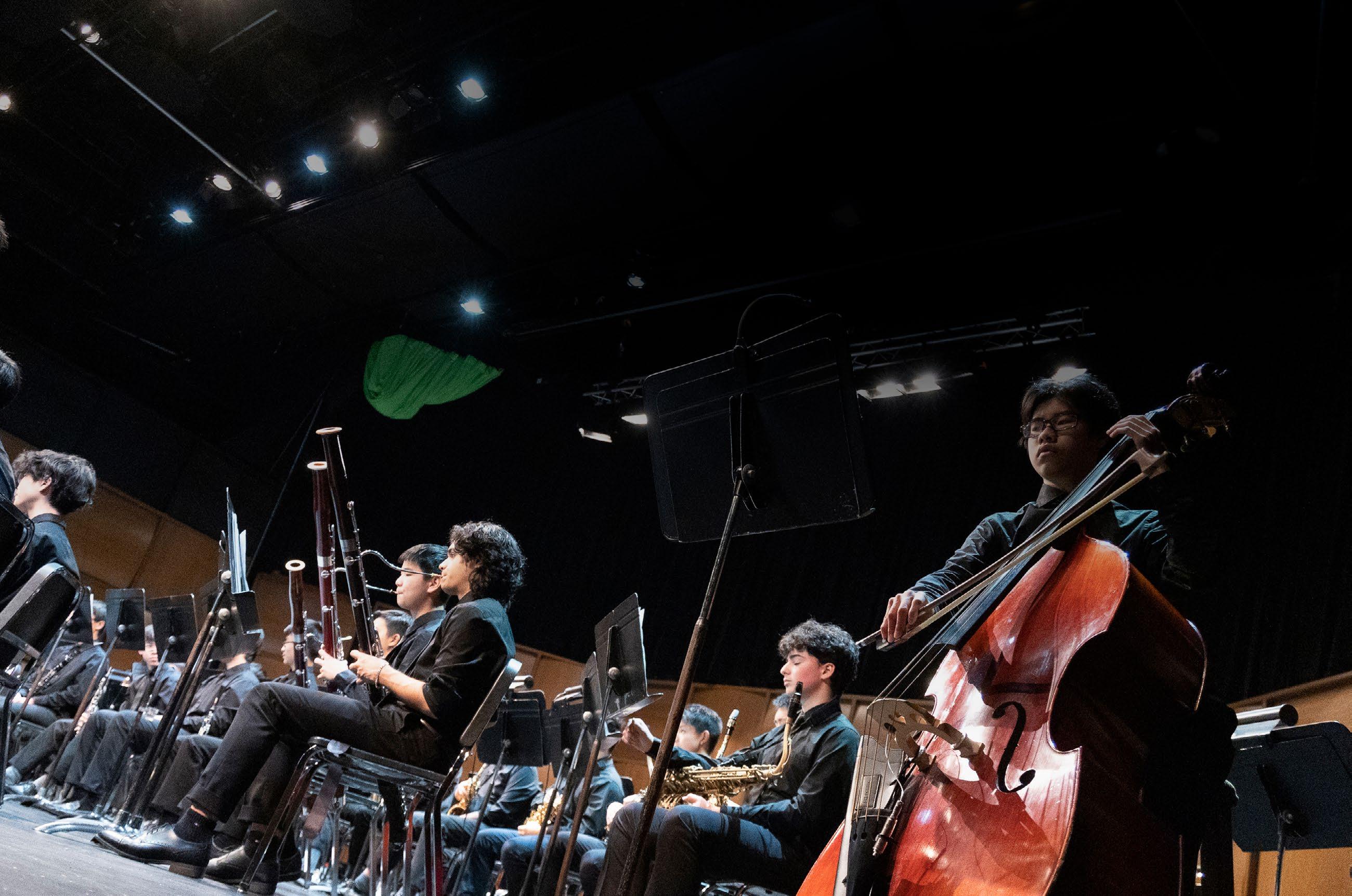
Our goal is to provide each student with the best possible Music education. Through learning to play an instrument, students will be challenged to develop an informed and inquiring mind that enables them to engage the fundamental issues of their art and to become effective cultural leaders in society.
The study of Music brings growth and development in so many ways. By performing in both large and small ensembles, students will develop highly refined listening skills, personal confidence, healthy self-esteem, cooperation, collaborative skills, and leadership qualities.
Through the process of individual study of an instrument, each student will develop self-discipline, the ability to set shortterm and long-term goals, and better understand achieving quality through perseverance and dedication. Students will also gain many other qualities, including Empathy, Humility, Respect, Responsibility, and Resilience: the Core Values of St. George's School.
Most importantly, we believe that the study of Music allows us to celebrate and preserve our cultural heritages, and also explore the realms of expression, imagination, and creation resulting in new knowledge. It is a medium that allows us to express what words cannot.
St. George’s Wind Ensemble, co-curricular open (by audition) to any student enrolled in the Band course at their corresponding grade level Junior (8-10) or Senior (10–12) Jazz Ensemble. Curricular course open by auditions to any students enrolled in the Band course at their corresponding grade level.
Concert Band 8, Concert Band 9, Concert Band 10, Concert Band 11, Concert Band 12, Junior Jazz Ensemble 8, Junior Jazz Ensemble 9, Junior Jazz Ensemble 10, Senior Jazz Ensemble 10, Senior Jazz Ensemble 11, Senior Jazz Ensemble 12, AP Music Theory 12

At St. George’s School we believe in the transformative power of Outdoor education to foster holistic development and inspire a lifelong connection to the natural world. Our philosophy is grounded by the belief that Outdoor and Experiential Education allows students to develop self-awareness, inspires a sense of responsibility, and creates a deeper connection to natural spaces. Through the Outdoor experiences offered at St. George’s School, students will connect with their peers, overcome challenges together, and grow as a community while developing the character strengths that all students need to excel in our ever changing world.
Grade 8 Community Building Trip, Grade 8 Navig8 Trip, Grade 9 Explorer Trips, and Grade 10 Sea to Sky Trips.
Discovery 10 Cohort: The Discovery Cohort is an opportunity for Grade 10 students to engage in Outdoor and experiential learning throughout their Grade 10 year. They will participate in 50+ days of Outdoor experiences during the year and will complete PHE, Science, English, Socials, and and Outdoor Education elective as a group. When possible, curriculum will be integrated with the Outdoor Experiences and will focus on creating a deeper connection with their peers, and natural spaces.
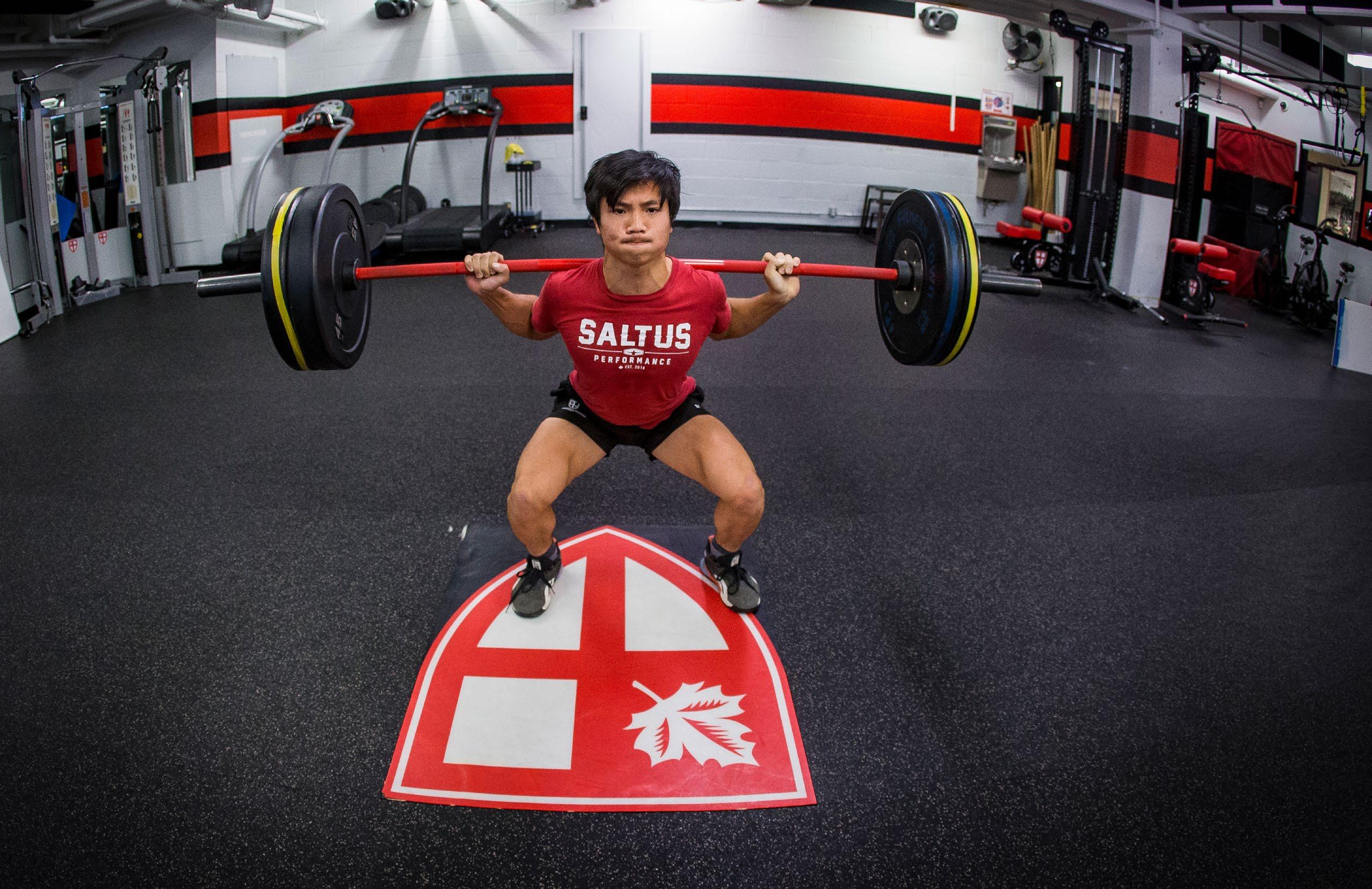
The philosophy of the St. George’s Physical and Health Education (PHE) Department aligns with the British Columbia Physical and Health Education curriculum, focusing on the principle of 'Fit For Life.' Our goal is to introduce and cultivate students' comprehension and proficiency in a wide range of activities within an enjoyable and supportive classroom setting.
The health component of our curriculum delves into the concept of wellness, encouraging students to explore diverse factors affecting their physical and mental well-being. Through this exploration, students gain insights into themselves and the world around them.
Our approach prioritizes the creation of a fun, safe, and inclusive environment conducive to students challenging themselves and enhancing their skills across a broad spectrum of activities. We strive to impart an appreciation for the role of physical activity in maintaining overall health and wellness, nurturing students' enthusiasm for active participation in all our courses.
The PHE Team supports the Athletics Department in providing a wide range of cocurricular choices for our students to pursue their specific areas of interest.
Physical and Health Education 8, Physical and Health Education 9, Physical and Health Education 10, Fitness and Conditioning 11, Fitness and Conditioning 12, and Active Living 12.
The St. George’s Science Department endeavours to empower students with the confidence to tackle challenges through research and experimentation. Recognizing the inherent biases in knowledge, we focus on developing techniques for creating informed, ethical, and inquisitive citizens and scientists.
Our curriculum emphasizes problem-solving using mathematics and the scientific method, instilling practical skills for real-world challenges. We encourage students to extrapolate ideas into new domains, fostering creativity and innovation.
We work hard to cultivate intellectual curiosity. We inspire students to ask big questions about the world, aiming not only to impart knowledge but also to ignite a passion for lifelong learning and exploration.
Clubs - Many student led clubs exist to enrich learning in specific areas of interest. These include subject specific clubs as well as clubs focused on writing, publishing, or fun activities such as beekeeping.
Science Fair - This event allows students to take a deep dive into a single topic of interest and compete with others across the province.
Competitions - Students compete against other students across the country and worldwide to put their knowledge, problem solving, and engineering skills to the test.
Science 8, Science 9, Science 10, AP Physics 1 Honours 11, Chemistry 11, Chemistry 11 (Honours), Earth Sciences 11, Physics 11, Anatomy and Physiology 12, AP Biology 12, AP Chemistry 12, AP Environmental Science 12, AP Physics 2 Honours 12, Chemistry 12, Geology 12, Physics 12.


In Social Studies, our mission is to cultivate engaged and responsible citizens who are equipped with the tools to navigate an ever-changing world. Through a commitment to critical thinking, curiosity, and inquiry, we empower students to question, analyze, and shape their understanding of society.
We focus on literacy in its diverse forms, from media literacy to persuasive writing, equipping students with the skills to effectively communicate and advocate for their ideas. Our classroom activities and assessments primarily revolve around lively discussions and in-depth research projects, fostering collaborative learning and critical analysis. Additionally, many courses include guest speakers and offsite learning opportunities to make connections to real world issues.
Central to our mission is the reconciliation of past and present, preparing students to actively shape the future by understanding historical contexts and promoting empathy. In doing so, we aim to inspire a generation of compassionate and informed global citizens poised to make positive contributions to society.
Saints Conference: Model United Nations
Saints Conference: Debate History Club
History Bowl & Bee Competition
Geography Club
Great Canadian Geography Challenge
COURSES OFFERED
Social Studies 8, Social Studies 9, Social Studies 10, Contemporary Indigenous Studies 12, 20th Century World History 12, AP Comparative Government & Politics 12, AP European History 12, AP Human Geography 12, AP Psychology 12, AP World History 12, Comparative Cultures 12, Law Studies 12, Philosophy 12, Physical Geography 12, and Urban Studies 12.

St. George’s School Theatre Arts: A place for those longing to explore, create, perform, and belong. Theatre Arts, as a part of St. George's Arts, offers a wide array of performance, technical, analytical, and creative courses spanning both stage and screen. Theatre Arts courses encourage students to develop their awareness and use the elements of Drama, Technical Theatre, Film Study, and Creation to invent works that are related to their personal interests and experiences. In these courses, students will experience being a performer, audience, playwright, technician, designer, and director. Through the process of taking on roles, students develop and express empathy for people in a wide range of situations. They develop the ability to interpret and comment on a range of works and activities and evaluate their own and others’ creative work.
All Grades: Saints Players Theatre Company - Cast, Crew, Front of House, Publicity. (Sister schools as well) Facilitating our students with our sister school productions.
TVP 11 & 12 – Vancouver- wide School Film Festival. / Production set field trips.
Drama 11 & 12 – BC Zones and BC Drama Festival.
Drama 8–12 – Live theatre performance field trips.
DIRECTING AND SCRIPT DEVELOPMENT 11 – Film/movie viewing field trips
COURSES OFFERED
Drama 8, Drama 9, Drama 10, Directing and Script Development 11, Drama 11, Television Production 11, Theatre Production 11, Drama 12, Television Production 12, Theatre Production 12, and Theatre Company 12.
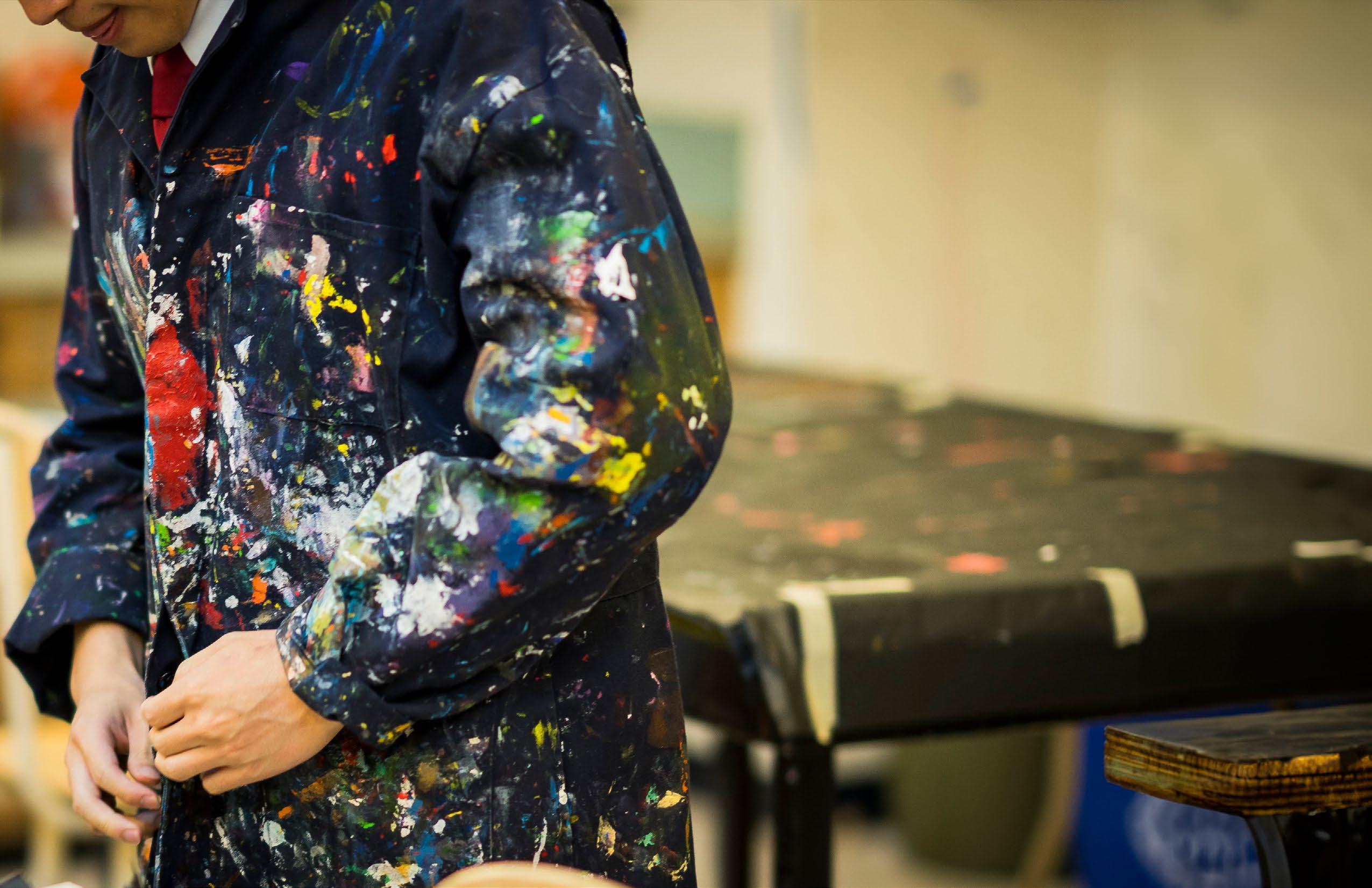
Engaging Head, Heart, and Hand. In Visual Arts classes, students are preparing to navigate an everchanging world by learning to engage their imagination and creativity, explore perception, and create meaning. Students are guided through collaboration, employing multiple intelligence strategies, encouraging self expression, purposeful play, and technical excellence. The process of personal inquiry fosters independence and cultivates a confident attitude towards new possibilities. The arts remind students that thinking and feeling do not need to be limited by language.
Students can choose from a variety of classes including 2D Studio Arts that cover drawing, painting, design, and printmaking, Ceramics includes wheel throwing, hand building and sculpture. Media Arts includes Animation, Film, Design and Photography, AP Studio Arts, and AP History of Art 12.
COURSES OFFERED
Art 8, Ceramics 8, Media Arts 8, Animation 9, Art 9, Ceramics 9, Media Arts 9, Media Arts 10, Studio Arts 2D 10, Studio Arts 3D 10, Graphic Arts 11, Media Arts 11, Studio Arts 2D 11, Studio Arts 3D 11, AP 2-D Design Portfolio 12, AP 3-D Design Portfolio 12, AP Studio Art: Drawing 12, Graphic Arts 12, Media Arts 12, Studio Arts 2D 12, AP History of Art 12, and Studio Arts 3D 12.

The post-secondary planning process is an integral part of a St. George’s education and permeates much of the thinking and actions of our students, from course planning, to co-curricular pursuits, to self-reflection. The University Counselling Department is committed to helping students become the most authentic version of themselves by guiding them towards opportunities to engage with life and learning. The department values each student for who he is and recognizes that each person’s path is unique.
Students are encouraged to immerse themselves inside and outside the classroom, explore their interests, rise to new challenges, and find the things that inspire them. The University Counselling Department envisions that through this process, students will develop a strong sense of self and purpose, eventually pursuing meaningful careers where they will be happy, successful, and committed to making the world better. The department provides current information about post-secondary options, university admissions, athletic recruitment, gap years, scholarships, and more. The University Counselling Department’s goal of supporting students in finding the right university or future plan requires a holistic approach, and places the importance on fit rather than prize.
• 75+ University Visits to St. George’s School
• University Ambassadors Club
• University Counselling Connection Block
• Various special events and presentations
• University Fairs
• University Workshops
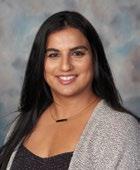
JESSIE BAHIA Registrar jbahia@stgeorges.bc.ca

CHRIS VYTASEK Associate Principal Academics cvytasek@stgeorges.bc.ca

STEPHEN ZIFF Deputy Associate Principal Academics sziff@stgeorges.bc.ca
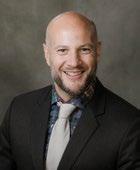
WES BOISE Theatre Arts wboise@stgeorges.bc.ca
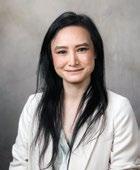
STEPHANIE CHAN English schan@stgeorges.bc.ca
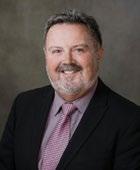
ANDREW JONES Mathematics ajones@stgeorges.bc.ca
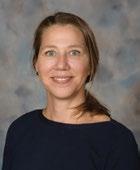
SANTHE LeBLANC Visual Arts sleblanc@stgeorges.bc.ca

DEAN MARKEL Music dmarkel@stgeorges.bc.ca

JONATHAN MERGUI Applied Design, Skills, & Technology jmergui@stgeorges.bc.ca
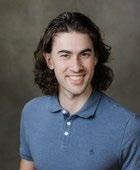
NATHAN MOENS Science nmoens@stgeorges.bc.ca

MILICA SEVER Languages msever@stgeorges.bc.ca
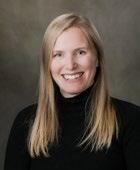
CARLY WENNER Social Studies cwenner@stgeorges.bc.ca
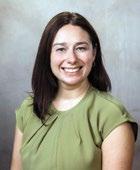
SARAH McLEAN Career Life Education smclean@stgeorges.bc.ca
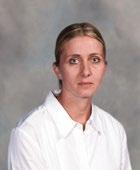
CHRISTINE WESSLER Head of University Counselling cwessler@stgeorges.bc.ca
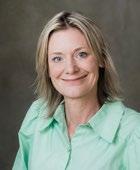
LARA SLEATH Assistant to University Counselling lsleath@stgeorges.bc.ca

VERNE BECOTT University Counsellor vbecott@stgeorges.bc.ca
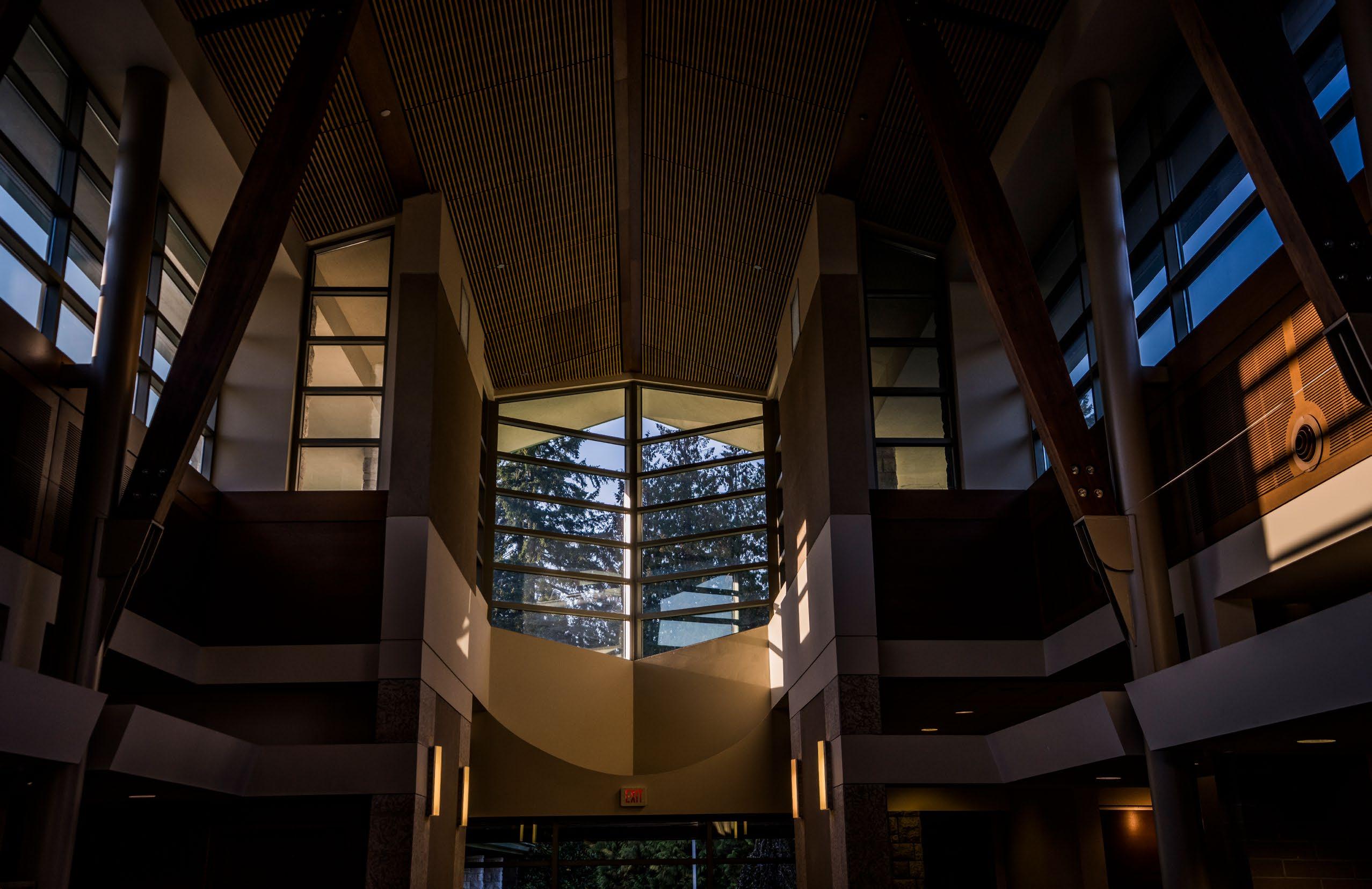
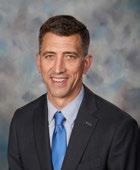
GUY Da SILVA PHE gdasilva@stgeorges.bc.ca
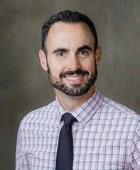
RYAN CHAPMAN University Counsellor rchapman@stgeorges.bc.ca
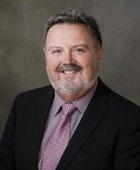
ANDREW JONES University Counsellor ajones@stgeorges.bc.ca

DIVA SHRESTHA University Counsellor dshrestha@stgeorges.bc.ca
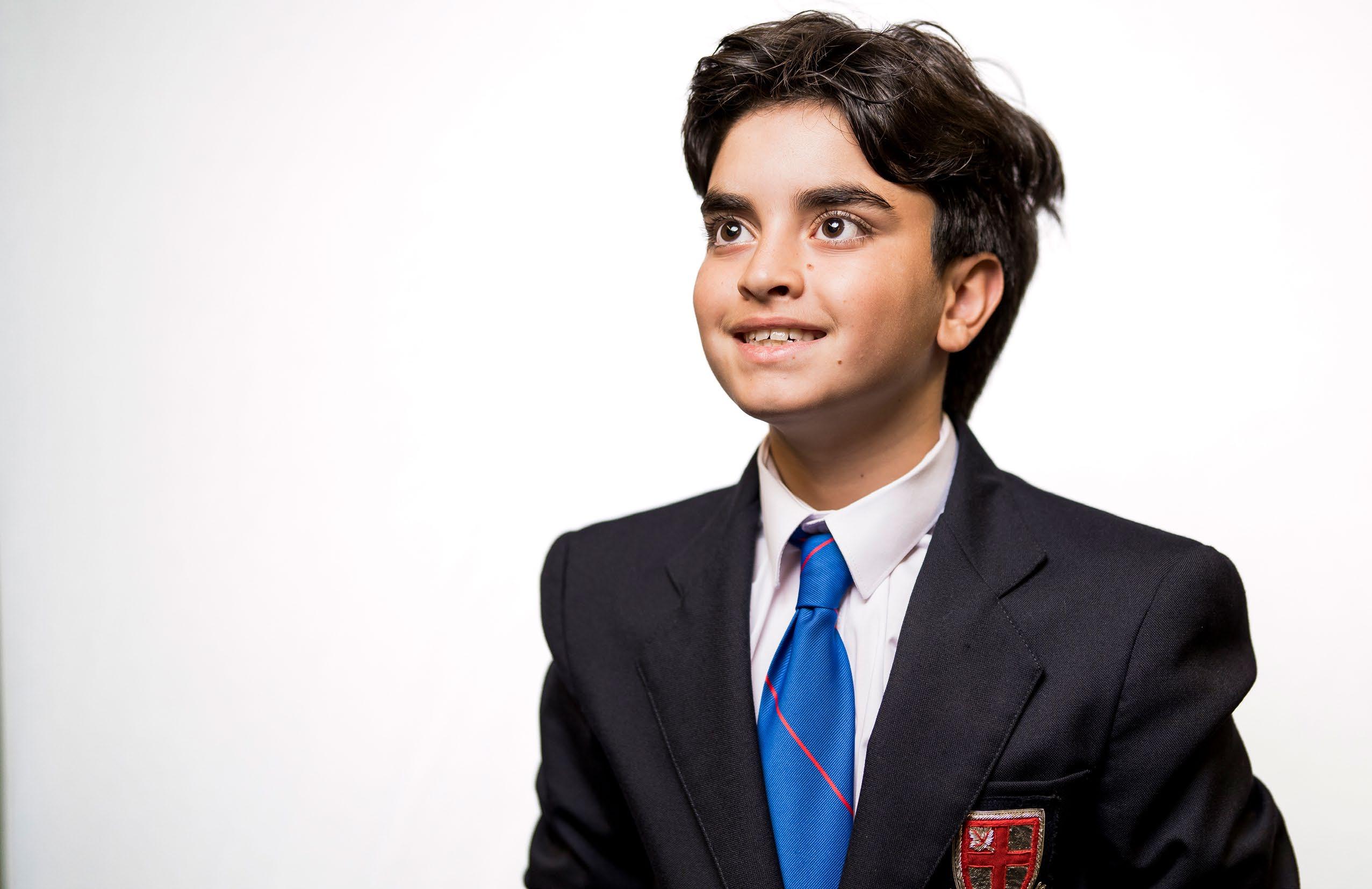
COURSE DESCRIPTIONS
26
Dear Students,
Welcome to Grade 8! My name is Mr. Scribani, your Head of Grade 8, and I look forward to getting to know you better this year. I have high hopes for each of you as you explore new activities and interests, pushing beyond your comfort zone to meet new people and embrace new experiences. As you try new things, you might feel a mix of excitement and nervousness — it's okay to feel this way! Start by joining a club or participating in a new sport, and seek support and guidance from your classmates or teachers.
Throughout the year, I will guide you in the Senior School, introduce you to our traditions, and uphold our standards. I will model pride in St.George’s Senior School, an excitement for learning, and what a supportive community looks like. You will develop confidence in yourself, embodying the qualities of a fine young man capable of hosting others and contributing positively to our school life.
Together, we will navigate significant events like Orientation Week, Remembrance Day, Graduation Day, and activities like the New Parents Dinner and MoTalks. These provide valuable opportunities to showcase your talents, and connect to the school community.
Grade 8 will present challenges as academics become more demanding and your independence increases. Find a study or revision routine that suits you, even if it differs from your peers. As you face these challenges, you might experience moments of frustration or uncertainty — we are here to support you. Seek resources like study groups or tutoring sessions, and don't be afraid to ask for help.
Let's make this year memorable and fun!
Sincerely,
MR. SCRIBANI Head of Grade 8IN GRADE 8, students will have a set schedule of six full-year courses, with each course occurring in one of eight blocks: English, Social Studies, Math, Language, Physical and Health Education, and Science. Students will also select from a variety of semestered courses in two of their eight blocks.They will have one course block devoted to Arts Education (from the Visual Arts, Theatre Arts, Music Departments), and one course block devoted to Applied Design Skills and Technology (ADST) education. Students will experience up to two Arts Education courses, and two ADST courses. Students also have a choice to replace one of their Visual or Theatre Arts courses with Latin 8. In these choices, we encourage students to cast a wide net: exploring skills and topics they love as well as those they may have never encountered before. In Grade 8, students learn through experimentation with variety. Outside of traditional class time, students will also complete Career Education 8 through existing school structures and programs like Advisory, Assemblies, Flex Days, and through online modules.
Note 1: Both Math 8 and French 8 have honours varieties. See the course descriptions for further information about them. Note 2: Concert Band 8 is a full year course, replacing both Arts Education courses.”
PLEASE USE THIS LINK TO ACCESS DIGITAL WORKSHEETS FOR PLANNING YOUR GRADE 8 YEAR.
GRADE 8
REQUIRED COURSES 6 of 8
CHOICES REQUIREMENTS OR RESTRICTIONS
Two blocks for semestered courses that rotate courses part way through the year for a total of four courses throughout the year.
SAMPLE GRADE 8 SCHEDULE A
B
ARTS CHOICE (1 per Semester)
D MATH 8 (Some options) F
ENGLISH 8
G
LANGUAGES 8 (Some options)
SEMESTER COURSES *
SEE COURSE DESCRIPTIONS FOR THE FULL LIST
NOTE: SOME STUDENTS MAY DO RESOURCE 8 OR ELL 8.
I
E PHE 8
J SCIENCE 8
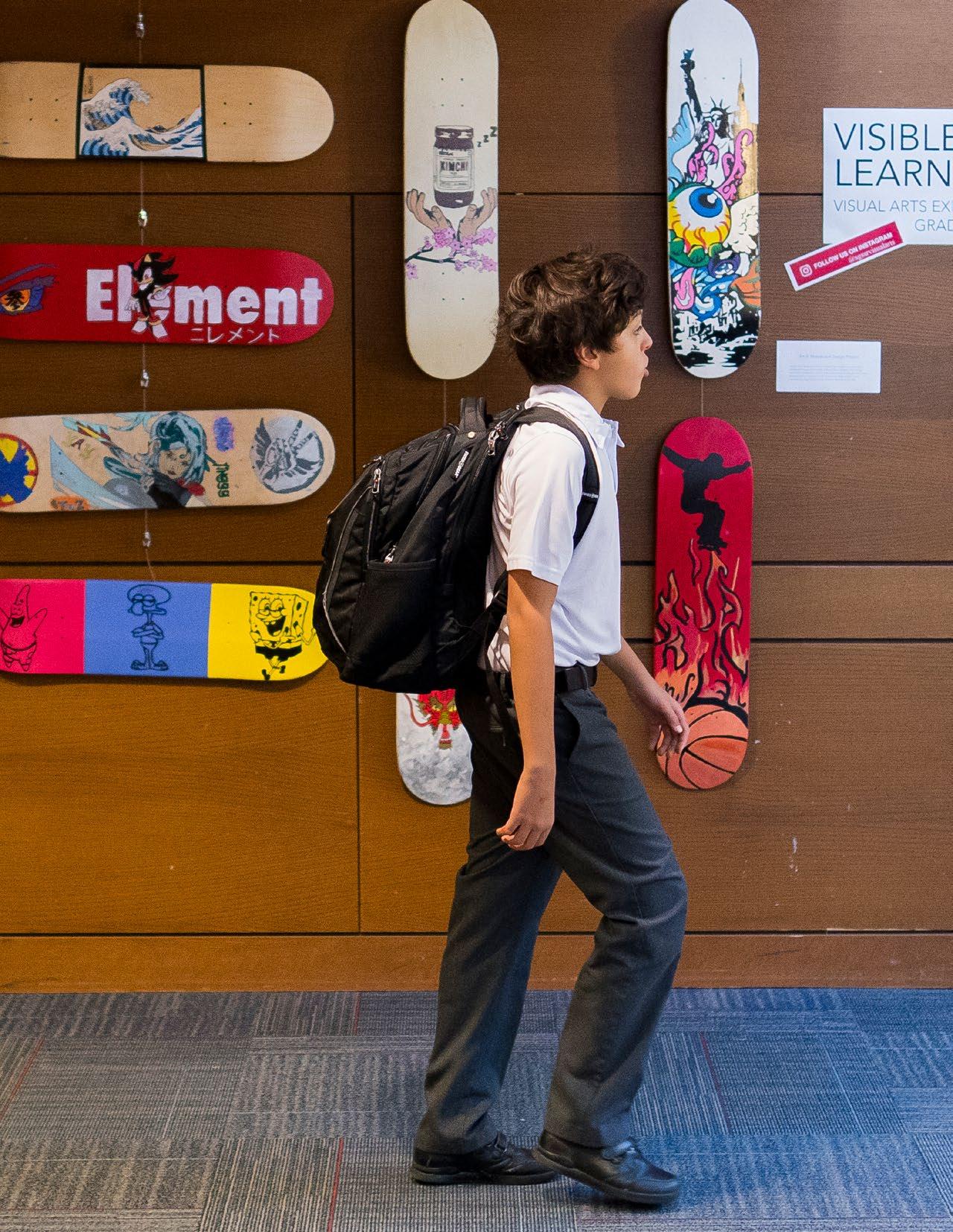
Computer Studies 8 is an exploration of technology featuring a focus on computational thinking, computing technology, and digital literacy. By exploring the basics of python programming, basic web design and development, and even a little bit of Virtual Reality, students will develop introductory skills that will benefit them in the world of computers and programming. Creative thinking, troubleshooting, and sharing will be emphasized using the Design Thinking Model. This course assumes no prior knowledge of programming, web design/development, or other computer skills.
ELECTIVE INQUIRY/PROJECT, TECHNOLOGY/TOOLS 1-2 HOURS

Robotics 8 is the introductory course into electronics and robotics where previous knowledge is not required. Students will use two platforms to advance their knowledge, VEX and Arduino circuits. They will explore the importance of the overall design as well the thoughts that go towards prototyping, implementation, and testing of their ideas. They will learn by doing and determine why some concepts require alternative strategies. Students will learn how to move their robot and how basic programming logic works. They will also explore sensors and basic arduino devices. Lessons are conducted in a supportive environment where the joy of learning is a key.
ELECTIVE
INQUIRY/PROJECT, TECHNOLOGY/TOOLS, EXPERIENTIAL
0 HOURS
Business Education 8 is a hands-on, project-based course. As an introduction to business, this course explores marketing concepts such as product innovation, pricing strategies, advertisement, and distribution. In addition, students get to engage in design challenges following the Design Thinking Process. Students gain valuable skills in communicating and creative thinking. Business Education 8 is not a prerequisite for courses in business education or economics in later grades.
ELECTIVE
INQUIRY/PROJECT, TECHNOLOGY/TOOLS, EXPERIENTIAL
1-2 HOURS
This course is an introduction to woodwork. Students will learn how to use hand and power tools safely and confidently. Through the making of various pieces, students will experience a sense of accomplishment and demonstrate skills and understanding of basic woodwork and design practices.
ELECTIVE
DIRECT INSTRUCTION, TECHNOLOGY/TOOLS, EXPERIENTIAL
0 HOURS
Drafting 8 is designed to help students develop a greater understanding of technology through an introduction to drafting techniques, digital prototyping, and 3D literacy. Through the exploration of 3D drawings and CAD software, students will increase their confidence as technology designers, while being encouraged to find their personal voice through assignments, projects, and reflection. This course will cover the basic concepts of creating and interpreting 3D drawings and models. Risktaking and creative thinking will be strongly emphasized using the design thinking model.
ELECTIVE INQUIRY/PROJECT, TECHNOLOGY/TOOLS 0 HOURS
ENGLISH 8
English 8 provides each student with a broad base of writing, speaking, listening, and reading skills, which will aid students progress through the Senior School and support them in the development of their own voice and style. Literary sources are embedded from a thematic perspective, and include a range of short and extended prose, poetry, drama, and non-fiction works. Students will explore how to interpret the world and connect to those around them as they examine the human condition. Projects and assignments will explore new literacies and real-life experiences. English 8 also focuses on foundational grammar concepts within students’ writing as well as other sources. Throughout the year, students will gain confidence in their speaking skills through oral language assignments, group and individual readings, peer and self-assessments, and directed discussions. The process of writing, pre-planning, editing, and redrafting are key components of the course. Above all, English 8 students are supported in the development of independent critical and creative thinking skills.
CORE PROGRAM DIRECT INSTRUCTION, DISCUSSION 1-2 HOURS
French 8 Foundations is designed for those with very limited or no prior experience in French. A basic foundation will be taught and first and then the course will eventually move to cover the same content as regular French 8. Students will work toward being able to communicate both orally and in writing on topics that they are familiar or which they have a personal interest in. Students are assessed and evaluated on both their receptive abilities (listening and reading comprehension) as well as their productive abilities (speaking and writing). Successful students in this course will increase their fluency and be able to participate more actively in reciprocal interactions.
CORE PROGRAM DIRECT INSTRUCTION, DISCUSSION 1-2 HOURS
French 8 is designed for those with elementary school background in French. In this course, students work toward being able to communicate both orally and in writing on topics that are familiar or of personal interest. Students are assessed and evaluated on both their receptive abilities (listening and reading comprehension) as well as their productive abilities (speaking and writing). Successful students in this course will increase their fluency and be able to participate more actively in reciprocal interactions.
CORE PROGRAM DIRECT INSTRUCTION, DISCUSSION 1-2 HOURS
French 8 Honours is designed for those with extensive experience in French and a proficiency higher than those in the French 8 Program. For example, those students from French Immersion. There is a higher emphasis on oral communication and students should feel comfortable understanding and speaking French during class time. Students will be evaluated on both their receptive abilities (listening and reading comprehension) as well as their productive abilities (speaking and writing). Successful students in this course will increase their fluency and be able to participate more actively in reciprocal interactions. Please note that diagnostic assessments will be done the first week of class to ensure that students are registered at the correct level. Students may be moved to a different stream that best suits their current abilities.
ELECTIVE DIRECT INSTRUCTION, DISCUSSION 1-2 HOURS
SPANISH 8
Spanish 8 is an introductory course that introduces students to the basics of the language and builds their communicative competence. In this course, students work toward being able to communicate both orally and in writing on topics that are familiar or of personal interest. Students are assessed and evaluated on both their receptive abilities (listening and reading comprehension) as well as their productive abilities (speaking and writing).Successful students in this course will increase their fluency and be able to participate more actively in reciprocal interactions.
ELECTIVE DIRECT INSTRUCTION, DISCUSSION 1-2 HOURS
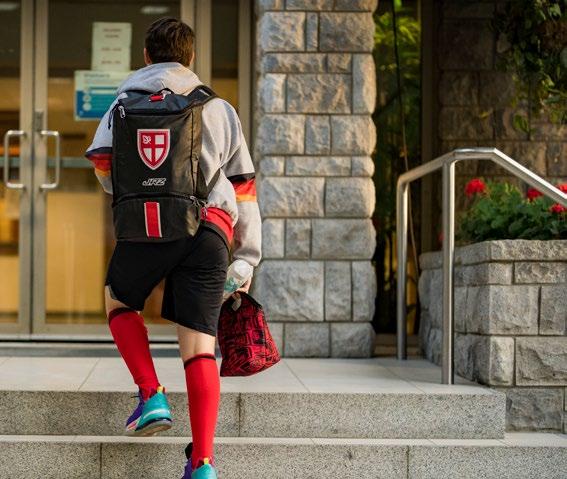
MANDARIN 8
Mandarin 8 introduces the Chinese language and culture to those who have no previous knowledge of Mandarin. Lessons focus on providing students with various real-life scenarios as well as Chinese culture and etiquette. It helps students develop the four language skills of listening, speaking, reading, and writing necessary to communicate in Mandarin at a basic level.
ELECTIVE DIRECT INSTRUCTION, DISCUSSION 1-2 HOURS
Mandarin 8 Honours is an advanced language course tailored for students with a foundational background in Mandarin Chinese. This course is open to those who have previously engaged in Mandarin studies, demonstrating the ability to carry on basic daily conversations and possess some knowledge of Chinese characters. Building on this foundation, Mandarin 8 Honours is designed to provide a comprehensive and immersive learning experience aimed at enhancing students' overall language proficiency.
ELECTIVE DIRECT INSTRUCTION, DISCUSSION 1-2 HOURS
Latin 8 introduces students to the achievements of the classical world through the study of Latin. Students will learn vocabulary and grammatical concepts essential for reading and translating adapted classical texts. English is the language of instruction, and students will develop their oral communication, reading, and writing skills in both English and the classical language. Through a variety of enrichment activities, students will explore aspects of life in the ancient world, including trade, commerce, education, arts, sports, ecology, daily life, and social practices, and will make connections across the curriculum between the classical world and the world around them.
ELECTIVE DIRECT INSTRUCTION, DISCUSSION 1-2 HOURS
Students entering Grade 8 will be asked to self-select whether they feel they would be best placed in a regular Math 8 Program, or whether they feel they will be able to perform well on a Math 8/9 Program. Ultimately, if the teacher feels a student is incorrectly placed, based on early performance, that student will be moved to a section which we feel is more appropriate for their eventual longterm success in math. This Math 8 Program focuses on the essential basic skills of: arithmetic fluency with integers, fractions, and order of operations; developing students’ understanding of methods of solving equations; developing students’ understanding of shape and space, surface area, and volume; applications of Pythagoras’ Theorem.
CORE PROGRAM DIRECT INSTRUCTION, INQUIRY/PROJECT 1-2 HOURS
There will also be an additional Math 8/9 (Enriched - Competition) section for those who are really passionate and curious about mathematics, already feel they have advanced skills, and wish to be challenged and stretched. This class will be heavily enriched and will focus on extending students' understanding of and appreciation for problem-solving and competitions. Ultimately, if the teacher feels a student is incorrectly placed, based on early performance, that student will be moved to a section which we feel is more appropriate for his eventual long-term success in math.
PRE-REQUISITE: Students should feel extremely comfortable with their fluency of their current math skills and should already have a passion and interest for more advanced mathematics, recreational math and contests.
ELECTIVE DIRECT INSTRUCTION, INQUIRY/PROJECT 1-2 HOURS
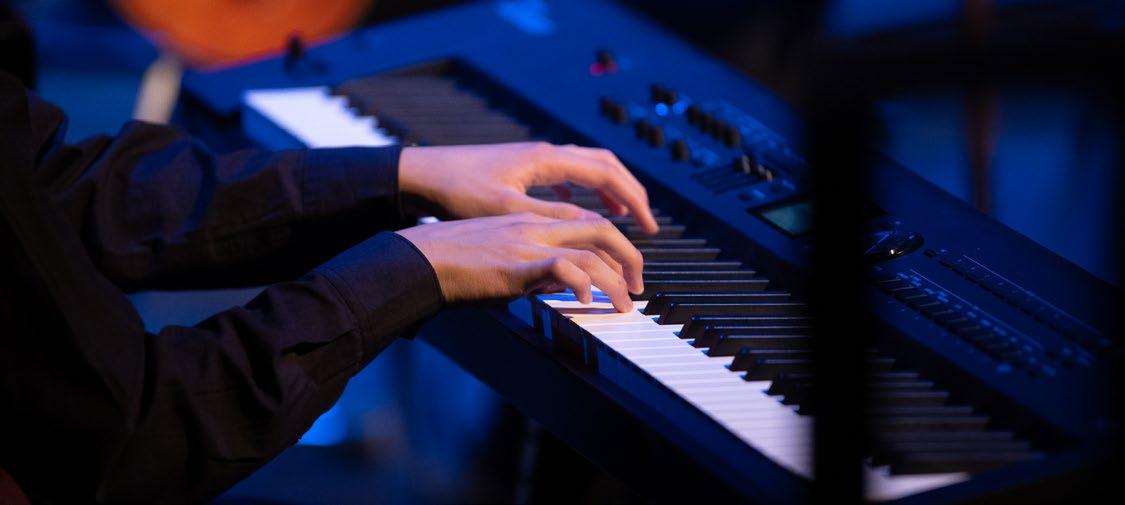
Concert Band 8 is an ideal opportunity for students to explore their interest in music while working collaboratively with others. This full-year program is designed to teach music through the use of the concert band and is open to all students. Those with previous experience on a woodwind, brass or percussion instrument will be placed into an advanced class where time will be spent on the concepts and techniques of performing band and solo music. Those with no experience on a band instrument will form their own class for the first term. Here, they will select an instrument and will be taught the fundamentals of performance of that instrument. By the end of the first term, they will be integrated into the advanced class. All students will perform at concerts and festivals as part of the Junior Concert Band.
ELECTIVE DIRECT INSTRUCTION, EXPERIENTIAL 1-2 HOURS
Junior Jazz Ensemble is an opportunity for proficient and interested students to learn to play jazz in a big band setting. Students will undertake a journey exploring the history and repertoire of the major eras of jazz, including learning basic improvisation techniques. As an introductory course much of our effort will be devoted to internalizing the “feel” and “concept” of swing. We will do this through rehearsal, performance, and listening to many exemplary recordings. Rehearsals take place Tuesday and Thursday mornings from 7:00-8:15 am. Attendance is mandatory. We will perform at the Winter and Spring Music Department Concerts as well as at the Envisions Jazz Festival (February), the BC Interior Jazz Festival (April), and at the School Fair. Any outside performance opportunities will be discussed by the group as they arise.
PRE-REQUISITE:
Any students enrolled in Band, 8. 9 or 10 are open to join by audition. Auditions occur during the second week of school. All students wanting to audition must download the audition materials from the Music Department website. This course is designed to give students the experience and skills of playing in a Big Band.
ELECTIVE DIRECT INSTRUCTION, EXPERIENTIAL 1-2 HOURS
Physical and Health Education 8 (PHE 8) aims to provide success for every individual student, regardless of physical abilities. We present activities in ways that encourage effort, preparedness, a positive attitude, sportsmanship, cooperation, and skill improvement. Over the year, students are taught a variety of lifelong sports and activities. These sports include aquatics, badminton, basketball, fitness, floor hockey, football, soccer, softball, volleyball, ultimate, and yoga. We build up the skill set each year and add new advanced strategies and tactics to further excel in the understanding of each sport. The health outcomes for the course will be covered during 10 Health and Career Education classes, delivered in two class mini units over the course of the year. Students are assessed on the PHE 8 learning outcomes in the BC Ministry of Education curriculum. Our goal is to have boys finish the year with enthusiasm, confidence, and strive to be fit for life!
CORE PROGRAM DISCUSSION, DIRECT INSTRUCTION, EXPERIENTIAL 0 HOURS

In Grade 8 Science, we recognise that students have a wide range of Science class experiences. As a result, the goal of Science 8 is to learn not only the language of science but also spark curiosity and a love of science. Students engage in a large number of hands-on experiments and inquiry-based projects to build their skills to help them learn the foundations of the Scientific Method. There are four major content units in the course: Biology focuses on the world of cells and microorganisms; Chemistry opens up the atomic world with quarks, protons and changes of state; Physics sharpens our focus by engaging us in lenses, mirrors and how light is a ray, particle and wave at the same time; Earth science shakes things up by exploring the explosive nature of volcanoes, earthquakes and plate tectonics. Science 8 is a great introduction to the wonderful world of Science.
CORE PROGRAM DIRECT INSTRUCTION, INQUIRY/PROJECT 1-2 HOURS
Social Studies 8 looks at the world starting from the seventh century until the 1750s and addresses history, geography, economics, political science, sociology, philosophy, and beyond. The course builds foundational skills of social studies, including gathering, interpreting, and analysing ideas; assessing the significance of people, places, events, and developments; the determining credibility of sources and evidence, characterizing continuity and change over time; deduction of the cause and consequence of certain actions, considering historical and present day perspectives; and formulating ethical judgments. Unit questions from last year include "How do we know what we know about the past?", "How revolutionary was the Scientific Revolution?", and "How should the Age of Exploration be remembered?"
ELECTIVE DISCUSSION, INQUIRY/PROJECT 0 HOURS
ELL 8
The English Language Support class is for students who have been identified by the School as needing support with their spoken, written, and academic English skills. Students will be supported in acquiring mastery of English to help them succeed in community engagement and in their other classes.
PRE-REQUISITE: Enrollment in this course is based on the recommendation of the ELL and Admissions Department. English Language Learners 8-10 are required courses for students who have been identified as requiring additional English language support.
DIRECT INSTRUCTION, DISCUSSION, 0 HOURS
Drama 8 offers an introduction to character-building and scene-building in order to develop better cooperation, communication, and selfconfidence. All classroom activities require students to work in groups in order to accomplish common goals. Students engage in movement and trust exercises, apply these skills to mime and, eventually, to prepared in-class performances. Students will explore story structure, character development, and character relationships. Introductory technical elements will be included in order to enhance story-telling. Within a trusting environment, students will develop confidence in learning to give and to accept audience feedback.
ELECTIVE DISCUSSION, EXPERIENTIAL 0 HOURS

This course introduces students to the basics of drawing, painting and design. In a playful and collaborative studio environment, students are encouraged to explore materials and find imaginative, creative solutions to their projects. Students will learn colour mixing and painting techniques with acrylic paint on canvas, combined with mixed media. Through the use of sketchbooks, students will be lead to develop their sketching and shading ability as well as to visiually express their ideas and explore personal interests.
ELECTIVE DIRECT INSTRUCTION, DISCUSSION, INQUIRY/PROJECT, TECHNOLOGY/TOOLS, EXPERIENTIAL 0 HOURS
Ceramics 8 introduces students to clay as a medium for artistic expression and exploration. No previous experience is necessary, but students must be prepared to get their hands dirty and have fun! Instruction focuses on wheelwork, hand building, and sculpture. Each project emphasizes creativity, problem solving, particular design elements and principles, and relevant vocabulary. Students will begin to develop the skills required to become skilled and confident. All work assigned can be completed in class time, but students are encouraged to attend Ceramics Club to extend their exploration and skill development.
ELECTIVE
DIRECT INSTRUCTION, DISCUSSION, INQUIRY/PROJECT, TECHNOLOGY/TOOLS 0 HOURS
This course offers students a playful introduction into digital artistic creation and manipulation using Digital Photography, Photoshop, and Illustrator. Students are introduced to the basics of digital SLR photography including composition, camera functions, mood, and storytelling. Imagining the impossible becomes possible as students learn to develop composites in Photoshop. Students will also learn to design vector graphics and relevant applications. Students will have the opportunity, if time allows, to test and explore the magic of the virtual world using HTC Vive headsets and Tilt brush software to make immersive paintings.
ELECTIVE
DIRECT INSTRUCTION, INQUIRY/PROJECT, TECHNOLOGY/TOOLS 0 HOURS
Career Education 8 provides an opportunity for students to begin thinking about who they are and their future. Through self-reflection, personal development, and community workshops, students begin examining their strengths, preferences, and skills. This course is a first look into creating a future life, career plan, and self-development.
ELECTIVE DIRECT INSTRUCTION, EXPERIENTIAL 1-2 HOURS
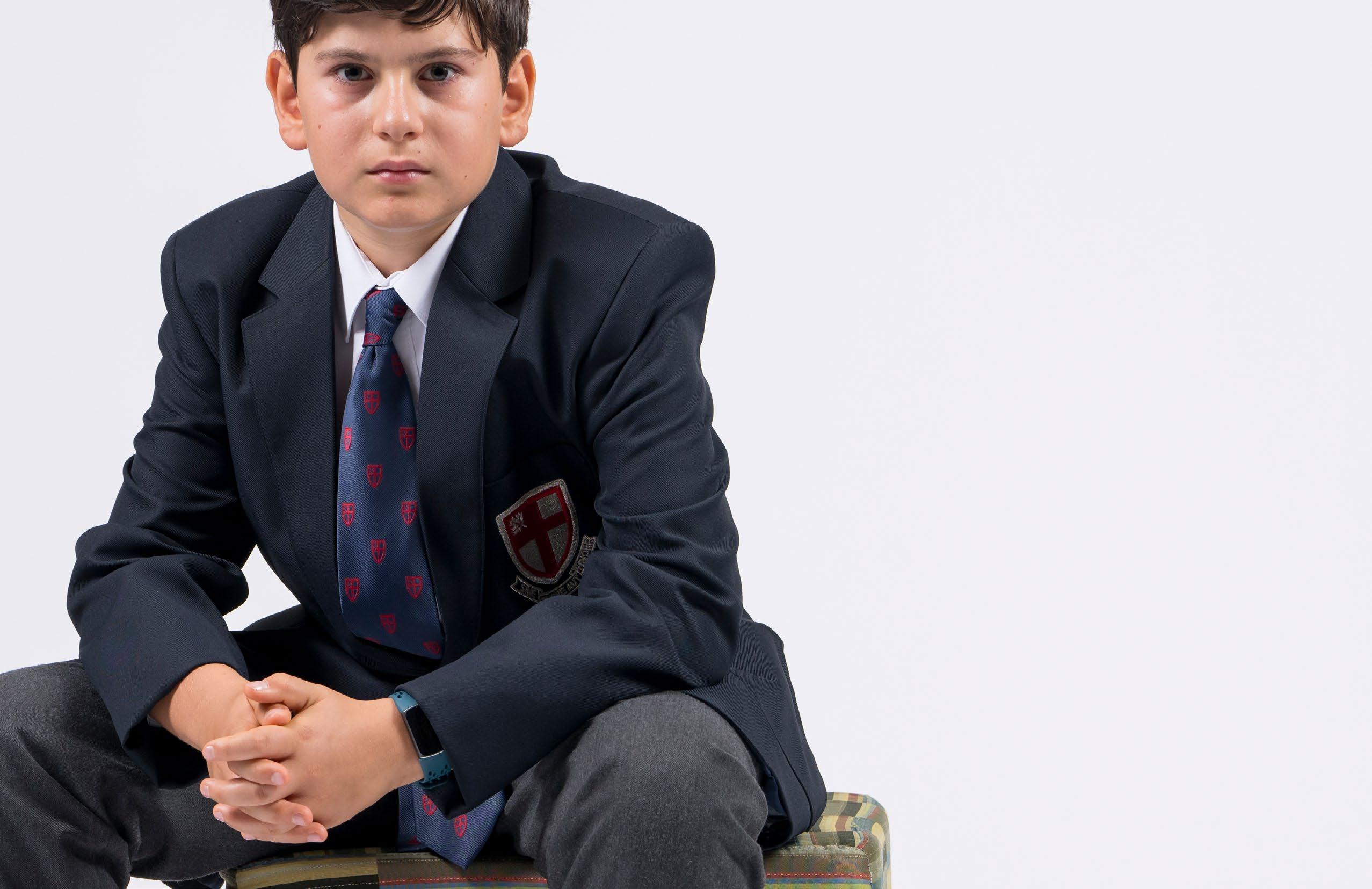
31
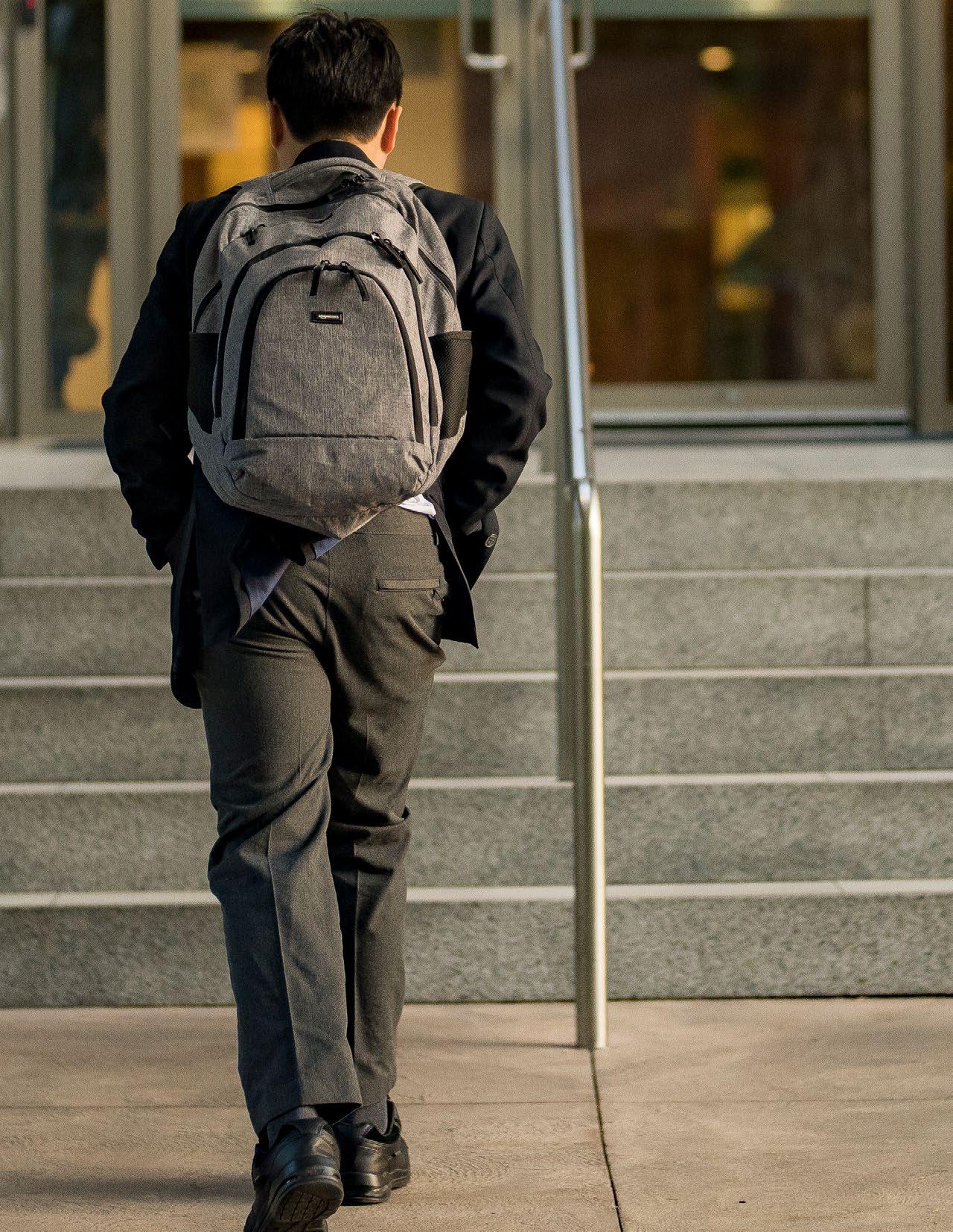
IN GRADE 9, students will have a set schedule of six full-year courses. Each course will occur in one of eight blocks: English, Social Studies, Math, Language, Physical and Health Education, and Science. Students will also select from a variety of semestered courses in two of their eight blocks. They will have one course block devoted to Arts Education (from the Visual Arts, Theatre Arts, Music Departments), and one course block devoted to Applied Design Skills And Technology (ADST) education. Students will experience up to two Arts Education courses and two ADST courses. Students also have a choice to replace one of their Visual or Theatre Arts courses with Latin 9. With the exception of Latin 9 and Music 9, students can register for any elective, providing another opportunity to explore and experiment with a variety of courses and types of learning. Similarly to Grade 8, outside of traditional class time, students will also complete Career Education 9 through existing school structures and programs like Advisory, Assemblies, Flex Days, and through online modules. In contrast, in Grade 10, there are several courses that require Grade 9 prerequisites, so it’s best to cast an eye towards 2025 and beyond.
STUDENTS CAN ACCESS A COURSE PLANNING DOCUMENT HERE .
GRADE 9
REQUIRED COURSES 6 of 8
CHOICES REQUIREMENTS OR RESTRICTIONS
Two blocks for semestered courses that rotate courses part way through the year for a total of four courses throughout the year.
SAMPLE GRADE 9 SCHEDULE A
B
ARTS CHOICE (1 per Semester)
D MATH 9/10 F
ENGLISH 9
G
LANGUAGES 9 CHOICE
SEMESTER COURSES *
SEE COURSE DESCRIPTIONS FOR THE FULL LIST
NOTE: SOME STUDENTS MAY DO RESOURCE 9 OR ELL 9.
I
ADST CHOICE (1 per Semester)
E PHE 9
J SCIENCE 9
Electronics and Robotics 9 is a project-based, exploratory course. Students will learn how to develop simple systems using Arduino as their platform for designing, prototyping, coding, and troubleshooting. They will appreciate the importance of incremental steps and the sequencing of processes and ideas. Students will learn why things work and more importantly, why they do not work. They will learn about the application of alternative strategies and step-by-step improvement. Important connections between electronic and mechanical elements will be explored as well. Students will troubleshoot code, mechanisms, and various Arduino components. Lessons are conducted in a supportive, fun, and encouraging environment.
ELECTIVE INQUIRY/PROJECT, TECHNOLOGY/TOOLS 1-2 HOURS
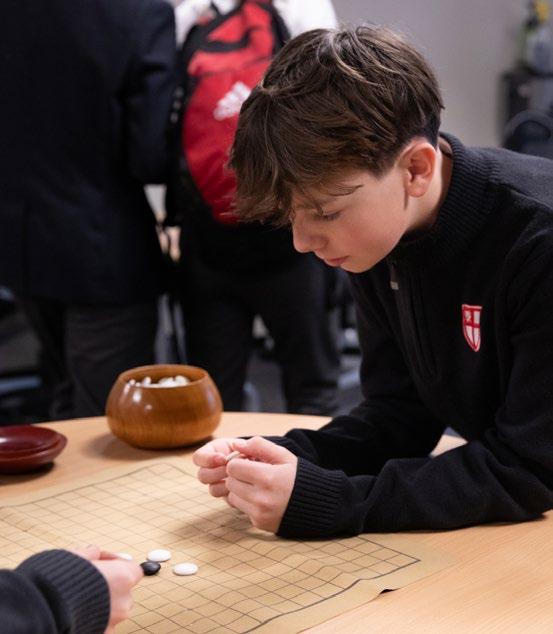
This dynamic half-year course provides students with a valuable opportunity to acquire skills, gain practical experiences, and expand their knowledge in the fields of Finance, Marketing, and Communications. The hands-on and participatory approach is utilized to encourage active involvement and experiential learning. Each unit culminates with projects that require students to perform tasks or demonstrate applied skills. Students will learn the value of understanding different communication styles and models through case analysis; compete in an online stock market simulation; and work with a real client. Throughout the course, students will engage both independently and collaboratively. There is a high emphasis on creative and critical thinking, analysis, knowledge, application as well as both oral and written communication.
ELECTIVE TECHNOLOGY/TOOLS, EXPERIENTIAL
Computer Programming 9 is an exploration of programming concepts through problems and game design. By exploring graphic- and text-based coding with a choice of Python, C++, or Java, students will become more confident using computational thinking and problem solving skills. Creative thinking, program flow, debugging, and exploring the impacts of technology will be emphasized using the Design Thinking Model. This course assumes no prior knowledge in computer programming.
ELECTIVE DISCUSSION, INQUIRY/PROJECT 0 HOURS
Drafting 9 is designed to help students develop a greater understanding of technology through an introduction to drafting techniques, digital prototyping, and 3D literacy. Through the exploration of 3D drawings and CAD software, students will increase their confidence as technology designers, while being encouraged to find their personal voice through assignments, projects, and reflection. This course will cover the basic concepts of creating and interpreting 3D drawings and models. Risk-taking and creative thinking will be strongly emphasized using the design thinking model.
ELECTIVE INQUIRY/PROJECT, TECHNOLOGY/TOOLS 0 HOURS
This course builds on the skills developed in Woodwork 8, but Woodwork 8 is not a requirement. Students will learn how to use tools and machinery safely and confidently in order to allow for an exploration of intermediate woodwork practices and joinery techniques. Through the making of various pieces, students will experience a sense of accomplishment while demonstrating creativity and technical skill. There will be a significant focus on the design process.
ELECTIVE
DIRECT INSTRUCTION, TECHNOLOGY/TOOLS, EXPERIENTIAL 0 HOURS
French 9 offers students the opportunity to build on the language skills they developed in French 8. Students communicate both orally and in writing in French, through a variety of thematic units. Students will improve their fluency and be able to communicate in a wider variety of settings than in the previous year. Through project work and direct instruction, students will expand their vocabulary and knowledge of grammar in order to communicate their ideas.
PRE-REQUISITE: French 8 or equivalent
CORE PROGRAM
DIRECT INSTRUCTION, INQUIRY/PROJECT, EXPERIENTIAL
1-2 HOURS
French 9 Honours is an enriched and fast-paced class that is intended for students with a strong background in oral French, such as those who are former French Immersion students or native speakers. The course is taught almost entirely in French and students will engage in project-based learning, authentic francophone resources, advanced grammar concepts, and expand their knowledge of francophone culture. Please note that diagnostic assessments will be done the first week of class to ensure that students are registered in the correct level. Students may be moved to a different stream that best suits their current abilities.
PRE-REQUISITE: French 8 Honours
CORE PROGRAM
DIRECT INSTRUCTION, INQUIRY/PROJECT, EXPERIENTIAL
1-2 HOURS
ENGLISH 9
Literary sources are embedded from a thematic perspective, and include a range of short and extended prose, poetic and dramatic works. Within this is the exploration of how students interpret the world and connect to those around them as they examine the human condition. In English 9, students explore methods to enhance their eloquence and heighten the potency of their words. Throughout the year, students gain confidence in their speaking skills and hone the critical faculty of listening and responding through oral reports, individual and group readings, peer and selfevaluations, and directed discussions.
CORE PROGRAM
Latin 9 introduces students to the achievements of the classical world through the study of Latin. Students will learn vocabulary and grammatical concepts essential for reading and translating adapted classical texts. English is the language of instruction, and students will develop their oral communication, reading, and writing skills in both English and the classical language. Through a variety of enrichment activities, students will explore aspects of life in the ancient world, including trade, commerce, education, arts, sports, ecology, daily life, and social practices, and will make connections across the curriculum between the classical world and the world around them
Note: Latin 9 is a semestered course and occurs during the normal Grade 9 elective block. Students must also choose an additional Language 9 course.
PRE-REQUISITE:
Latin 8 or with permission of the Head of Languages.
ELECTIVE DIRECT INSTRUCTION, DISCUSSION 1-2 HOURS
In 2024–25, Mandarin 9 introduces the Chinese language and culture to those who have no previous knowledge of Mandarin. Lessons focus on providing students with various real-life scenarios as well as Chinese culture and etiquette. The course also helps students develop the four language skills of listening, speaking, reading, and writing necessary to communicate in Mandarin at a basic level. Students in the class of 2028 with previous background in Mandarin should wait until their Grade 10 year to enter the Mandarin Program.
ELECTIVE DIRECT INSTRUCTION, DISCUSSION 1-2 HOURS
Students will enjoy learning calligraphy, Chinese music, food, and contemporary films. Students with previous background in Mandarin should wait until their Grade 10 year to enter the Mandarin Program.
PRE-REQUISITE:
Mandarin 8 or with permission of Head of Languages
ELECTIVE DIRECT INSTRUCTION, DISCUSSION 1-2 HOURS
In 2024–25, Spanish 9 is a beginners course that offers an introductory experience in the Spanish language that is both cultural and linguistic. We focus on the four basic skills of communication: aural comprehension, oral expression, reading, and writing. Culturally, students will study the daily customs, food, music, dance, and festivals of Latin America and Spain to develop an appreciation and understanding of the Hispanic world. Students will become familiar with customs, geography, and people in the Hispanic world through oral presentations, music, films, and trips to local Spanish or Mexican restaurants.
ELECTIVE DIRECT INSTRUCTION, DISCUSSION 1-2 HOURS
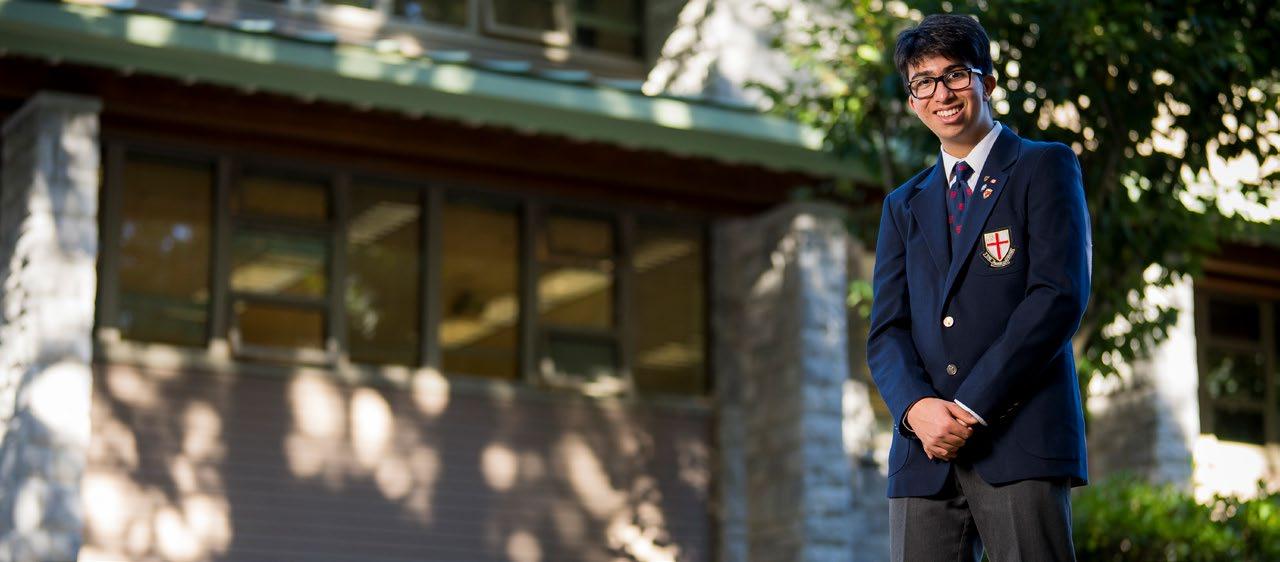
The Math 9 curriculum places a strong emphasis on problem solving, critical thinking, communication, developing multiple approaches as well as making and reinforcing connections between the various Big Ideas. The following topics are studied: exploring logic and patterns to solve problems and puzzles;exponents; operations with polynomials; rational numbers and order of operation;, operations with fractions; multi-step, one-variable linear equations; two-variable linear relations; spatial proportional reasoning; probability and statistics in society; and financial literacy.
CORE PROGRAM DIRECT INSTRUCTION, INQUIRY/PROJECT 1-2 HOURS
This course is particularly targeted at those students who are currently studying Math 8 (who did not advance to Math 9 earlier in the year) but feel they are now ready to step up and try to complete the outcomes for both Math 9 and Math 10 in one year. Therefore, this will be a fast-paced and challenging course. Admission to this course will definitely require the support and endorsement of your current math teacher. It will require that you are particularly well-motivated and that you also do some significant review and preview over the summer, prior to the start of the course. If you are successful in completing the outcomes for both Math 9 and Math 10, we would expect you to proceed to Pre-Calculus 11 when you reach Grade 10. If it transpires that you do not have the background and / or work ethic to cope with the pace and level of challenge of this Math 9/10 course early on, you will be re-assigned to the regular Math 9 Program.
ELECTIVE DIRECT INSTRUCTION, INQUIRY/PROJECT 2-3 HOURS

The enriched-competition section of this Foundations and Pre-Calculus 10 course is heavily accelerated. Students move very quickly through the curriculum, and the course is then able to give major emphasis to contest work and other enrichment. Students prepare for and are expected to participate in a variety of math contests throughout the year. Students must maintain a minimum of 92% on the course and have demonstrated a strong interest in the contests in order to continue into the enriched-competition section of Pre-Calculus 11 in the following year.
PRE-REQUISITE:
Final placement is determined by the Head of Mathematics, in consultation with the student's Math 8 teacher from 2023–24.
RECOMMENDATIONS: We would recommend that students have achieved at an extending proficiency for the vast majority of outcomes in Math 9 (92% minimum) AND have shown a curiosity and passion for enrichment and for contests.
ELECTIVE DIRECT INSTRUCTION, TECHNOLOGY/TOOLS 1-2 HOURS
The Foundations and Pre-Calculus 10 curriculum places a strong emphasis on problem solving, critical thinking, communication, developing multiple approaches, and making and reinforcing connections between the various Big Ideas. The following topics are studied: Trigonometry, factors and products, roots and powers, financial literacy, linear relations, relations and functions, systems of equations. The skills developed in Foundations and Pre-Calculus 10 form the basis and foundation for all the mathematics which follow. This course will include some elements of enrichment and contest preparation. Students who take Foundations and Pre-Calculus 10 in Grade 9 will ordinarily continue on to Pre-Calculus 11 in their Grade 10 year. If you are struggling somewhat on the current course, it may be worth re-evaluating whether you should remain accelerated. There is no long-term benefit in studying the grade-level aboveif you cannot reasonably expect to get a comfortable A grade.
PRE-REQUISITE:
Final placement is determined by the Head of Department for Math, in consultation with the student's Math 8 teacher from 2023-24.
RECOMMENDATIONS: We would recommend that students have acheived at an extending proficiency for the vast majority of outcomes in Math 9 - (88% minimum)
Students continuing their instrumental performance will delve into musical expression, instrumental technique, and collaborative performance. The Concert Band 9 ensemble will explore more challenging repertoire from a variety of genres and cultures. The emphasis of this course is on achieving a high standard of performance through study of balance, blend, articulation, and technique. This is a performance-oriented course, with emphasis on festivals (local through international) and concerts. Visiting clinicians and instrumental specialists also work with students in the second and third terms
PRE-REQUISITE:
Completion of Concert Band 8 or have related experience with approval from Head of Department for Music.
ELECTIVE DIRECT INSTRUCTION, EXPERIENTIAL 3-5 HOURS
Junior Jazz Ensemble is an opportunity for proficient and interested students to learn to play jazz in a big band setting. Students will undertake a journey exploring the history and repertoire of the major eras of jazz, including learning basic improvisation techniques. As an introductory course much of our effort will be devoted to internalizing the “feel” and “concept” of swing. We will do this through rehearsal, performance, and listening to many exemplary recordings. Rehearsals take place Tuesday and Thursday mornings from 7:00-8:15 am. Attendance is mandatory. We will perform at the Winter and Spring Music Department Concerts, as well as at the Envisions Jazz Festival (February), the BC Interior Jazz Festival (April), and at the School Fair. Any outside performance opportunities will be discussed by the group as they arise.
Students open to join by audition. Band 8, 9, or 10 students are also encouraged to audition. Auditions occur during the second week of school. All students wanting to audition must download the audition materials from the Music Department website. This course is designed to give students the experience and skills of playing in a Big Band.
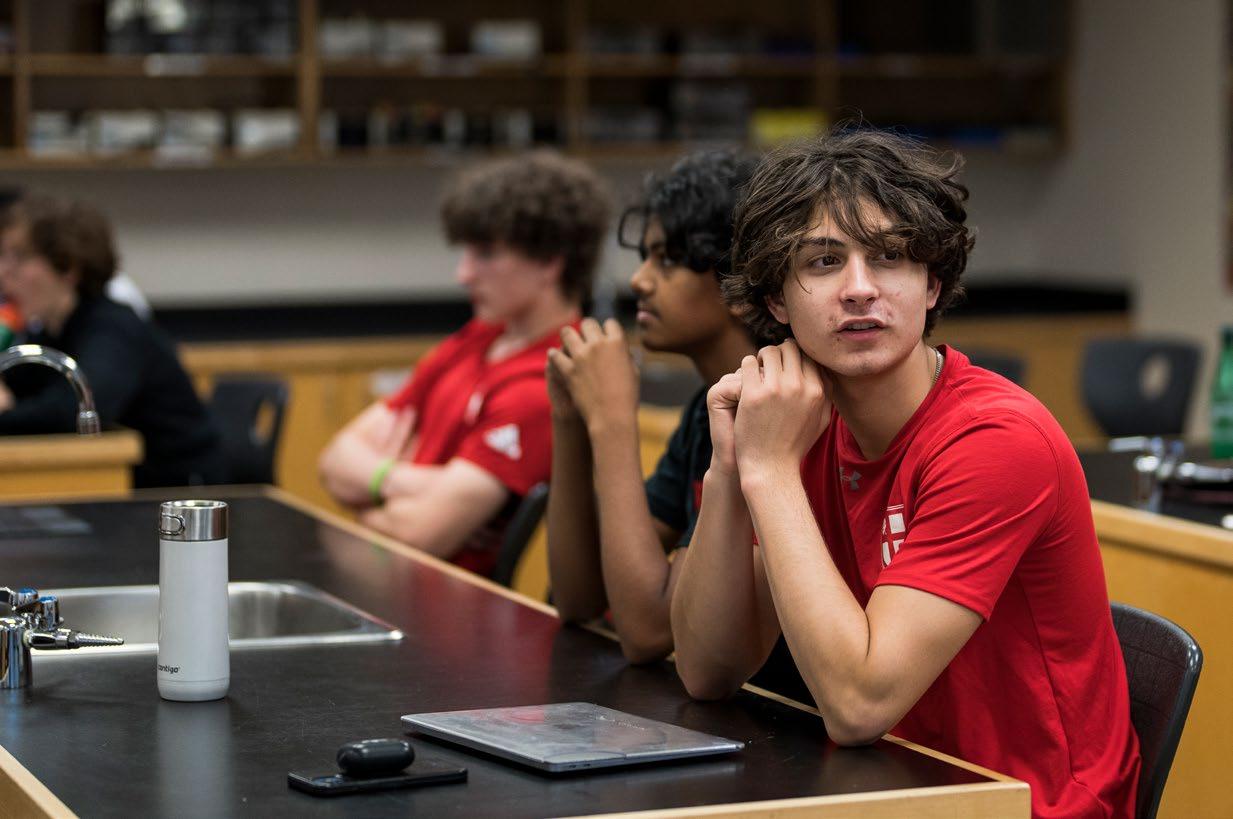
Physical and Health Education 9 (PHE 9) aims to provide success for every individual student, regardless of physical abilities. We present activities in ways that encourage effort, preparedness, a positive attitude, sportsmanship, cooperation, and skill improvement. Over the year, students are taught a variety of lifelong sports and activities. These sports include aquatics, badminton, basketball, fitness, floor hockey, football, soccer, softball, volleyball, ultimate, and yoga. We build up the skill set each year and add new advanced strategies and tactics to further excel in the understanding of each sport. The health outcomes for the course will be covered during 10 Health and Career Education classes, delivered in two class mini units over the course of the year. Students are assessed on the PHE 9 learning outcomes in the BC Ministry of Education curriculum. Our goal is to have boys finish the year with enthusiasm, confidence, and to strive to be fit for life!
CORE PROGRAM DISCUSSION, DIRECT INSTRUCTION,
The Grade 9 Science curriculum develops three core competencies: communication, thinking, and personal and social awareness. These competencies are sets of intellectual, personal, and social and emotional proficiencies that all students need to develop in order to engage in deep and life-long learning.
In particular, the Science 9 curriculum focuses on fostering the following scientific skills and aptitudes: questioning and predicting; planning and conducting; processing and analyzing data and information; evaluating; applying and innovating; and communicating. These skills will be explored through the lenses of Biology, Chemistry, Physics, and Environmental Science. The key themes explored in Science 9 include an introduction to circuits, periodic table trends and chemical bonding, nutrient cycles and the effects of human impacts on our ecosystems, and sexual and asexual reproduction. Science Inquiry skills are nourished throughout the year during explorations with heart rate, yeast fermentation, and ionic and covalently bonded chemicals.
CORE PROGRAM DIRECT INSTRUCTION, INQUIRY/PROJECT 1-2 HOURS
The course will center around the 4 “Big Ideas” in the BC Social Studies 9 curriculum: How do new ideas and ideologies influence societies and events? How is collective identity constructed and how can it change over time? How do power discrepancies impact relationships between individuals and between societies? How does the physical environment influence politics, economics and society? We will study these ideas thematically and through case studies from Canada and around the world.
ELECTIVE DISCUSSION, INQUIRY/PROJECT 1-2 HOURS

The English Language Support class is for students who have been identified by the School as needing support with their spoken, written, and academic English skills. Students will be supported in acquiring mastery of English to help them succeed in community engagement and in their other classes.
PRE-REQUISITE: Enrollment in this course is based on the recommendation of the ELL and Admissions department. English Language Learners 8-10 are required courses for students who have been identified as requiring additional English language support.
DIRECT INSTRUCTION, DISCUSSION, 0 HOURS
Career Education 9 is a continuation of Career Education 8. Students will continue to expand their personal development and skills through workshops that build on personal skills, community involvement, and self-reflection. They will also begin to look at how their communities, relationships, and society impact the work that they do. Career Education 9 is a guide to helping students recognize that achieving their learning goals requires effort, perseverance, and how their own unique experiences and skills impact prospective careers.
Drama 9 deepens students’ ability to express themselves in public and encourages creative risk-taking in a safe, challenging, and enjoyable environment. With their improved cooperation, collaboration, and communication skills, emerging actors will explore dynamic character relationships in theme-based scene performances. Students will create and explore imagined environments by developing their spatialawareness, movement, and miming skills. By applying learned lighting and audio principles, performers will explore and build a richer theme-based play for an in-school audience. From their deepened experience of creativity and innovation, students will better discuss and critique both their own work and their classmates’ work.
ELECTIVE DISCUSSION, EXPERIENTIAL 1-2 HOURS
Art 9 students explore various visual techniques responding to themes using self-expression. Students are encouraged to explore materials and find imaginative, creative solutions to their projects. Units are designed to allow students to fully develop their potential in drawing, painting, and mixed media. A blend of classical and contemporary approaches will be developed depending on the project. The sketchbook will be used to encourage independent drawing skills and personal artistic growth, visually express their ideas, and explore personal interests.
ELECTIVE DIRECT INSTRUCTION, DISCUSSION, INQUIRY/PROJECT, TECHNOLOGY/TOOLS, EXPERIENTIAL 0 HOURS
This course provides a basic introduction to the art of animation, focusing on the fundamental principles of squash and stretch, anticipation, timing, follow-through and overlapping action, slow-in and slow-out, secondary action, and arcs. These principles will be explored using a new animation software called Harmony by Toon Boom. Students will use Harmony and Adobe Premiere to edit and sequence frames, and to add such animated effects as fades, scrolling titles, and sound sync. The depiction and analysis of movement will also be explored through various forms of stop motion including Claymation. Basic film concepts such as composition, framing, and storyboarding will be introduced and applied to a final film. Beyond a student’s interest in developing drawing skills, no prior animation experience is required for this course.
ELECTIVE
DIRECT INSTRUCTION, INQUIRY/PROJECT, TECHNOLOGY/TOOLS, EXPERIENTIAL
0 HOURS
Digital Photography is a dynamic course designed to introduce students to the magical world of digital photography. Through hands-on learning experiences, students will explore the fundamental principles of photography, including composition, lighting, and image editing, and will build a portfolio of images that explore landscape, action, street, and portrait photography. They will learn how to confidently operate Digital SLR cameras, capture strong images, develop visual storytelling, and unleash their creative potential through image creation and digital editing. This course is perfect for students eager to develop their photography and digital media skills. Programs used will include Adobe Lightroom and Photoshop.
Note: This is a new course offering for 2024-2025.
ELECTIVE
DIRECT INSTRUCTION, INQUIRY/PROJECT, TECHNOLOGY/TOOLS, EXPERIENTIAL
0 HOURS
Ceramics 9 explores clay as a medium for artistic expression and creative problem solving. The semester course focuses on wheelwork and hand building and sculpture. Projects are designed to develop technical skills as well as to engage the imagination of the students. Sketchbooks are an intrinsic part of the course and students begin to use them for idea development, goal setting, and reflection.
ELECTIVE
DIRECT INSTRUCTION, INQUIRY/PROJECT, TECHNOLOGY/TOOLS, EXPERIENTIAL
0 HOURS
Media Arts 9 develops visual literacy and communication through the fundamental elements and principles of design. Students will be encouraged to explore the creative process conceptually and critically through both traditional and new media. The basics of Typography and Photoshop will be introduced as tools in image creation, along with extensive use of Cintiq screens and pens. Image development and design strategies will play an integral part in the starting points and content of the assignments and projects presented. The sketchbook will be a visual and written diary documenting the creative process through collections of images, artistic resources, and brainstorming media. A blend of classical and contemporary approaches will be developed depending on the specific project. The sketchbook will be used to encourage independent drawing skills and personal artistic growth.
ELECTIVE
DIRECT INSTRUCTION, INQUIRY/PROJECT, TECHNOLOGY/TOOLS, EXPERIENTIAL
0 HOURS
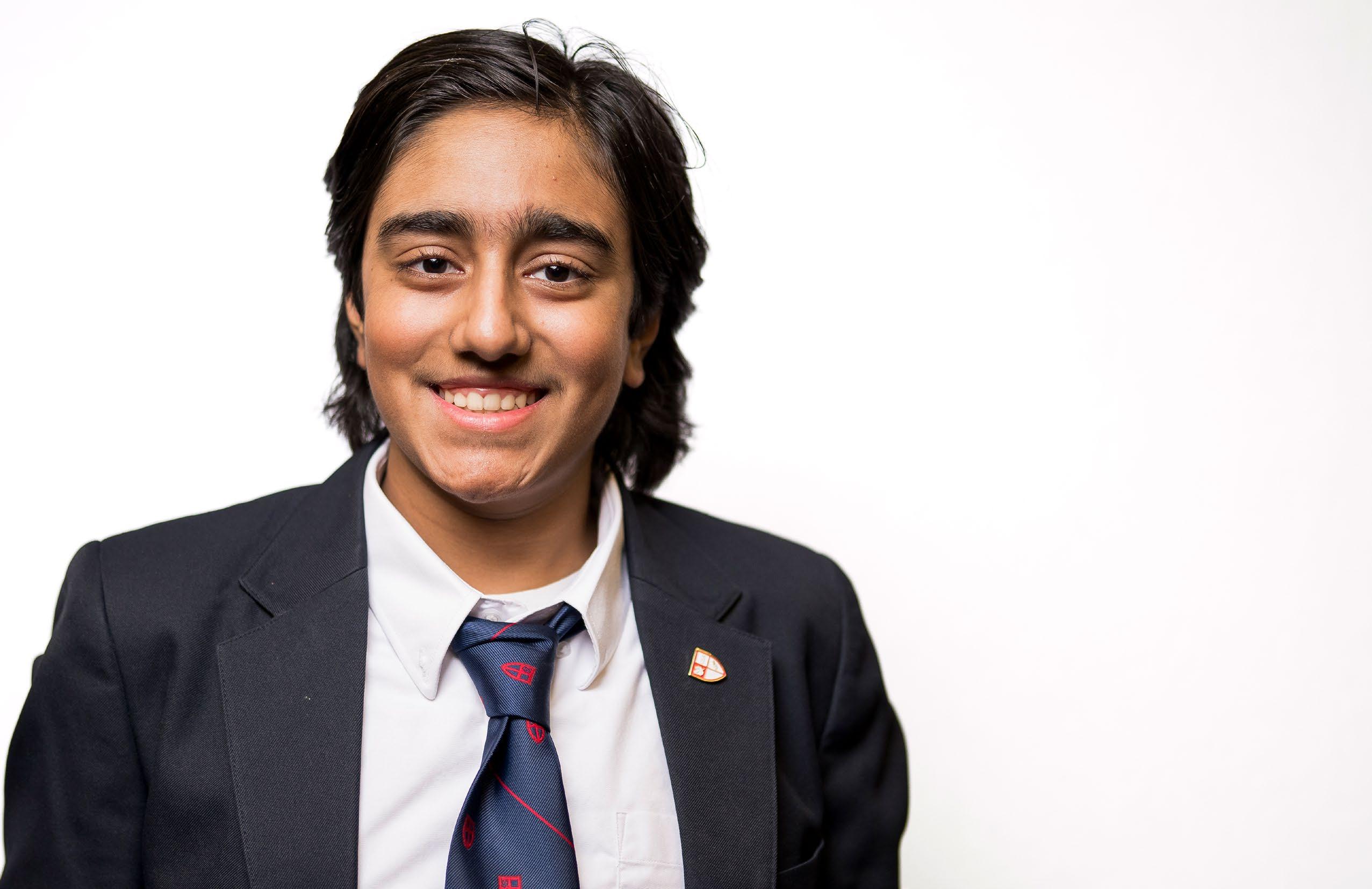
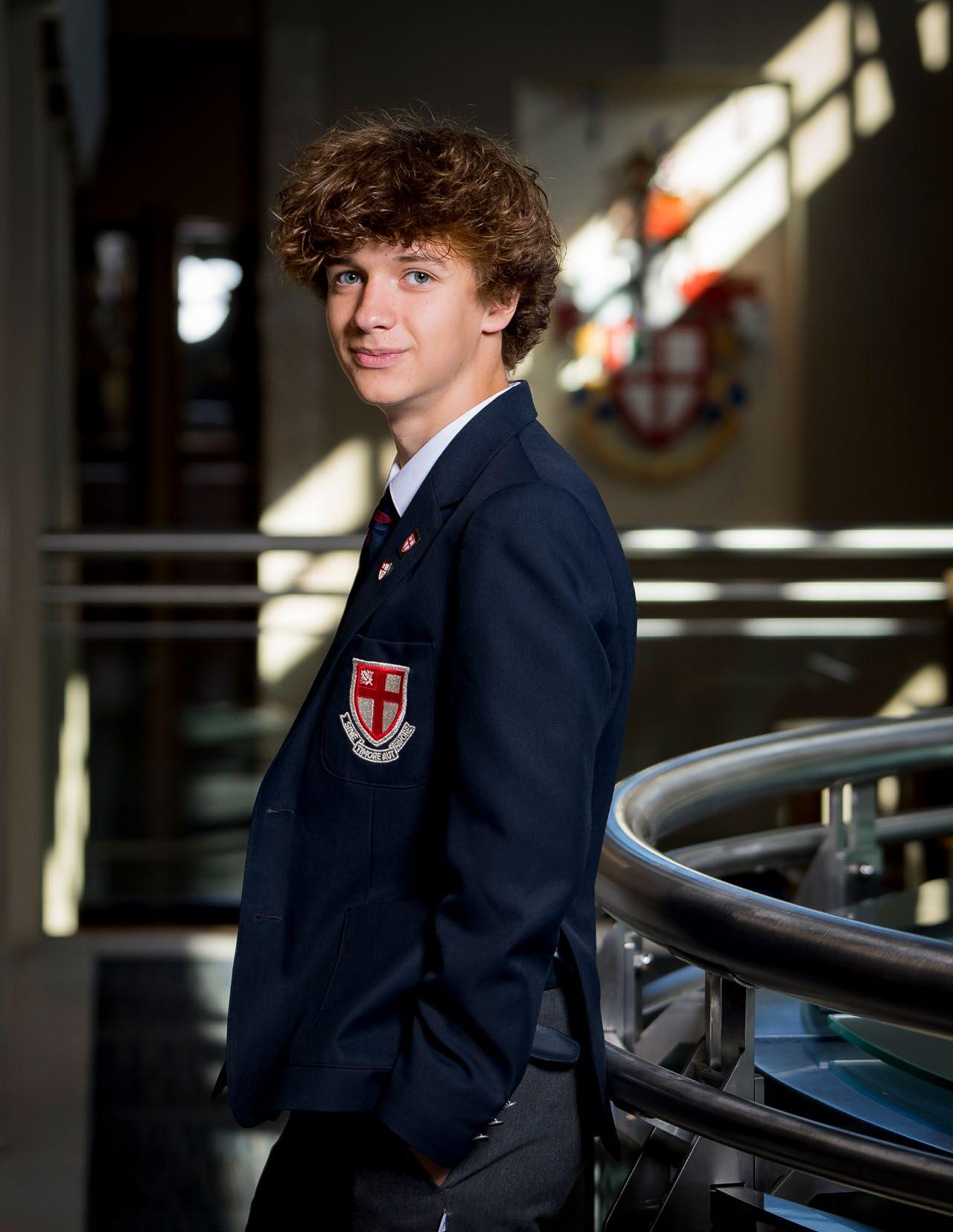
IN GRADE 10, students will continue with the same group of six core courses as in Grade 8 and Grade 9, and have two full-year courses of their choice. One change to note is that their Grade 10 English course has two parts: all students take English First Peoples Literary Studies 10 to start and then have a choice in which English 10 option they wish to pursue in the second half of the year. In Grade 10, we encourage students to go deep: choosing skills and topics they wish to explore with time, commitment, and curiosity. This is a year to learn through relationships and experiences. For their Grade 10 year, students have the option to apply for an interdisciplinary cohort. For 2024–25, two cohorts will be offered: Discovery 10 and Fusion 10. Students who apply to and are invited to join cohort experience specific classes (core and elective) with their cohort. These courses use the same foundational curriculum as the non-cohort sections; however, they are intentionally linked by the theme of the cohort and are focussed on deep interdisciplinary connections and authentic experiential education.
STUDENTS CAN ACCESS A COURSE PLANNING DOCUMENT HERE .
Students in Grade 10 may apply for a Cohort. A Cohort, consisting of approximately 20 students, takes several of their classes together for the entire year. This allows the teachers and students to experience unique learning opportunities that blur the typical boundaries of the classroom and permit greater connections with real-world learning. Each Cohort links a different combination of core (3-4) and elective (1) courses within a unifying theme. Participants in a Cohort have the same outcomes in the linked courses as non-Cohort students, but through a specific lens. For more information on the Cohorts, please view the School Portal, or contact Mr. Crompton (Fusion), Mr. Siess (Discovery), or Mr. Ziff. All students entering Grade 10 may apply to join either Discovery 10 or Fusion 10. Students may only be in one Cohort, but may apply to both. The Cohort application process is open from March 6th at 10:00 am and due by April 5th at 4:00 pm. Applications may be submitted through THIS LINK, using student’s regular St. George's School login. The application involves contributions from the student and a follow up confirmation of parent/guardian support (sent via email). Students who have applied to a Cohort should NOT submit their other course requests until they receive the results of their application.
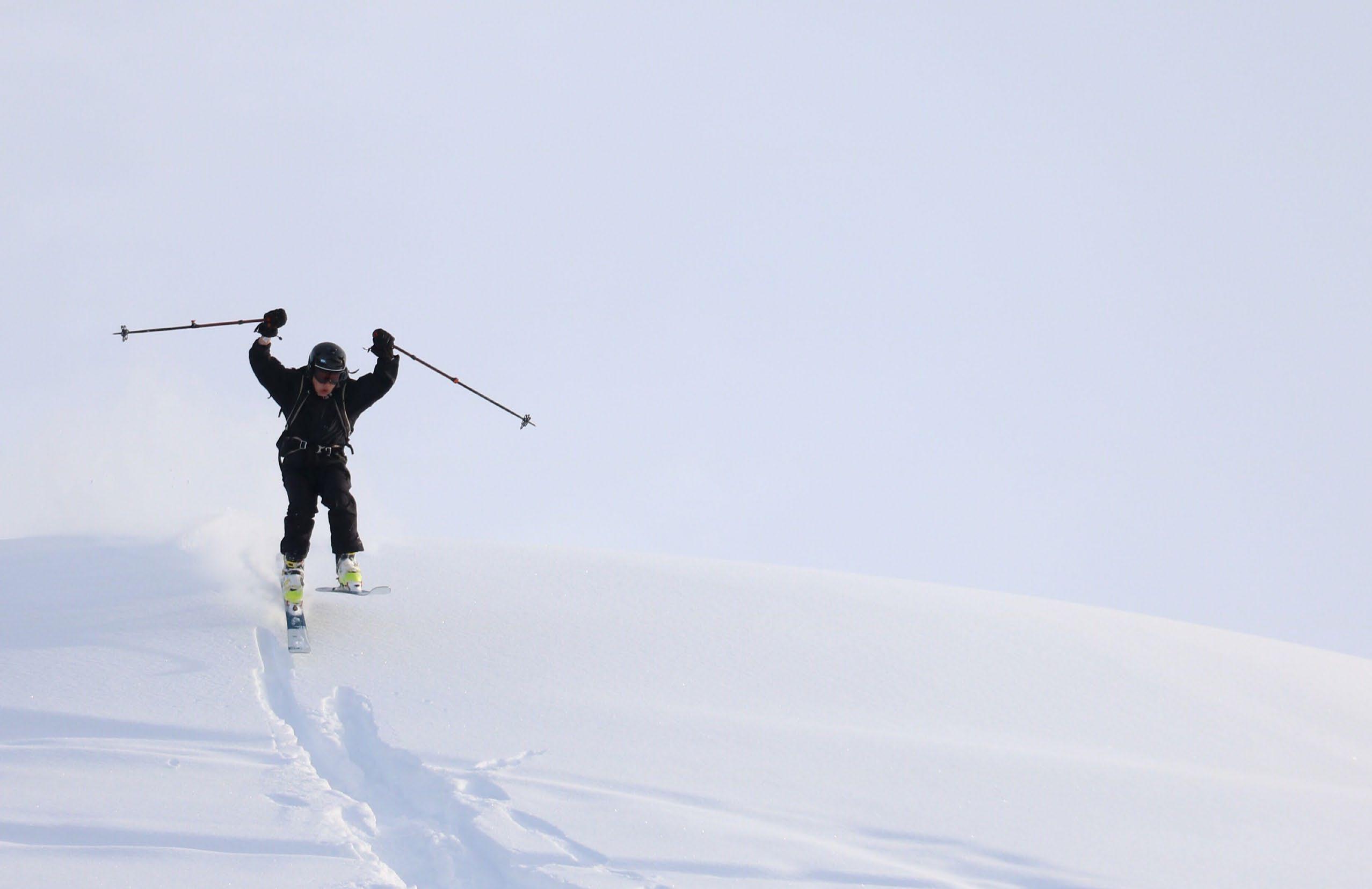
Grade 10 students are presented with a valuable chance to explore the boundless realm of STEM (Science, Technology, Engineering, and Math) through the Fusion Program, which operates under an integrated and experiential approach. As a cohesive cohort, all students actively engage in Science, Math, English, and the Fusion (Technology Exploration 10) course. By merging the curricula of these courses when possible, students are afforded the opportunity to foster robust connections and practically apply their knowledge. One such illustration involves a vehicle design project that effectively intertwines the Science 10 Physics curriculum with the tenets of applied design. To further expand their horizons and elucidate potential career paths and post-secondary avenues in STEM fields, the program orchestrates field trips and hosts guest speakers. A notable highlight of the program lies in the year-end project, wherein students are encouraged to harness their STEM expertise for the purpose of identifying and resolving a real-world challenge. Facilitating this endeavor are esteemed professionals from both academia and industry, who collaborate with the students. Field trips complement their learning journey by providing additional layers of enrichment. Throughout the program, all students actively partake in a pre-year retreat, customarily held in June of their Grade 9 year (the week following Graduation), as well as a year-end trip scheduled for May.
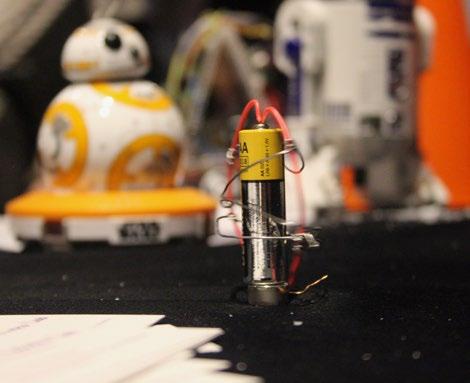
EFP LITERARY STUDIES 10 + NEW MEDIA 10
PRE-CALCULUS & MATH 11
SCIENCE 10
TECHNOLOGY EXPLORATIONS 10 ELECTIVE)
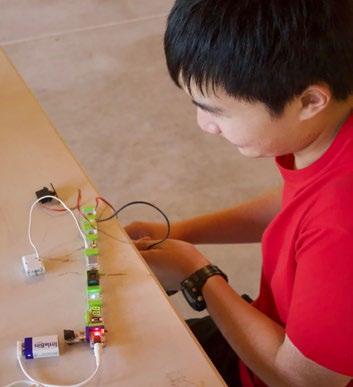
Discovery 10 is a Cohort Program that offers a year of challenging Outdoor Experiences through which students will learn the Grade 10 curriculum. Together, the Discovery students take Literary Studies & Spoken Language 10, Science 10, Social Studies 10, Physical Education 10, and Outdoor Education 11. These Cohort classes are often leveraged in order to deliver integrated and extended learning opportunities in the field and subject-specific catch-up blocks upon their return. The goals of the program are for students to gain self-confidence, work with others, improve their communication skills, and develop leadership skills. Furthermore, students will learn to extend their environmental and social awareness and examine their relationship with the natural world; the outdoor skills required for a variety of self-propelled activities (Hiking, Kayaking, Canoeing, Snowshoeing, Rock Climbing, and Camping); and to integrate academic learning to cultural and wilderness experiences
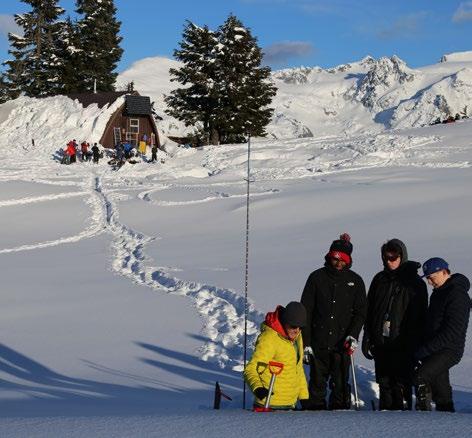
LITERARY STUDIES 10 + SPOKEN LANGUAGE 10
SOCIAL STUDIES 10
SCIENCE 10
PHE 10
OUTDOOR EDUCATION 11 (ELECTIVE)

This course is dedicated to fostering essential skills for success in the business world. Students embark on a journey that begins with a collaborative team project, guiding them through the design process, while concurrently undertaking the challenge of creating a prototype for an actual client. Armed with this foundational knowledge, students are then empowered to address a problem they are passionate about, ultimately evolving their ideas into viable business concepts. The course leverages Stanford's Business Model Canvas, guiding students through the dynamic process of creating a comprehensive business plan. Utilizing the modern 'blocks,' students learn to present their ideas in a contemporary business context and then pitch their ideas to an audience, where they must defend their ideas. The culmination of this course equips students with the requisite knowledge and skills to manage their personal finances, covering crucial aspects such as budgeting and investing. This is achieved through participation in an online simulation that replicates real-world financial scenarios. Throughout the course, a high emphasis is placed on fostering creative and critical thinking, problem-solving, and the ability to articulate individual ideas into written form. The curriculum builds upon information learned in other subjects, providing students with a holistic understanding that extends throughout the academic year. By the end of the course, students will have honed their business acumen, developed practical skills in design thinking, and gained financial literacy, positioning them for success in the dynamic and competitive landscape of the business world.
ELECTIVE INQUIRY/PROJECT, EXPERIENTIAL 1-2 HOURS
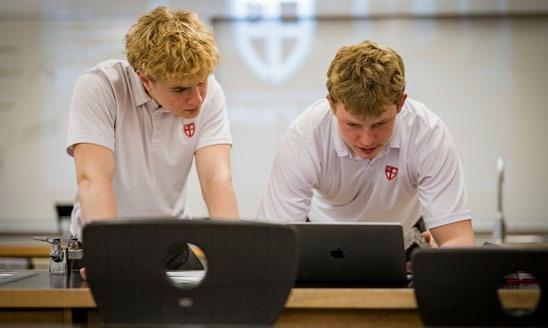
Electronics and Robotics 10 is a project-based, exploratory course. Students will gain practical knowledge about software development lifecycle where testing informs the next iteration of reaching successful results of what the mechanism intends to do. They will appreciate the importance of incremental steps and sequencing of processes and ideas. Students will learn how to design circuits using Arduino. They will also learn why things work and more importantly do not work in what they intend to accomplish. Important connection between electronic and mechanical elements will be explored and implemented. Students will troubleshoot code, mechanisms, and electronic components. Lessons are conducted in supporting and encouraging environment.
ELECTIVE INQUIRY/PROJECT, TECHNOLOGY/TOOLS 1-2 HOURS
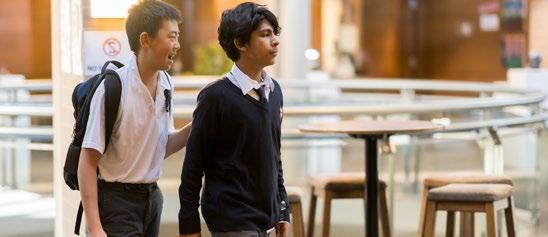
As of 2022–23 Web Development 10 is an exploration of Internet technologies featuring a focus on websites, applications, and impacts of technology. By exploring web design, user experience, and communication, students will become more confident and informed technology designers and users, and will be encouraged to find their personal voice through discussion, projects, and reflection. This course will cover basic programming concepts using HTML, CSS, and Javascript. It will also explore prototyping and wireframing with programs like Figma and Adobe XD. This course is designed to challenge students in both the world of programming as well as designing, using both computational thinking and design thinking to do so. This course assumes no prior knowledge of computer programming or web development.
ELECTIVE INQUIRY/PROJECT, TECHNOLOGY/TOOLS 2-3 HOURS
Fusion 10 is a course taken as part of the Fusion 10 Cohort Program. It focuses on the design and technology side of STEM and links as much as possible with the cohort Science, Math, English, and PE courses. Students will learn to apply their knowldge in all areas of STEM to build solutions to real world problems. The year's work cullminates in a personal project where students identify a problem that interests them and build a solution to solve it. Projects are presented within the School and to industry and university experts on our year end trip. This course is only for students who apply to and are invited to join Fusion 10.
ELECTIVE
INQUIRY/PROJECT, TECHNOLOGY/TOOLS, EXPERIENTIAL
3-5 HOURS
Graphic Production 11 is an exciting course that combines graphic arts, photography, and journalism in order to produce the annual Georgian Yearbook. Students in this course will take on a leadership role in the production of the book, learning skills in Adobe InDesign and Photoshop that will help them create visually engaging layouts and designs. They will also learn how to take and edit striking photos, and to write with concision and a consistent voice. As leaders on the Georgian production team, these students will have the opportunity to shape and preserve the legacy and memory of each year at the St. George's School.
ELECTIVE
DIRECT INSTRUCTION, TECHNOLOGY/TOOLS, EXPERIENTIAL
0 HOURS
Spoken Language 10 supports students in their development of spoken communication through processes of questioning, exploring, and sampling. This language arts option builds students’ spoken language competencies by introducing them to varied structures, forms, and styles of oral compositions, and by providing opportunities for students to individually and collaboratively study, draft, and use language to create original pieces in a variety of modes. This area of choice will also provide students with opportunities for performance, storytelling, and public speaking.
Spoken Language 10 is one of the English 10 courses students can take in conjunction with English First Peoples Literary Studies 10.
HYBRID
DISCUSSION, DIRECT INSTRUCTION, INQUIRY/PROJECT
1-2 HOURS
New Media 10 reflects the changing role of technology in today’s society and the increasing importance of digital media in communicating and exchanging ideas. Coursework is aimed at providing students with a set of skills vital for success in an increasingly complex digital world by affording opportunities to demonstrate understanding and communicate ideas through a variety of digital and print media. This language arts option explores tasks and texts designed to introduce students to a variety of contemporary media studies including film, journalism, writing for web content, blogging, and social media.
Note: Students with NCAA recruitment eligibility should take Spoken Language 10 or Creative Writing 10 instead. Please see the Academic Office for more details.
New Media 10 is one of the English 10 courses students can take in conjunction with English First Peoples Literary Studies 10.
HYBRID
DISCUSSION, DIRECT INSTRUCTION, INQUIRY/PROJECT
1-2 HOURS
Creative Writing 10 is designed for students who have an interest in creative expression through language. Students build their writing skills through the exploration of identity, memory, and story in a range of genres. Within a supportive community of writers, students will collaborate and develop their skills through writing and design processes. This language arts option is intentionally grounded in the sampling of writing processes, inviting students to express themselves creatively as they experiment with, reflect on, and practise their writing.
Creative Writing 10 is one of the English 10 courses students can take in conjunction with English First Peoples Literary Studies 10.
HYBRID
DISCUSSION, DIRECT INSTRUCTION, INQUIRY/PROJECT
1-2 HOURS

English First Peoples Literary Studies 10 is grounded in the understanding that texts are historically and culturally constructed. Students will explore First Peoples literature in a variety of contexts, genres, and media. In studying Indigenous perspectives, students will also become more proficient in the literary forms, techniques, and devices that writers use to effectively convey their opinions and themes. They will develop key analysis and interpretation skills. This course provides opportunities for all students to explore personal and cultural identities, histories, stories, and connections to land/ place.
All Grade 10 students will take English First Peoples Literary Studies 10 in conjunction with a language arts option of their own choosing: Spoken Language 10, New Media 10, or Creative Writing 10.
CORE PROGRAM DIRECT INSTRUCTION, DISCUSSION 1-2 HOURS
The course supports student writers in the fine-tuning and expansion of creative writing skills through the exploration of new media and global perspectives, and the utilization of critical thinking. One of the key focuses in Writer's Workshop 11 is the consideration of the human condition and the exploration of cultural boundaries through a consideration of world literature — both from established authors and from our own school community. Embedded within the course is the opportunity for students to participate in more focused workshop sessions and to meaningfully leverage technology as part of our curriculum. The course also provides real-life application with regard to the world of publishing and working with outside mentors from the field. Finally, the course provides students with the opportunity to explore preferred writing media with more independent depth as each class member strives to make meaning of the world around him. This course is open to students in Grades 10–12.
ELECTIVE
DIRECT INSTRUCTION DISCUSSION INQUIRY/PROJECT TECHNOLOGY/TOOLS EXPERIENTIAL
1-2 HOURS
The aim of Spanish 10 is to continue to widen the students' experience in the Spanish language, as well as leading them on cultural journeys through Latin America. Building upon the vocabulary and grammar base from Spanish 9 we will move into more complex structures, such as past and composed tenses that are vital to every form of communication in everyday life. Listening and speaking skills are honed more carefully, and are as important as written work in this course. Anchoring Spanish 10, we use a wide variety of online material and language magazines, and enjoy at least one movie study. Units of study will periodically substitute project-based assignments for our more traditional written tests and exams. Students can also look forward to field trips to Mexican or Spanish restaurants.
PRE-REQUISITE:
Spanish 9 or approval of Head of Department for Languages.
HYBRID
DIRECT INSTRUCTION, INQUIRY/PROJECT, EXPERIENTIAL
1-2 HOURS
Spanish Introductory 11 is a dynamic accelerated course for students with no background in Spanish and is directed at students in Grade 10 or 11 who may be new to the School without a background in the languages that we teach. Other students who wish to join this class can do so with the permission of the Head of the Spanish Department. Quickly building a vocabulary and grammar base in Spanish, students move into more complex structures that are vital to every form of communication in everyday life. Listening and speaking skills are honed carefully, and are as important as written work in this course. Students will enjoy cultural journeys through Latin America and Spain through their music, films, and food, and produce projects that highlight their newfound linguistic ability. Students can continue to a regular Spanish 11 class upon completion of this course.
HYBRID DIRECT INSTRUCTION, INQUIRY/PROJECT 1-2 HOURS
This course is designed for students with prior knowledge of Easy Steps to Chinese Book 1. Students in this course focus on building on past language exposure to improve speaking, listening, reading, and writing skills. Students expand their oral expression abilities by increasing vocabulary, improving understanding of grammar concepts, strengthening pronunciation abilities, focusing on listening comprehension, and building on previously learned Chinese characters. This course allows students to be able to speak about topics pertaining to their daily lives and also focuses on deepening knowledge of Chinese culture and customs.
PRE-REQUISITE:
Mandarin 9 or the approval of the Department Head.
HYBRID DIRECT INSTRUCTION, TECHNOLOGY/TOOLS 1-2 HOURS
Students in this course continue to build on past language exposure to improve speaking, listening, reading, and writing skills. Students expand their oral expression abilities by increasing vocabulary, improving understanding of grammar concepts, strengthening pronunciation abilities, focusing on listening comprehension, and building on
previously learned Chinese characters. This course allows students to be able to speak about topics pertaining to their daily lives and also focuses on deepening knowledge of Chinese culture and customs.
PRE-REQUISITE:
Placement Test and approval of the Department Head.
HYBRID
DIRECT INSTRUCTION, INQUIRY/PROJECT, EXPERIENTIAL
1-2 HOURS
French 10 is a dynamic course that builds on the language skills students have developed in earlier French courses. Students are encouraged to communicate actively in French, and are expected to develop their work to reflect more personal insight and a more sophisticated understanding of how the language works. A further expansion of thematic vocabulary and grammar concepts will help students improve their fluency. Many assessments are project based. Students in French 10 can look forward to trips to French restaurants, movies, and exhibits.
PRE-REQUISITE: French 9 or its equivalent.
HYBRID
DIRECT INSTRUCTION, INQUIRY/PROJECT, EXPERIENTIAL
1-2 HOURS
French 10 Honours is an enriched and fast-paced course that is taught in French. Students are expected to communicate consistently in French with each other and the teacher. It is an enriched class in that students are encouraged to speak, read, and write at a higher and more sophisticated level than what is expected in the regular French 10 class. The themes are supplemented by current francophone media from around the world. Students in all streams of French 10 can look forward to trips to French restaurants, movies, and exhibits. Please note that diagnostic assessments will be done the first week of class to ensure that students are registered at the correct level. Students may be moved to a different stream that best suits their current abilities.
PRE-REQUISITE: French 9 Honours
HYBRID
DIRECT INSTRUCTION, INQUIRY/PROJECT, EXPERIENTIAL
1-2 HOURS
This course introduces students to the achievements of the classical world through the study of Latin. Students will learn vocabulary and grammatical concepts essential for reading and translating adapted classical texts. English is the language of instruction, and students will develop their oral communication, reading, and writing skills in both English and the classical language. Through a variety of enrichment activities, students will explore aspects of life in the ancient world, including trade, commerce, education, arts, sports, ecology, daily life, and social practices, and will make connections across the curriculum between the classical world and the world around them.
PRE-REQUISITE: Latin 9
ELECTIVE DIRECT INSTRUCTION, DISCUSSION 1-2 HOURS
The Foundations and Pre-Calculus 10 curriculum places a strong emphasis on problem solving, critical thinking, communication, developing multiple approaches and making and reinforcing connections between the various Big Ideas. The following topics are studied: Trigonometry, factors and products, roots and powers, financial literacy, linear relations, relations and functions, and systems of equations. The skills learned in this course form the basis and foundation for all the mathematics which follow.
CORE PROGRAM DIRECT INSTRUCTION, INQUIRY/PROJECT 2 HOURS
The competition section of this Pre-Calculus 11 course is heavily enriched: students move very quickly through the curriculum, and the course is then able to give major emphasis to contest work and other enrichment. Students prepare for and are expected to participate in a variety of math contests throughout the year. Students must maintain a minimum of 92% on the course, and have demonstrated a strong interest in the contests in order to continue into the Competition section of Pre-calculus 12 in the following year. If a student who is currently in the Competition class in Math 10 (Grade 9), wishes to enroll in the Fusion cohort; they would not be able to remain in the ‘competition’ class in Grade 10. However, they are potentially able to return to the competition class in Grade 11 (Pre-Calculus 12 + Competition), if they continue to perform very well academically, and actively participate in and perform well on the contests that are available to them.
PRE-REQUISITE:
Final placement is determined by the Head of Department for Math.
RECOMMENDATIONS:
Students should have achieved at least 92% on their previous course, AND have shown excellent passion and motivation for contests and for enrichment.
CORE PROGRAM DIRECT INSTRUCTION, INQUIRY/PROJECT 2 HOURS
The Pre-Calculus 11 curriculum places a strong emphasis on problem solving, critical thinking, communication, developing multiple approaches, and making and reinforcing connections between the various Big Ideas. Pre-Calculus 11 is designed to provide students with the mathematical understandings and criticalthinking skills identified for entry into post-secondary programs that require the study of theoretical calculus. The detailed topic list is as follows: Patterns: sequences and series, both arithmetic and geometric; Trigonometry: angles in standard position; sine law; cosine law ; Quadratics: vertex form; standard form; completing the square ; Solving quadratic equations by graphical solution, factoring, completing the square, the quadratic formula; Functions: radical expressions and equations; rational expressions and equations; absolute value functions ; Systems of Equations: solving systems graphically; solving systems algebraically Inequalities: linear inequalities in two variables; quadratic inequalities in two variables. Students who take Pre-Calculus 11 in Grade 10 will ordinarily continue on to Pre-Calculus 12 in their Grade 11 year. High grades in senior math courses are usually required for competitive programs in science, engineering, and commerce. If you are struggling somewhat on the current course, it may be worth considering re-evaluating whether you should remain accelerated. There is no long-term benefit in studying the grade-level above if you cannot reasonably expect to get a comfortable A grade.
PRE-REQUISITE:
Final placement is determined by the Head of Department for Math.
RECOMMENDATIONS:
Recommended to have earned Extending profiency levels or an A grade in Math 10 in grade 9. ( 88% minimum)

Concert Band 10 builds on the foundational skills established in Concert Band 8 and 9. Whatever your current level, you will find that this ensemble will challenge you as a musician. It is this challenge that will provide growth and development for each student and director as we explore a variety of repertoire for the concert band. The concepts of tone, articulation, balance, blend, interpretation, technique, and phrasing form the basis of all instruction. Large ensemble and small ensemble works are performed with emphasis on concert band literature. Excellence of performance is stressed while students are taught to refine their musical skills and talent through a series of activities which include concerts, festivals, master classes, and yearly tours. Concert Band is the ideal venue for students who are interested in exploring their passion for music and working collaboratively with others.
PRE-REQUISITE:
Band 9, or prior experience on a woodwind, brass, or percussion instrument with approval of Head of Department for Music.
ELECTIVE DIRECT INSTRUCTION, EXPERIENTIAL 3-5 HOURS
Junior Jazz Ensemble is an opportunity for proficient and interested students to learn to play jazz in a big band setting. Students will undertake a journey exploring the history and repertoire of the major eras of jazz, including learning basic improvisation techniques. As an introductory course much of our effort will be devoted to internalizing the “feel” and “concept” of swing. We will do this through rehearsal, performance, and listening to many exemplary recordings. Rehearsals take place Tuesday and Thursday mornings from 7:00-8:15 am. Attendance is mandatory. We will perform at the Winter and Spring Music Department Concerts, as well as at the Envisions Jazz Festival (February), the BC Interior Jazz Festival (April), and at the School Fair. Any outside performance opportunities will be discussed by the group as they arise.
PRE-REQUISITE:
Open to join by audition, for any student enrolled in Concert Band 8, 9, or 10. Auditions occur during the second week of school. All students wanting to audition must download the audition materials from the Music Department website. This course is designed to give students the experience and skills of playing in a Big Band.
ELECTIVE DIRECT INSTRUCTION, EXPERIENTIAL 1-2 HOURS
Discovery 10 is a Cohort Program that offers a year of challenging Outdoor Experiences throughout which students will learn the Grade 10 curriculum. Together, the Discovery students take Literary Studies & Spoken Language 10, Science 10, Social Studies 10, Physical Education 10 and Outdoor Education 11. These Cohort classes are often leveraged in order to deliver integrated and extended learning opportunities in the field and subject-specific catch-up blocks upon their return. The goals of the program are for students to gain self-confidence, work with others, improve their communication skills, and develop leadership skills. Furthermore, students will learn to extend their environmental and social awareness and examine their relationship with the natural world; the outdoor skills required for a variety of self-propelled activities (Hiking, Kayaking, Canoeing, Snowshoeing, Rock Climbing, and Camping); and to integrate academic learning to cultural and wilderness experiences.
HYBRID INQUIRY/PROJECT, EXPERIENTIAL 5+ HOURS
Physical and Health Education 10 (PHE 10) aims to provide success for every individual student,regardless of physical abilities. We present activities in ways that encourage effort, preparedness, a positive attitude, sportsmanship, cooperation, and skill improvement. Over the year, students are taught a variety of lifelong sports and activities. These sports include aquatics, badminton, basketball, fitness, floor hockey, football, soccer, softball, volleyball, ultimate and yoga. We build up the skill set each year and add new advanced strategies and tactics to further excel in the understanding of each sport. The health outcomes for the course will be covered during tenHealth and Career Education classes, delivered in two mini units in the class over the course of the year. Students are assessed on the PHE 10 learning outcomes in the BC Ministry of Education curriculum. Our goal is to have boys finish the year with enthusiasm, confidence, and to strive to be fit for life!
CORE PROGRAM DISCUSSION, DIRECT INSTRUCTION, EXPERIENTIAL 0 HOURS
Science 10 prepares students for their senior program by developing a range of essential skills designed to broaden students perspectives on key themes in Science as well as and deepen their understanding on how these themes are inter-related. The key themes explored in Science 10 include an introduction to genetics, chemical bonding, chemical reactions, forms of energy, transformations between energy forms, and an introduction to Astronomy. Students will experience a variety of inquiry projects (CRISPR biotechnology applications) and lab-based instruction to develop strong foundational skills in each area of Biology, Chemistry, and Physical Science. Thinking, problem-solving, and team-building skills are emphasized to encourage the students ability to evaluate and analyze problems and ideas that are relevant in a rapidly changing world. After Grade 10, students will select a domain (or domains) of Science to specialise in (e.g. Earth Sciences, Chemistry, Life Science, Physics, etc) and so they should also pay attention to areas they are keen to explore further in future years.
CORE PROGRAM DIRECT INSTRUCTION, INQUIRY/PROJECT 1-2 HOURS
In Social Studies 10, we try to understand current issues and trends in Canada and the world. We will look for local, regional, and global patterns and parallels between the present and the past as we consider important themes of diversity, multiculturalism, and the impact of history on the present. The big ideas of the course explore the impact of global and regional conflicts; the development of political institutions; differences in worldviews and perspectives; local geographic information in comparsion with global issues; and historical and contemporary injustices. Students will engage in discussions, self-guided inquiry projects, and simulations to enhance their learning.
ELECTIVE DISCUSSION, INQUIRY/PROJECT 1-2 HOURS
The English Language Support class is for students who have been identified by the School as needing support with their spoken, written, and academic English skills. Students will be supported in acquiring mastery of English to help them succeed in community engagement and in their other classes.
Note: English Language Learners 8-10 are required courses for students who have been identified as requiring additional English language support.
RECOMMENDATION: Enrollment in this course is based on the recommendation of the ELL and Admissions Department.
DIRECT INSTRUCTION, DISCUSSION, 0 HOURS

This is a mandatory course for graduation that students will complete in Grade 10. The course occurs with direct instruction during pull-out classes from Physical and Health Education 10, and through special events during the school year (e.g. Flex Weeks and X-blocks, Advisory, assemblies, Global Stewardship Conference, ArtsWeek, etc). Learning focussed on preparation for life as an engaged community member including skills and aptitudes of personal development, personal advocacy and rights, planning and preparation for post-secondary and careers, and cultivating a sense of well-being and balance. This course is followed by Career Life Connections, which students complete in Grades 11 and 12.
CORE PROGRAM DISCUSSION, EXPERIENTIAL 0 HOURS
Drama 10 is a bridge between Middle School Arts Education and Senior Performance Arts courses. It challenges students to deeply express emotions and motivations in a safe, engaging, and rewarding environment, and to create three-dimensional characters and worlds with purposeful speech and movement. Actors will combine a deeper understanding of narrative structure, staging and acting, along with more advanced principles of lighting and audio, to create and perform their own, theme-driven play for an in-school audience. They will learn to communicate and think like actors, and will use these skills to break down and interpret scripts, as well as collaborate, critique and improve. Young actors will conclude their experience in Drama 10 with a oneact play that has been written for them, and they will go through a full rehearsal process before performing it for both school and immediate community audiences. No prior experience in a drama class is required to participate in this class.
ELECTIVE INQUIRY/PROJECT, EXPERIENTIAL 1-2 HOURS
Directing and Script Development 11 (previously known as Film Studies 11) focuses on individual and collective storytelling and meaning through the lens of vibrant histories, diverse cultures, and contemporary communities. With an ever-improving critical eye, students will explore people’s sense of identity and belonging. They will begin to understand the dedication and resilience of film-makers as they use a myriad of artistic techniques to immerse their audiences in the lives of their characters and subjects. In the end, the critical viewer must become the storyteller himself in order to understand how creativity and collaboration bring new perspectives to light and can change both the artist and the audience.
ELECTIVE
INQUIRY/PROJECT, TECHNOLOGY/TOOLS, EXPERIENTIAL
3-5 HOURS
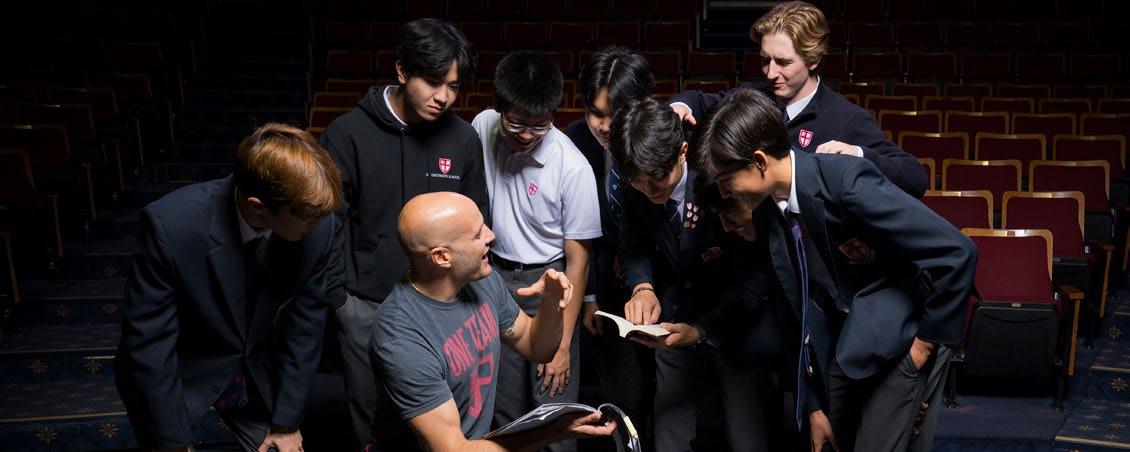
Television Production offers students the opportunity to delve into the creative and technical and side of short filmmaking. Students will learn and practice industry techniques and demonstrate their learned knowledge through group-based film projects. All units and projects in this course are structured to include the Pre-Production, Production, and Post-Production phases to allow for thorough understanding of the total process of film production. We will explore the fundamentals of writing and acting for the screen. During film apperception discussion, students will learn to unpack what makes a film successful. Finally, students will have an opportunity to take part in both live broadcasts of major school events as well as spirit videos to promote school events. A tremendous amount of maturity, cooperation, communication, and effort is required in this course due to the high level of group-based projects as well as the responsibilities related to our filmmaking equipment. Students taking Television Production 12 (see prerequisite) will go into more depth on the course outcomes, have the opportunity to specialise their learning, and will be expected to provide leadership and mentorship to the program.
ELECTIVE
INQUIRY/PROJECT, TECHNOLOGY/TOOLS, EXPERIENTIAL
5+ HOURS
In Media Arts 10, students’ knowledge and understanding of new media techniques will be enhanced through visually exploring and creating digital imagery. Based on the processes and content areas of the visual arts curriculum, the course provides an overview of some, if not all, of the following: Animation, Film/Digital Video, Graphic Design, Photoshop, and Digital Photography. With extensive use of Harmony by Toon Boom, Adobe Premiere, and Photoshop. Students will learn the technical and fundamental aspects of image creation on a Mac computer.
ELECTIVE
DIRECT INSTRUCTION, INQUIRY/PROJECT, TECHNOLOGY/TOOLS, EXPERIENTIAL
0 HOURS
In this course, students will spend half of the year on the potter’s wheel making functional pottery forms, and the other half creating hand built sculpture projects. The course is project-based and students are encouraged to express their own ideas, emotions and personalities using clay and ceramic processes. Sketchbooks are used to document the creative processes explored throughout the year. The program hosts visiting artists and arranges field trips for inspiration and learning about the diverse world of Ceramic Art. No prior experience is necessary but a willingness to get muddy is mandatory! All work assigned can be completed in class time, but students are encouraged to attend Ceramics Club to extend their exploration and skill development.
ELECTIVE
DIRECT INSTRUCTION, INQUIRY/PROJECT, TECHNOLOGY/TOOLS, EXPERIENTIAL
0 HOURS
Theatre Production 11/12 is a hands-on experience for students working on Saint’s Players Theatre productions and other events in the Auditorium. The course is meant for students who wish to gain valuable practical skills, many of which are applicable outside of theatre. The course offers students the chance to explore areas such as stage/ house management, lighting, sound, scenic design, scenic painting, setconstruction, wardrobe, props, and makeup.
This course supports the various stage productions at Saint George’s School throughout any given school year, including events such as plays, concerts, musical shows, and some presentations at weekly assemblies. This will require, from each student, some out-of-class time for a variety of activities, including scenic design and construction, props building, rehearsals, and the set-up, run and strike phases of a production.
Students should enter the class with the understanding that they will be required to work the show run of at least one of the school productions, which is a very rewarding but serious time-commitment. Students taking Theatre Production 12 (see prerequisite) will go into more depth on the course outcomes, have the opportunity to specialise their learning, and will be expected to provide leadership and mentorship to the program.
ELECTIVE
INQUIRY/PROJECT,
The primary focus of this course is the development of critical and creative capacities, through visual exploration and questioning of self. They do this by exploring cultural influences, artistic traditions, and contemporary perspectives to gain more comprehensive understandings of self. Students will explore ways to convey their thoughts, emotions, and ideas visually through guided studies and sustained drawing from various sources. Students gain experience in techniques that include charcoal, oil, and chalk pastel as well as acrylic and watercolor paint. The imagination and curiosity of the student are of paramount importance in this elective.
ELECTIVE INQUIRY/PROJECT, EXPERIENTIAL 0 HOURS
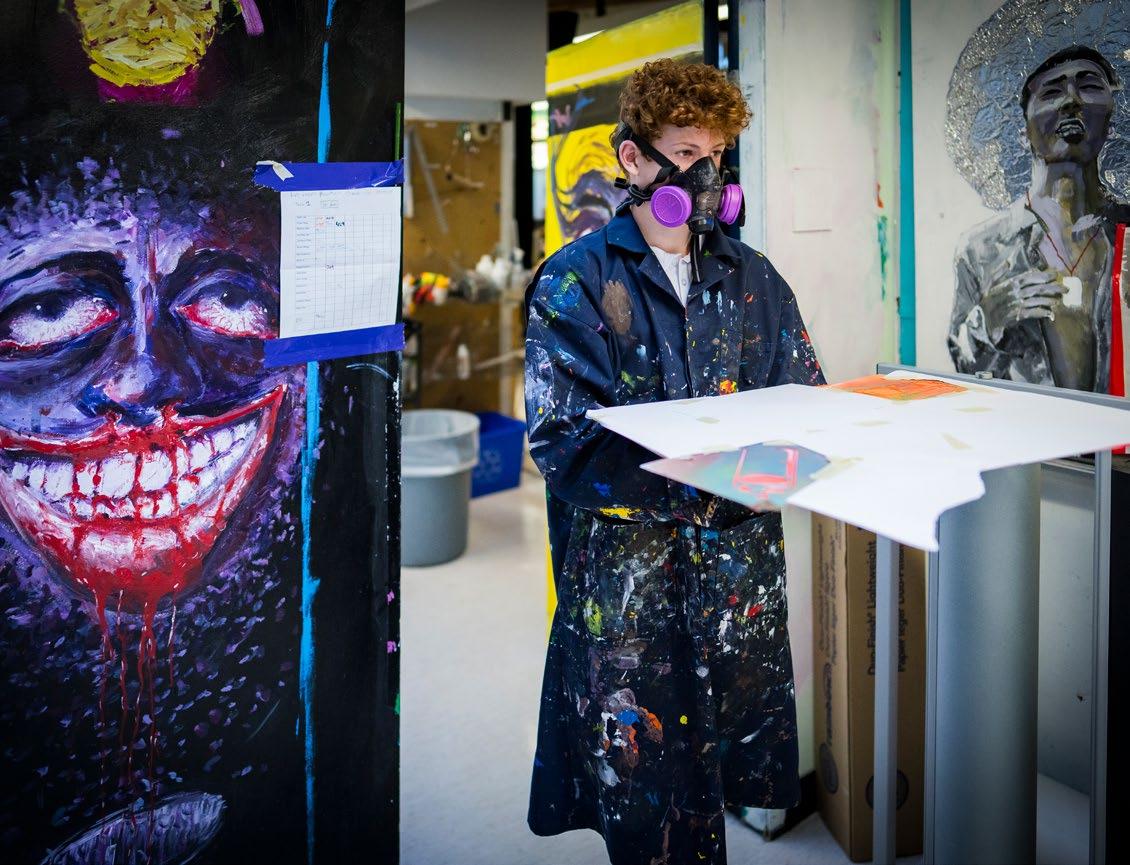
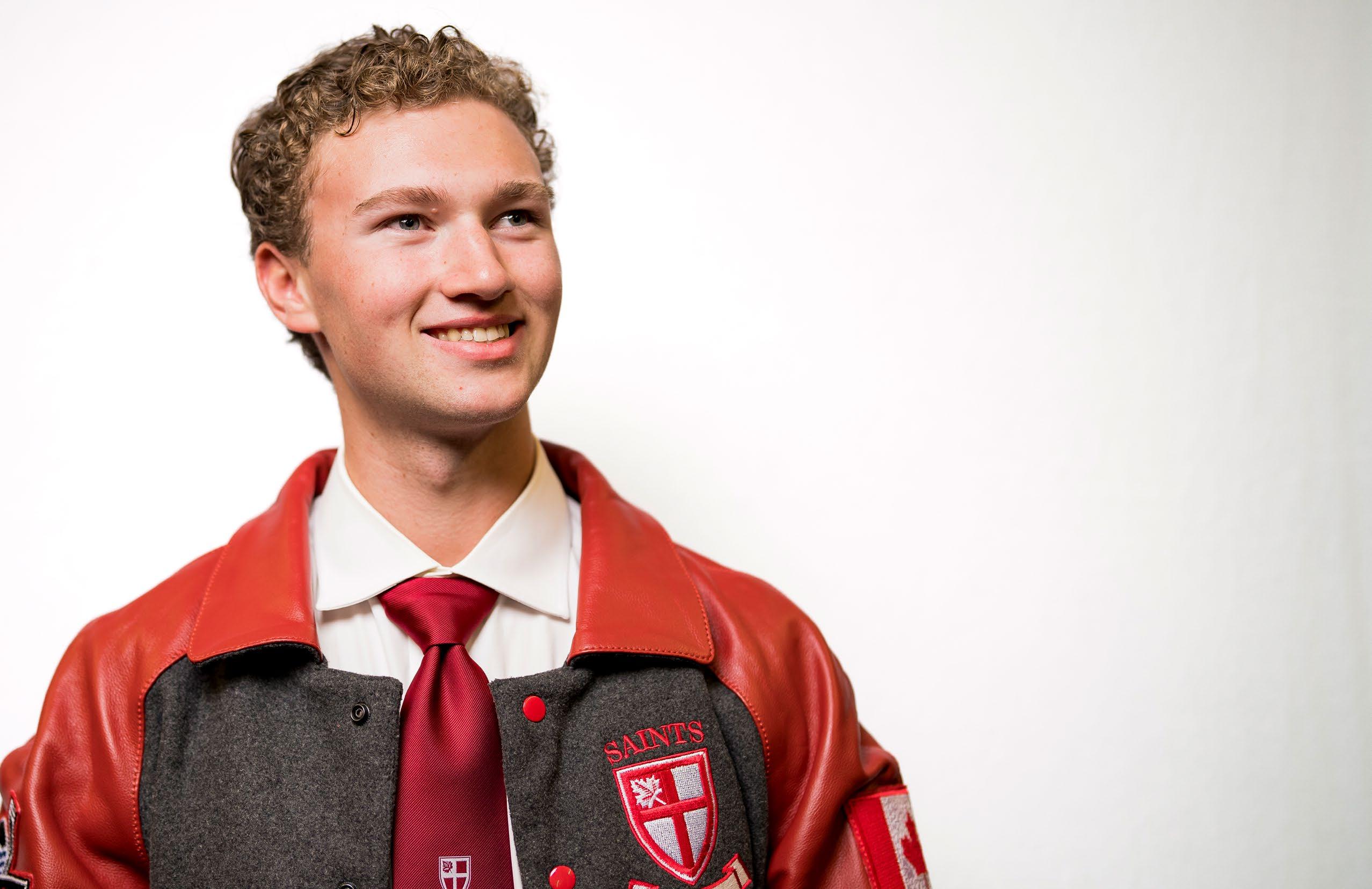
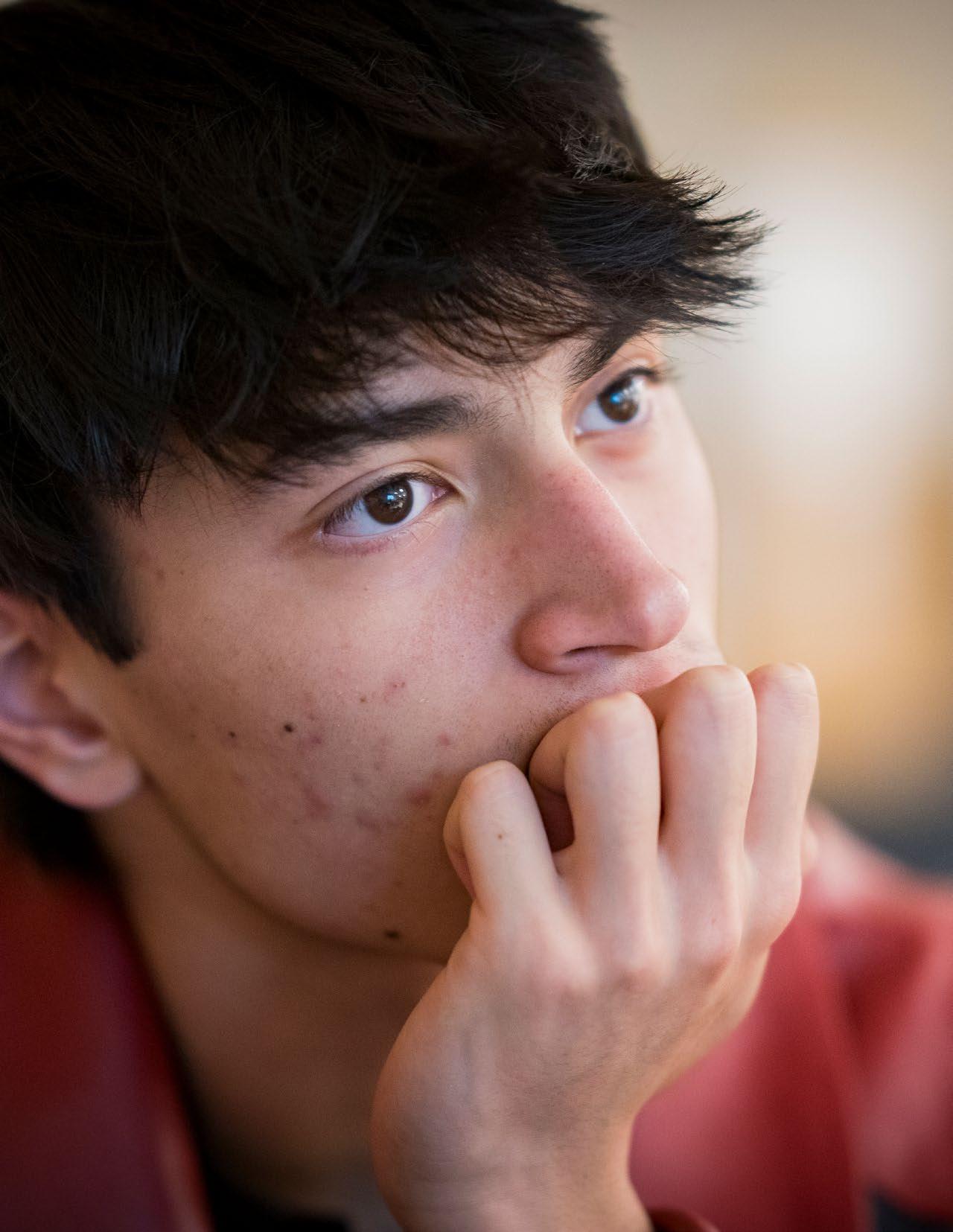
, students have a wide variety of required and elective courses. In these grades, we encourage students to see their choices as part of a two-year Graduation Program. Some courses have prerequisites, and some have recommended standings in previous courses. Some students will have identified required courses to be eligible for specific universities or programs. In all cases, we encourage students to look at these years in a holistic way, selecting courses that offer challenges and also the opportunity to return to areas of passion or interest from previous years. This is the time to see the seeds planted in previous years of experimentation and depth blossom.
Students may request a spare without a required co-enrollment course. Students should think of this spare block as an independent study block, using it for time within the school day to complete homework, meet with teachers, and pursue independent interests or contributions to the life of the School. Having a spare aligns with our recommendation that a Grade 11 schedule consist of the five required courses; a "stretch course" (course that pushes a student into new areas of knowledge or skill sets); and a “grow course” (course or courses that delve into a passion or support wellness).
A well-rounded, recommended St. George’s education in Grade 11 would include a course from at least one of these areas:
• Arts Education (Music, Theatre Arts, Visual Arts)
• Physical and Health Education
• Applied Skills, Design, and Technology
Grade 11 students are required to be on campus for their spares. Students who request eight academic-based subjects will have their schedules subject to School approval.

A small number of courses will enable students to earn double credit. Students should see double credit courses as requiring more than the typical amount of independent work, fast-paced, and challenging. Students will be assessed specifically on the outcomes associated with each course, and will earn independently-generated marks for each course associated with the double credit.
In all cases, signing up for the course means that students will be automatically enrolled in the double credit, and responsible for completing the learning and assessments associated with the double credit designation. It is not possible to enroll in one of the courses listed below and only complete one of the listed credits.
AP
AP
AP
AP
AP CHEMISTRY 12
Grade 12 students only
LATIN 11/12
AP ECONOMICS 12
•
• Physics 11
• Physics 12
• AP Physics 2 Honours 12
• Chemistry 12
• AP Chemistry 12
• Latin 11 (Semester 1)
• Latin 12 (Semester 2)
• AP Microeconomics 12 (Semester 1)
• AP Macroeconomics 12 (Semester 2)
Advanced Placement (AP) courses are available to students in Grades 11 and 12. AP courses follow a curriculum designed by the College Board, and are directed towards a final exam (set by the College Board). AP courses are open only to Grade 11 and Grade 12 students, and count as courses towards graduation. St. George’s School does not recommend students in Grades 8-10 self-study AP courses or self-study exams, and will not excuse students in these grades from school or school trips to write AP exams.
There are additional steps students in AP courses must take, including:
• Registering for all AP courses they are registered in at St. George’s using their legal name and four-digit student number on the AP registration site in the fall.
• Registering for the AP subject exam in May.
AP exams take place in May, and do not factor into a student’s grade in the course. The students may opt out or cancel an AP exam by submitting the provided cancellation form. There is a charge for each AP exam that a student writes or cancels after November 15th. Students who do not show up to write their scheduled AP exam will incur a charge for the exam. These will be charged to the student’s account at the end of the year. Students in Grade 11 and Grade 12 may register to write an exam for a course they have self-studied, but only if the course is offered at the school in that school year. Only St. George’s students may write AP exams at the school.
Information on the course registration and exam sign up/cancellation will be sent to students in the fall via email.
For further information on AP Courses, please refer to the College Board website
We are committed to the quality and impact of our educational programming at St. George’s School in the classroom and in our integrated approach that infuses learning, character education, and community engagement. We provide a variety of ways for students to be exposed to new interests, pursue passions, meet graduation requirements, and fulfill post-secondary application needs.
We expect St. George’s students to complete their high school education through our provided program and pathways. Should a student wish to pursue online or summer school courses, they should consult the respective Head of Department, their University Counsellor, and the Associate Principal of Academics to understand the implications on their learning. Students must be aware that:
• All courses required to fulfill graduation requirements must be taken at St. George’s School.
• Any course that serves as a prerequisite for a subsequent course must be taken at St. George’s School. Example: A student wishing to take Physics 12 at St. George’s must take the prerequisite Physics 11.
• There is a possible exception for students who have demonstrated exemplary understanding in their Pre-Calculus 11 class to accelerate and take Pre-calculus 12 during the summer after their Grade 11 year. Pre-Calculus 12 must be completed by August 30th prior to a student being permitted to enroll in Calculus 12. Consultation with the Head of Department for Math and approval from the Associate Principal of Academics is required. Please email both before June 1, 2024 for approval.
• The St. George’s School transcript will only show courses that have been completed within St. George’s School, or graduation requirements for which equivalencies have been granted (i.e. students who complete Grade 10 outside of BC).
• Approval for courses taken at the post-secondary level (i.e. UBC Access Studies) is on a case-by-case basis for students in unique circumstances. Inquiries should be directed to the Associate Principal of Academics for more information.
If students choose to take a course through a summer or online provider, they are expected to hold themselves to the highest ethical standards when taking these courses, including but not limited to upholding our expectations for Academic Integrity in assessments and self-reporting, and affirming they are not simultaneously enrolled in the same course at two different providers (including two online providers, one online provider and St. George’s School, etc).
Students who take Ministry courses with other accredited providers should forward their final transcript to the School Registrar (registrar@stgeorges.bc.ca). Courses will be added once complete or, if taken by Grade 12 students, at the School’s regular reporting intervals (October, December, March, and June).
Working together with the Academics Office, the University Counselling Team will send St. George’s School’s/Ministry of Education transcripts directly to post-secondary institutions to support students' applications, where applicable. If students (of any grade) require a transcript for other purposes (jobs, scholarships, summer programs, etc):
• Students may request a copy of their St. George’s School transcript by completing the form HERE
• Students may request a copy of their Ministry of Education transcript by following information HERE.
• Students who believe they qualify for Challenge, External, or Equivalency credits should contact the Associate Principal of Academics.
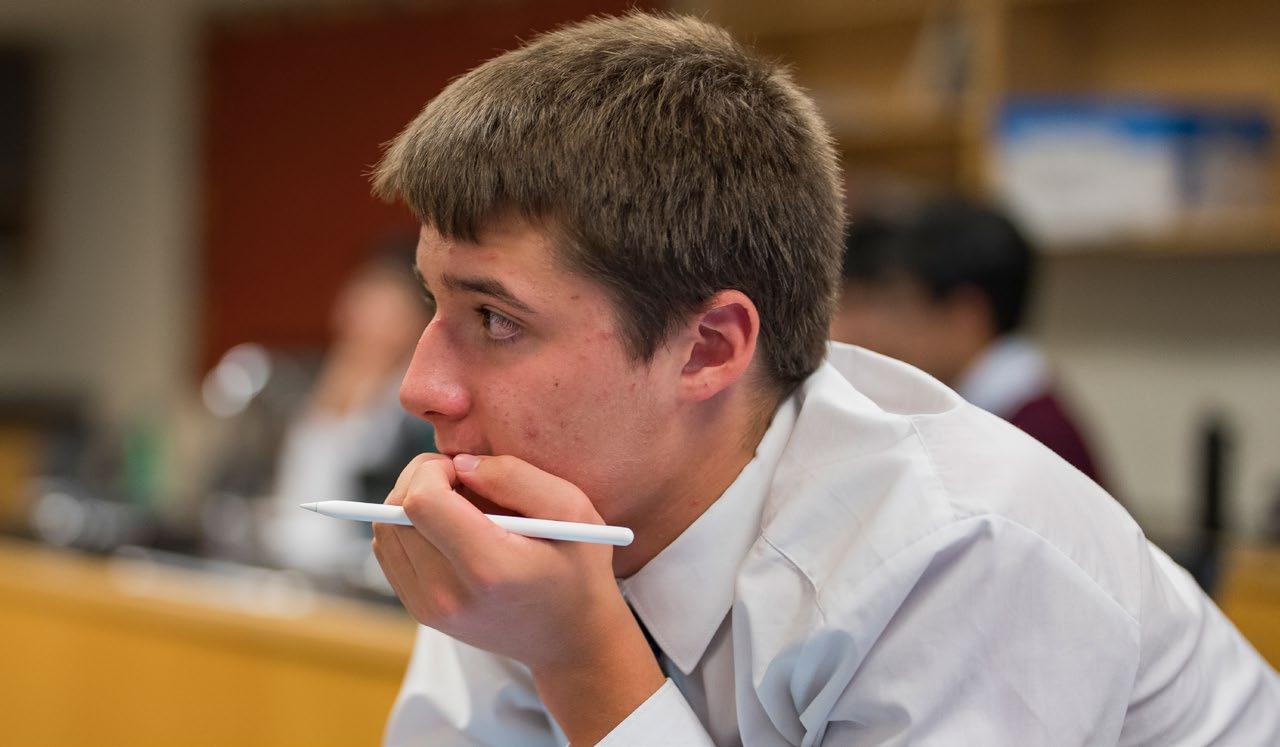
Students are offered an opportunity to explore topics in Computer Science of their own choice. They must demonstrate that their chosen project contains programming material that is beyond the APCS level of programming and they must also demonstrate a high level of achievement with their chosen topic. Part of the assessment will be to document their progress, discussing what they have learned, what they found interesting and what they found challenging, and part of the assessment will actually be the project that is produced. Students are encouraged to utilize a project management application to break down their project into milestones which they can use to demonstrate their progress.
PRE-REQUISITE:
AP Computer Science A 12 or having already written the APCS exam along with approval of the Head of Department for ADST
ELECTIVE DISCUSSION, EXPERIENTIAL 3-5 HOURS
AP Computer Science A 12 is intended to further develop the programming ability of students. While the standard concepts of programming are covered in detail, students are also challenged to write compact solutions to the given problems as well as concepts such as space and time efficiency. These ideas are then used to help further develop each individual's programming ability. Students will have a mature approach to programming as well as having developed their own unique style towards programming.
PRE-REQUISITE:
Computer Programming 11 and/or Computer Programming 9, or with approval of the Head of Department for ADST
ELECTIVE DISCUSSION, DIRECT INSTRUCTION 3-5 HOURS
Students will explore components of the digital world of marketing in E-Commerce 12. From foundational principles to advanced strategies, the course will delve into all different themes of online business, covering topics such as digital marketing, search engine optimization, and website creation. Through a combination of theoretical knowledge, practical application, real-world case studies, and hands-on simulations, students will be well-equipped to navigate and thrive in the dynamic landscape of E-Commerce. Note: There is an opportunity for individual students to bring their Entrepreneurship & Marketing 10 venture to market.
ELECTIVE INQUIRY/PROJECT, EXPERIENTIAL 1-2 HOURS
Economics 12 provides students with a framework from which they can increase understanding of economic principles and learn the competencies required to study economics successfully at the post-secondary level. Students will understand and use economic terms and concepts, study the exchange of goods and services, and also be exposed to both assumptions and theory regarding economic practices. As well, the study of current economic developments, trends, and issues enables students to improve their educational and career choices. Students are taken through the process of producing an Academic Paper to demonstrate their understanding of Information Literacy, including skills to formulate a research question, assess relevancy and credibility of sources, how to navigate databases and other critical skills to write and support a position on a macroeconomic topic. There is an expectation to be able to articulate ideas succinctly, research critically, analyze thoroughly and solve problems both with a team and independently. Success in this course depends on hard work and passion.
AP Economics consists of two, independent, semester-long courses and are for students interested in the basics of economic perspectives and those keen to pursue economics and/or business as a career. The course follows the Advanced Placement curriculum, beginning with Microeconomics and supply and demand, elasticity, perfectly competitive to monopoly markets, and the interaction of land, labour, and capital complete in the first half-year. After the first semester, the focus will be on the Macroeconomy and macroeconomic models that permit us to investigate and delve into national product, inflation, fiscal and monetary policies, the banking system, trade, and economics development for the balance of the year. Students receive credit for Microeconomics in (Semester 1) and Macroeconomics in (Semester 2).
ELECTIVE DISCUSSION, DIRECT INSTRUCTION 3-5 HOURS
The Entrepreneurship 12 course provides a broad overview of the process of turning an innovative idea into a successful enterprise. This course will be useful for anyone, whether or not they have had prior business or entrepreneurial experience. The course explores the characteristics of the entrepreneurial mind and the environment in which these ventures succeed. The course provides selfassessment of the skills and commitment necessary to successfully start and operate an entrepreneurial venture. From there, students create their own startup venture and are guided through the entrepreneurial approach. This approach consists in validating or pivoting assumed hypothesis about the buisness venture. The course uses the Canvas Business Model and the Lean Startup methodology as the tools to refine their concept. Entrepreneurship 12 is a hands on, project based course, which features numerous guest speakers and opportunities to "get out of the building" to connect class concepts to the real world.
ELECTIVE DISCUSSION, DIRECT INSTRUCTION 1-2 HOURS

Electronics and Robotics 11,12 is a project-based, exploratory course. Students will gain more advanced knowledge of how software development lifecycle works where testing informs the next iteration of reaching successful results of what the mechanism intends to do. They will appreciate the importance of incremental steps and sequencing of processes and ideas. Students will learn how to design more advanced circuits and elements using Arduino as well as why things work and more importantly do not work in what they intend to accomplish. Important connections between electronic and mechanical elements will be explored and implemented. Students will troubleshoot code, mechanisms, and electronic components. An important part of the course is the research element of latest trends in Robotics, Society, and Electronics. Lessons are conducted in a supportive and encouraging environment.
RECOMMENDATIONS:
Prior coding experience is recommended.
ELECTIVE INQUIRY/PROJECT, TECHNOLOGY/TOOLS 5+ HOURS
This course is designed as an in-depth study of woodwork and joinery. Students will use tools and equipment safely and confidently to explore advanced woodwork practices. While working through an applied design process, students will develop a sense of personal agency and demonstrate a high level of creativity and technical skill. Students will journal and connect their pieces and experiences to culture, identity, community, and place.
PRE-REQUISITE:
WW8 or WW9 is required, or with approval of Head of Department for ADST.
ELECTIVE
INQUIRY/PROJECT, TECHNOLOGY/TOOLS, EXPERIENTIAL
0 HOURS
Graphic Production 11 is an exciting course that combines graphic arts, photography and journalism in order to produce the annual Georgian Yearbook. Students in this course will take on a leadership role in the production of the book, learning skills in Adobe InDesign and Photoshop that will help them create visually engaging layouts and designs. They will also learn how to take and edit striking photos, and to write with concision and a consistent voice. As leaders on the Georgian Production Team, these students will have the opportunity to shape and preserve the legacy and memory of each year at St. George's School.
ELECTIVE DIRECT INSTRUCTION, TECHNOLOGY/TOOLS 0 HOURS
Composition 11 is an English 11 option for students who wish to hone their writing abilities through careful study of mentor texts. This course supports students as they refine, clarify, and adjust their written communication. Students will focus on developing their close reading ability as well as their oral and written communication skills. A variety of fiction and non-fiction texts will be studied, and students will be exposed to different writing styles. These texts will be used as models for students in the development of their own writing. This course incorporates First People's Principles by examining stories as a way to learn about both ourselves and different cultures.
PRE-REQUISITE: Any English 10 course.
CORE PROGRAM DIRECT INSTRUCTION, DISCUSSION 1-2 HOURS
Composition 11 Honours is an enriched English course designed to support students as they refine, clarify, and adjust their written communication through practice and revision. The course challenges students to look at fictional and non-fictional texts through an argumentative lens as well as apply rhetorical strategies to their own writing. Students will have the opportunity to examine a variety of texts including letters, essays, and speeches that are historically significant or related to current events. Students will learn and apply close reading, analytical writing, and speaking skills with the goal of honing their communication ability. In particular, students will have opportunities to hone their ability to write essays in different genres. Note: This is an excellent option for students who wish to prepare themselves for AP English Literature or AP English Language in Grade 12.
PRE-REQUISITE: Any English 10 course.
CORE PROGRAM DIRECT INSTRUCTION, DISCUSSION 2-3 HOURS

Literary Studies 11 is an English option for Grade 11 students who wish to delve deeply into literature. This course focuses on texts that examine the role of the individual in society, and the role of myths in various cultures. Students will examine poetry, non-fiction and fiction texts, and engage with a variety of media. Through this course, they will learn and apply close reading, argumentative and creative writing, and speaking skills with the goal of developing their communication and comprehension ability. This course incorporates First People's Principles by examining stories as a way to learn about both ourselves and different cultures.
PRE-REQUISITE: Any English 10 course.
CORE PROGRAM DIRECT INSTRUCTION, DISCUSSION 2-3 HOURS
Literary Studies 11 Honours is an enriched English course that focuses largely on British Literature from the last 1000 years. The course is designed for students with a decent understanding of literature and composition, a strong interest in history, and a passion for storytelling in all of its forms. Students read a broad range of texts, from the warrior-poets of the Anglo-Saxon era, to the early environmentalists of the Romantic period, and the cynicism of the Modernist era. Additionally, students in this course will make connections to contemporary literature and global perspectives, deepening their worldview and nurturing their appreciation for the written word.
NOTE: This is an excellent option for students who wish to prepare themselves for AP English Literature or AP English Language in Grade 12.
PRE-REQUISITE: Any English 10 course.
CORE PROGRAM
DIRECT INSTRUCTION, DISCUSSION, INQUIRY/PROJECT
2-3 HOURS
ENGLISH
English Studies 12 builds on and extends students’ previous learning experiences in English 11. It is designed for all Grade 12 students and provides them with opportunities to refine their written and oral communication skills as well as their ability to think critically and creatively. In this course, students will have opportunities to explore texts from a variety of sources; this will allow for the analysis of many perspectives and challenge students to gain an appreciation and understanding of literature’s ability to represent diverse worldviews. English Studies 12 is a mandatory course, but students may opt to meet graduation requirements with the equivalent English First Peoples 12 instead.
PRE-REQUISITE: Any English 11 course.
CORE PROGRAM DIRECT INSTRUCTION, DISCUSSION 3-5 HOURS
This course is grounded in the First Peoples Principles of Learning. It is designed for all students who are interested in delving deeply into First Peoples oral and written literature and visual texts in a range of media. The course focuses on the experiences, values, beliefs, and lived realities of First Peoples as evidenced in various forms of text, including oral story, poetry, song, performance, film, and prose. A key feature of the course is its focus on authentic First Peoples voices (i.e. historical or contemporary texts created by or with First Peoples). While the focus in EFP 12 is primarily on First Peoples voices from British Columbia, students also engage with texts that reflect First Peoples perspectives from elsewhere in Canada and throughout the world. Students can meet graduation requirements with this course, which is equivalent to English Studies 12.
PRE-REQUISITE: Any English 11 course.
ELECTIVE DISCUSSION, INQUIRY/PROJECT 3-5 HOURS
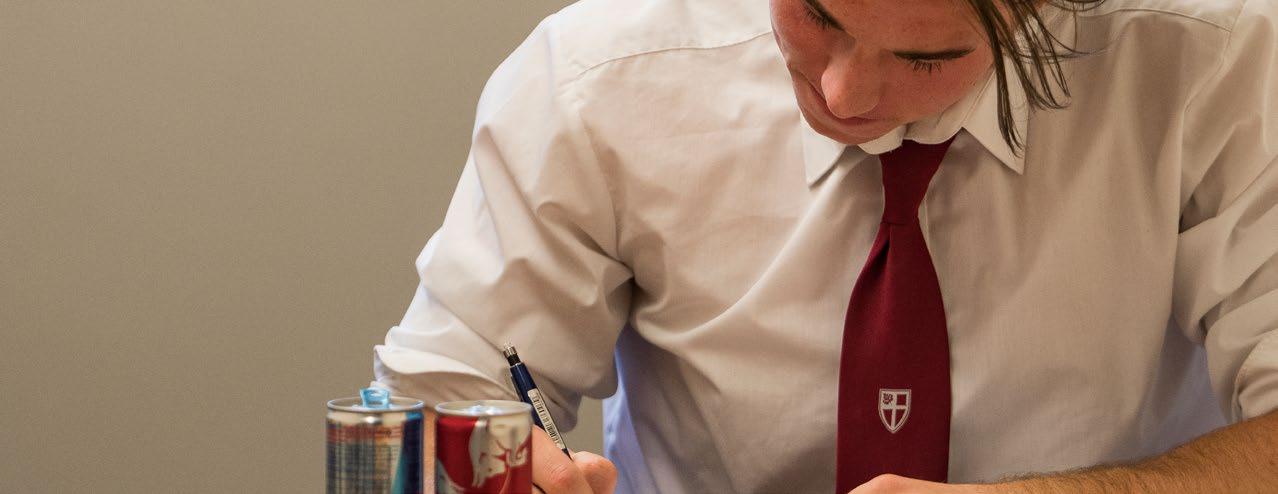
The AP English Language and Composition course is equivalent to an introductory college-level course; therefore, students who enroll in this course are expected to be strong, successful English students who want to enhance an already proficient skillset in the English language. The course focuses on the study of nonfiction texts from different historical periods, although the majority of works covered are written by 20th century and present-day authors. Students will be exposed to a variety of written genres, including speeches, letters, essays, and graphic images as texts. The study of these works encourages students to focus on critically analyzing texts with the goal of discussing and presenting oral and written arguments based on the rhetorical strategies and elements employed. Students are required to develop evidence-based analytic and argumentative essays that proceed through several stages or drafts including opportunities for self and peer revision, assessment, and reflection. Students will evaluate, synthesize, and cite research to support their arguments. Throughout the course, students develop personal style by making appropriate stylistic and grammatical choices. Students who select this course will also complete the English Studies 12 course concurrently.
(See Double Credit Course Guidelines)
PRE-REQUISITE:
Students are required to have earned Extended proficiency level or an A grade in their English 11 course, or with approval from the Head of Department for English.
CORE PROGRAM DIRECT INSTRUCTION, DISCUSSION 3-5 HOURS
AP ENGLISH LITERATURE & COMPOSITION 12
AP English Literature and Composition provides an enriched program with a college-level approach to the interpretation of imaginative fiction. The course is organized roughly by genre and thematic continuity, particularly as seen in works by classical writers such as Shakespeare, and major novelists, poets, and playwrights. Most students in AP English will write the English Literature and Composition Advanced Placement exam in early May. Inferential and critical comprehension is stressed throughout the year, and the reading of scholarly criticism helps to prepare students for their own critical efforts in this and subsequent years. With the presumption that students are already competent writers, the course focuses on the development of a precise yet elegant style capable of responding to a variety of critical and literary sources. Students who select this course will also complete the English Studies 12 course concurrently.
(See Double Credit Course Guidelines)
PRE-REQUISITE:
Students are required to have earned Extended proficiency level or an A grade in their English 11 course, or with approval from the Head of Department for English.
CORE PROGRAM
DIRECT INSTRUCTION, DISCUSSION, INQUIRY/PROJECT
3-5 HOURS
Welcome to The Echo! Journalism 12 is an elective course that provides a unique opportunity for students to produce a professional-quality, student-directed online newspaper. News articles will feature stories that are of interest to the St. George’s community, neighbouring schools, and teenagers in general. By creating an interactive, WordPress-based website, Journalism students will be able to report, on a regular and timely basis, on the many events that occur at St. George’s School such as Athletics, Arts, Service And Charity, Games, and Clubs. In addition to studying the attributes of quality Journalism (researching, writing, and editing news for the public), students will also become familiar with contemporary online literacies such as blogs, YouTube, social media, and more. Using these resources and publishing online in a responsible and ethical way are at the core of journalistic practices today. Journalism students will produce a professional portfolio of published articles, photographs, and videos on our news website. This course is open to students in Grades 10–12.
ELECTIVE
DIRECT INSTRUCTION, DISCUSSION, INQUIRY/PROJECT, TECHNOLOGY/TOOLS, EXPERIENTIAL
1-2 HOURS
The course supports student writers in the fine-tuning and expansion of creative writing skills through the exploration of new media and global perspectives, and the utilization of critical thinking. One of the key focuses in Writer's Workshop 11 is the consideration of the human condition and the exploration of cultural boundaries through a consideration of world literature — both from established authors and from our own school community. Embedded within the course is the opportunity for students to participate in more focused workshop sessions and to meaningfully leverage technology as part of our curriculum. The course also provides real-life application with regard to the world of publishing and working with outside mentors from the field. Finally, the course provides students with the opportunity to explore preferred writing media with more independent depth as each class member strives to make meaning of the world around him. This course is open to students in Grades 10–12.
ELECTIVE
DIRECT INSTRUCTION, DISCUSSION, INQUIRY/PROJECT, TECHNOLOGY/TOOLS, EXPERIENTIAL
2-3 HOURS
French 11 offers an enriched atmosphere in which students are expected to communicate in French at a more sophisticated level and show greater personal insight than what is required in previous years. French 11 will continue to widen the student's experience in the French language as well as leading students on cultural journeys through Canada and the world. More complex structures in past tenses will be studied and be a part of all oral, listening, reading, and writing activities. Supplementary online resources, reading material, videos, music, and French language films are used as deemed appropriate by individual teachers. Students can expect longer projects to be the culminating assessments for many units.
PRE-REQUISITE: French 10 /French 10H
ELECTIVE
DIRECT INSTRUCTION, INQUIRY/PROJECT, EXPERIENTIAL 1-2 HOURS
French 12 is the culmination of five years of French language study. It offers an enriched and dynamic atmosphere where students are expected to communicate actively in French. Such communication will become more fully developed and show greater personal insight than was required in previous years. In addition, students will continue to enhance their knowledge of French culture through various media such as French language videos, music, literature, and movies. Oral, written, or film projects will be the culminating assessments for many units. Finally, students will look forward to visits to local museums and art galleries when French presentations are highlighted. A trip to a French restaurant where students can practice their French will be a must!
PRE-REQUISITE: French 11 or French 10H
ELECTIVE
DIRECT INSTRUCTION, INQUIRY/PROJECT, EXPERIENTIAL
1-2 HOURS
French 12H is a course intended for Grade 11 students who have followed the Honours stream and have interest in taking AP French in the future. Students' oral, listening, and writing skills are stronger than students in the regular French 12 class. This class offers an enriched atmosphere where students are expected to communicate actively in French. Such communication will be more fully developed and show greater personal insight than was required in previous years. In addition, students will continue to enhance their knowledge of French culture through various media such as French language videos, readings, and movies. Oral, written or film projects will be the culminating assessments for many units. Finally, students will look forward to visits to local museums and art galleries when French presentations are highlighted. A trip to a French restaurant where students can practice their French will be a must!
PRE-REQUISITE:
French 10H or with the permission of the Head of Department.
ELECTIVE
DIRECT INSTRUCTION, INQUIRY/PROJECT, EXPERIENTIAL
2-3 HOURS
AP French Language 12 is a fast paced, accelerated class where students use French at a first and second year university level. Students are expected to communicate actively in French, and to read and write at a sophisticated level. Six themes which reflect issues in our modern world are required by the College Board, and are the basis of our language and cultural studies. Although we prepare rigorously for the AP exam, students will engage in projects and presentations that showcase their communication competencies and link to cultural elements that include Visual Arts, Cinema, Architecture, Music, Literature, Fasion , and Food. To further develop students' knowledge and appreciation of the French global culture, they will learn about current events in Francophone communities around the world, watch two French films, and enjoy a class visit to a French restaurant, museum, or art gallery.
PRE-REQUISITE: French 12H; French 10H or French 11 and a placement assessment or teacher recommendation.
ELECTIVE
DIRECT INSTRUCTION, DISCUSSION, INQUIRY/PROJECT
3-5 HOURS
This double-credit course (one semester of Latin 11; the second of Latin 12) continues with the achievements of the classical world through the study of Latin. Students will learn vocabulary and grammatical concepts essential for reading and translating original classical texts (authors such as Catullus, Caesar, Pliny, Ovid, and Vergil). English is the language of instruction, and students will develop their oral communication, reading, and writing skills in both English and the classical language. Through a variety of enrichment activities, students will explore aspects of life in the ancient world, including Trade, Commerce, Education, Arts, Sports, Ecology, Daily Life, and Social Practices, and will make connections across the curriculum between the classical world and the world around them.
PRE-REQUISITE: Latin 10
ELECTIVE DIRECT INSTRUCTION, DISCUSSION 3-5 HOURS
This course continues with the achievements of the classical world through the study of Latin. Students will learn vocabulary and grammatical concepts essential for reading and translating original classical texts (Caesar and Vergil) as prescribed by the College Board. English is the language of instruction, and students will develop their oral communication, reading, and writing skills in both English and the classical language. Through a variety of enrichment activities, students will explore aspects of life in the ancient world, including Trade, Commerce, Education, Arts, Sports, Ecology, Daily Life, and Social Practices, and will make connections across the curriculum between the classical world and the world around them.
PRE-REQUISITE: Latin 12
ELECTIVE DIRECT INSTRUCTION, DISCUSSION 3-5 HOURS
Mandarin 11 enhances students' foundation in Mandarin by gaining more confidence in using this language in various contexts. Students are expected to be able to engage in general conversations on a range of topics in Mandarin, understand information conveyed on familiar topics, read texts relating to course content, and write for daily needs. Culture continues to play a large part of this course with units that focus on calligraphy, food, Chinese language films, and Chinese etiquette.
PRE-REQUISITE: Mandarin 10
ELECTIVE DIRECT INSTRUCTION, TECHNOLOGY/TOOLS 1-2 HOURS
Mandarin 12 continues to build students' confidence in the four language skills, and greatly improves Chinese language proficiency. Students will be able to discuss issues related to daily life, and present well-organized information orally and in writing on theme-based topics. Students are expected to communicate with more complex sentence structures and a variety of vocabulary on familiar topics. Students will deepen their understanding of Chinese culture with units that focus on calligraphy, food, Chinese language films, and Chinese etiquette.
PRE-REQUISITE: Mandarin 11 or Mandarin 10H
ELECTIVE DIRECT INSTRUCTION, TECHNOLOGY/TOOLS 1-2 HOURS
AP Chinese Language And Culture 12 is a fast paced, accelerated class where students use Mandarin at a first and second year university level. Students are expected to communicate actively in Mandarin, and to read and write at a sophisticated level. Six themes which reflect issues in our modern world are required by the College Board, and are the basis of our language and cultural studies. Although we prepare rigorously for the AP exam, students will prepare many projects that hone their speaking, writing, and filmmaking skills.
PRE-REQUISITE: Mandarin 10H, placement test and teacher recommendation.
ELECTIVE
DIRECT INSTRUCTION, INQUIRY/PROJECT, EXPERIENTIAL 1-2 HOURS
Spanish 11 offers an enriched atmosphere in which students are expected to communicate actively in Spanish that is more fully developed, and shows greater personal insight than was required in previous years. Spanish 11 continues to widen the student's experience in the Spanish language as well as leading him on cultural journeys through Latin America and Spain. More complex structures in past tenses will be studied and be a part of all oral, listening, reading, and writing activities. Supplementary online resources, reading material, videos, music, and Spanish language films are used as deemed appropriate by individual teachers. Students can expect longer projects to be the culminating assessments for many units. Finally, students will also look forward to visits to local museums and art galleries when Latin or Spanish presentations are highlighted. A trip to a Mexican or Spanish restaurant where students can practice their Spanish will be a must!
PRE-REQUISITE:
Spanish 10 or Spanish Introductory 11 or approval of Head of Department for Languages.
ELECTIVE DIRECT INSTRUCTION, EXPERIENTIAL 1-2 HOURS
Spanish language study. It offers an enriched atmosphere where students are expected to communicate actively in Spanish. Such communication will be more fully developed and show greater personal insight than was required in previous years. In addition, the student will continue to enhance his knowledge of Hispanic culture through various media such as Spanish language videos, readings, and movies. Oral, written or film projects will be the culminating assessments for many units. Finally, students will look forward to visits to local museums and art galleries when Latino or Spanish presentations are highlighted. A trip to a Mexican or Spanish restaurant where students can practice their Spanish will be a must!
PRE-REQUISITE: Spanish 11 or approval of Department Head
ELECTIVE
DIRECT INSTRUCTION, DISCUSSION, INQUIRY/PROJECT, EXPERIENTIAL
1-2 HOURS
AP Spanish Language 12 is a fast paced, accelerated class where students use Spanish at a first and second year university level. Students are expected to communicate actively in Spanish, and to read and write at a sophisticated level. Six themes which reflect issues in our modern world are required by the College Board, and are the basis of our language and cultural studies. Although we prepare rigorously for the AP exam, students will prepare many projects that hone their speaking, writing, and film-making skills. Students will also enjoy class fiestas where they prepare Mexican, South American, or Spanish meals, and learn how the cultural niceties of these events play such a large role in the lives of Hispanic people.
PRE-REQUISITE:
Spanish 12 or approval of Head of Department for Languages
ELECTIVE
DIRECT INSTRUCTION, DISCUSSION, INQUIRY/PROJECT, EXPERIENTIAL
3-5 HOURS
Spanish Introductory 11 is a dynamic accelerated course for students with no background in Spanish and is directed at students in Grade 10 or Grade 11 who may be new to the school without a background in the languages that we teach. Other students who wish to join this class can do so with the permission of the department head. Quickly building a vocabulary and grammar base in Spanish, students move into more complex structures that are vital to every form of communication in everyday life. Listening and speaking skills are honed carefully, and are as important as written work in this course. Students will enjoy cultural journeys through Latin America and Spain through their music, films, and food, and produce projects that highlight their newfound linguistic ability. Students can continue to a regular Spanish 11 course the next year upon completion of this course.
ELECTIVE
DIRECT INSTRUCTION, INQUIRY/PROJECT, EXPERIENTIAL
2-3 HOURS
This course is intended for those who have already completed AP Calculus BC, who wish to continue learning more mathematics. This will provide a rich, useful, and challenging mathematics course, which will give them an insight into the various higher-level topics explored in first- or second- year undergraduate mathematics courses. Many of the topics covered will be a direct extension of, or an application of, the material learned in AP Calculus: Complex Numbers, Hyperbolic Functions, further Integration techniques, 1st and 2nd order Differential Equations, Vectors, Matrices, and perhaps brief forays into group theory or number theory. There may also be required a third-term independent study / project digging deeper into an area of the course already covered, or exploring a new area.
PRE-REQUISITE:
Students must already have completed AP Calculus (BC) 12 and have the permission of the Head of Department.
NOTE: This course is not a University Admissible Course.
ELECTIVE
DIRECT INSTRUCTION, INQUIRY/PROJECT, TECHNOLOGY/TOOLS
1-2 HOURS
Calculus 12 follows a provincially designed curriculum. The course covers the basic principles and elements of a first-year calculus course at university. Calculus is a highly- recommended course, or a necessary prerequisite course, for many science-based or businessbased university programs in Canada (especially in Ontario). Due to sequencing of topics in the two curricula, Calculus 12 may be taken concurrently with Pre-Calculus 12. This is a demanding course, and students should expect to devote considerable time out of class to reinforcing what they have learned and practising extensively. This course is only available to Grade 12 students. Students need a strong work ethic, and need to be proactive about asking for help if necessary.
PRE-REQUISITE:
Pre-Calculus 12 must be taken in advance or concurrently.
RECOMMENDATION:
Students are recommended to have achieved a minimum of 80% in PreCalculus 11 and/or Pre-Calculus 12.
With the support of the Head of Mathematics, students may take Pre-Calculus 12 the summer between Grade 11 and Grade 12, with the following criteria met:
• Get permission from the Head of Mathematics and Associate Principal of Academics before June 1, 2025.
• The course must be completed through an accredited provider.
• The course must be completed by August 30 th, with final grades sent to: registrar@stgeorges.bc.ca
• There are no exceptions to this rule.
• Students will be registered in Pre-Calculus 12, and only upon completion by August 30th, may submit a course-change request.
ELECTIVE
DIRECT INSTRUCTION, INQUIRY/PROJECT, EXPERIENTIAL
2-3 HOURS
AP Calculus AB 12 is primarily intended for senior students who have already successfully completed Pre-Calculus Mathematics 12 and wish to take a college/university calculus course while still in high school. The course follows the syllabus for Advanced Placement Calculus (AB), which is effectively the equivalent of a first year of calculus taught at most universities. It is strongly recommended that students have already completed PreCalculus 12, and have performed very well on that course. This is a demanding course, and students should expect to devote considerable time out of class to reinforcing what they have learned and practising extensively. Because of the advanced nature of this course, it is meant for students who are exceptionally well-prepared and motivated. If you are interested in this course, but you don't meet the intended conditions / pre-requisites, you are strongly encouraged to speak to your current math teacher and / or the Head of Department before selecting this course.
PRE-REQUISITE:
Grade 11 students must continue with their Pre-Calculus 12 Program concurrently with AP Calculus. Students who have not yet completed Pre-Calculus 12 are encouraged and expected to do preparation and preview with materials available from the Head of Department for Math.
RECOMMENDATION:
Students are strongly recommended to have earned 88% in PreCalculus 11 or Pre-Calculus 12.
ELECTIVE DIRECT INSTRUCTION, TECHNOLOGY/TOOLS 3-5 HOURS
AP Calculus BC is similar to the AP Calculus AB course except that it covers even more material, and to a greater depth. This course is much faster-paced than the Calculus AB course and consequently requires an even greater commitment from the student. Students should expect to devote a considerable amount of time out of class, reinforcing what they have learned and practising extensively. Because of the advanced nature of this course, it is meant primarily for Grade 12 students who are exceptionally well-prepared and highly motivated. This may be an appropriate choice for exceptionally strong and motivated students entering Grade 11, having completed Pre-Calculus 11. However, it will require significant preparation and preview of material prior to the course. Grade 11 students wishing to pursue this course are still required to enroll in Pre-Calculus 12 concurrently. If you are interested in this course but you don't meet the pre-requisites, you are strongly encouraged to speak to your current math teacher and / or the Head of Mathematics to learn more about other opportunities to demonstrate your preparedness for this course.
PRE-REQUISITE:
Students entering Grade 11 and who wish to enroll in AP Calculus (BC) require approval from the Head of Department for Math.
RECOMMENDATION:
Grade 11 students wishing to enrol in AP Calculus BC should have demonstrated exceptional success and ability in Pre-Calculus 11. It is recommended that students would have achieved 95% or higher in Pre-Calculus 11.
ELECTIVE DIRECT INSTRUCTION, TECHNOLOGY/TOOLS 3-5 HOURS
Foundations of Mathematics 11 focuses on the Big Ideas of logical reasoning, optimization, proportional relationships, and statistical analysis. The content coversforms of mathematical reasoning; angle relationships; graphical analysis of linear inequalities, quadratic functions and systems of equations; optimization methods and their applications; statistical analysis and financial literacy. This course is as rigorous as Pre-Calculus 11, and similarly meets BC graduation requirements;however, there is less emphasis on conceptual or abstract understanding. The focus is very much on real-world applications and on using technology to explore these topics. This may be an appropriate option for those who have struggled with some of the more algebraic aspects of Math 10, for who are genuinely more interested in learning about applications of mathematics, who are interested in pursuing post-secondary learning in the Social Sciences or Arts, or for those who may take a final math course in Grade 11.
ELECTIVE DIRECT INSTRUCTION, TECHNOLOGY/TOOLS 1-2 HOURS
The Pre-Calculus 12 curriculum places a strong emphasis on problem solving, critical thinking, communication, developing multiple approaches, and making and reinforcing connections between the various Big Ideas. Pre-Calculus 12 is designed to provide students with the mathematical understandings and critical-thinking skills identified for entry into post-secondary programs that require the study of theoretical calculus. The detailed topic list covers: transformations of various families of functions, trigonometry, characteristics of polynomials, exponential and logarithmic functions, and rational functions. Students who take Pre-Calculus 12 in Grade 11 will ordinarily continue into AP Calculus or Calculus 12 in their Grade 12 year. High grades in senior math courses are usually required for competitive programs in science, engineering, and commerce.
If you are struggling somewhat with the current course, it may be worth considering re-evaluating whether you should remain accelerated. There is no long-term benefit in studying the gradelevel above if you cannot reasonably expect to secure a comfortable A grade.
PRE-REQUISITE: Pre-Calculus 11.
RECOMMENDATION: Grade 10 students selecting this course are recommended to have achieved a minimum of 88% on the Pre-Calculus 11 course in Grade 10.
ELECTIVE DIRECT INSTRUCTION, TECHNOLOGY/TOOLS 3-5 HOURS
PRE-CALCULUS 12
(Grade 11 Honours and Competition students, Grade 12 students)
The competition section of this Pre-Calculus 12 course is heavily enriched: students move very quickly through the curriculum, and the course is then able to give major emphasis to contest work and other enrichment.Students prepare for and are expected to participate in a variety of math contests throughout the year.
PRE-REQUISITE: Pre-Calculus 11.
RECOMMENDATION: Grade 11 students selecting this course are recommended to have achieved a minimum of 88% on the Pre-Calculus 11 course in Grade 10.
ELECTIVE DIRECT INSTRUCTION, TECHNOLOGY/TOOLS 2-3 HOURS
The ability to understand data accurately and from a variety of viewpoints is becoming necessary across many disciplines: social sciences, medicine, business, commerce, applied mathematics and biology. The ability to interpret numbers in context helps to inform decision making. While statistics is in the field of mathematical studies, students should also have strong writing, reading comprehension, and communication skills. The AP Statistics course introduces students to the major concepts and tools for collecting, analyzing, and drawing conclusions from data.
There are four themes evident in the content, skills, and assessment in the AP Statistics course: exploring data, sampling and experimentation, probability and simulation, and statistical inference. Students use technology, investigations, problem solving, and writing as they build conceptual understanding.
The AP Statistics course is equivalent to a one-semester, introductory, non-calculus-based college course in statistics. This course is available to students in Grade 12, and to those entering Grade 11 who have already completed Pre-Calculus 11.
PRE-REQUISITE: Pre-Calculus 11.
ELECTIVE DIRECT INSTRUCTION, TECHNOLOGY/TOOLS 2-3 HOURS

Students enrolled in Band 10, 11, & 12 form the Senior Concert Band. This course is open only to students who have prior experience on a woodwind, brass, or percussion instrument or by permission of the instructor. Band 10, 11, and 12 build on the foundational skills established in Band 8 and 9. Whatever your current level, you will find that this ensemble will challenge you as a musician. It is this challenge that will provide growth and development for each student and director as we explore a variety of repertoire for the concert band. The concepts of tone, articulation, balance, blend, interpretation, technique, and phrasing form the basis of all instruction. Large ensemble and small ensemble works are performed with emphasis on Concert Band literature. Excellence of performance is stressed while students are taught to refine their musical skills and talent through a series of activities including concerts, festivals, master classes, and yearly tours. Concert Band is the ideal subject for students who are interested in exploring their passion for music and working collaboratively with others.
PRE-REQUISITE: Band 10 or approval of Head of Department for Music.
ELECTIVE DIRECT INSTRUCTION, EXPERIENTIAL 2-3 HOURS
AP Music Theory 12 is offered as a supplement to the Music Program and is open to interested students who are keen to deepen their understanding of music theory. Its purposes are to prepare the student for the Advanced Placement exam in Music Theory while allowing the student to explore compositional and theoretical issues pertaining to the European art music traditions (ie. "classical music"). The course is tailored to the interests of the participating students within the confines of exam preparation. Topics covered include basics of harmony, formal structure of music, sight singing, introductory history, and analysis. Other topics that are often explored include composition, arranging, and orchestration. The AP Music Theory 12 students learn the basics of MIDI (computer music), composition, and performance through access to and use of the MIDI Lab. Royal Conservatory Theory is helpful but not a prerequisite.
PRE-REQUISITE:
Approval of Head of Department for Music required.
ELECTIVE DIRECT INSTRUCTION, EXPERIENTIAL 3-5 HOURS
Senior Jazz Ensemble 11/12 is an ensemble of musicians with an interest and experience in exploring all kinds of jazz. Interested students should have at least one year experience playing jazz and must be current members of the Concert Band at their grade level. Rehearsals occur Tuesday and Friday mornings at 7:00 am. As this is a small ensemble with players playing unique parts, regular attendance is essential. The focus of the ensemble is in learning jazz style, tradition, and improvisation, with a focus on listening to discover the cultural context of the music we play. Evaluation will include playing tests, listening assignments, transcriptions, and jazz syntax. The members of the group will prepare a large ensemble and combo repertoire for performance at both of the Music Department’s concerts in December and April, at a music festival, and the St. George’s School Fair. The group will also work toward additional performance opportunities as they arise.
PRE-REQUISITE: One year of previous jazz experience. All students required to complete an audition in September.
ELECTIVE DIRECT INSTRUCTION, EXPERIENTIAL 3-5 HOURS
Fitness and Conditioning is a course offered for all fitness levels and backgrounds. The class will train regularly in the Fitness Centre and will expose students to various styles and types of training. Students will learn how to train the entire body effectively, safely, and with proper technique in all exercises and with all types of equipment. In the classroom, students will learn nutrition, basic anatomy, and muscle physiology to help gain a deeper understanding of how the body works and how muscle growth occurs. Assessment will include personal training and nutrition logs, self and peer evaluations, and small group projects to demonstrate expertise in a field of fitness. Field trips and interesting guest speakers will enhance the learning and make this a course a great fit for those athletes playing at the next level or students just wanting to make personal fitness gains. The learning outcomes we assess are from the BC Ministry of Education curriculum. Our goal is to develop boys that can train safely, confidently, and understand the importance of good nutrition and proper goal setting to be fit for life!
Grade 11 students will be enrolled in Fitness and Conditioning 11, whereas Grade 12 students will be registered in Fitness and Conditioning 12. Grade 12 students having already taken Fitness and Conditioning 11 will experience an increased depth of concepts covered in Grade 11.
Active Living 11/12 will be taught in the same format as the existing PHE 8-10 curriculum. This course will focus on three big ideas: 1) That physical activity is an important part of personal health and wellness.
2) That finding activities that you enjoy will motivate you to become more active on a regular basis. 3) Preventing injury and participating in a safe manner will allow you to be active for a lifetime. Through units on lifelong sports, building personal fitness plan, and through some exciting field trips and speakers, students will learn the needed skills and understanding to be active and fit for life. Assessment will take place through health assignments and peer and self-evaluations and reflections .Other areas of assessment include participation, leadership, knowledge of lifelong sports, and physical literacy. This course follows the learning outcomes from the BC Ministry of Education curriculum. Our goal is to support students as they become confident in their skills and sport knowledge, participate in these activities for many years to come, and develop a lifelong passion for exercise.
ELECTIVE INQUIRY/PROJECT, EXPERIENTIAL 0 HOURS
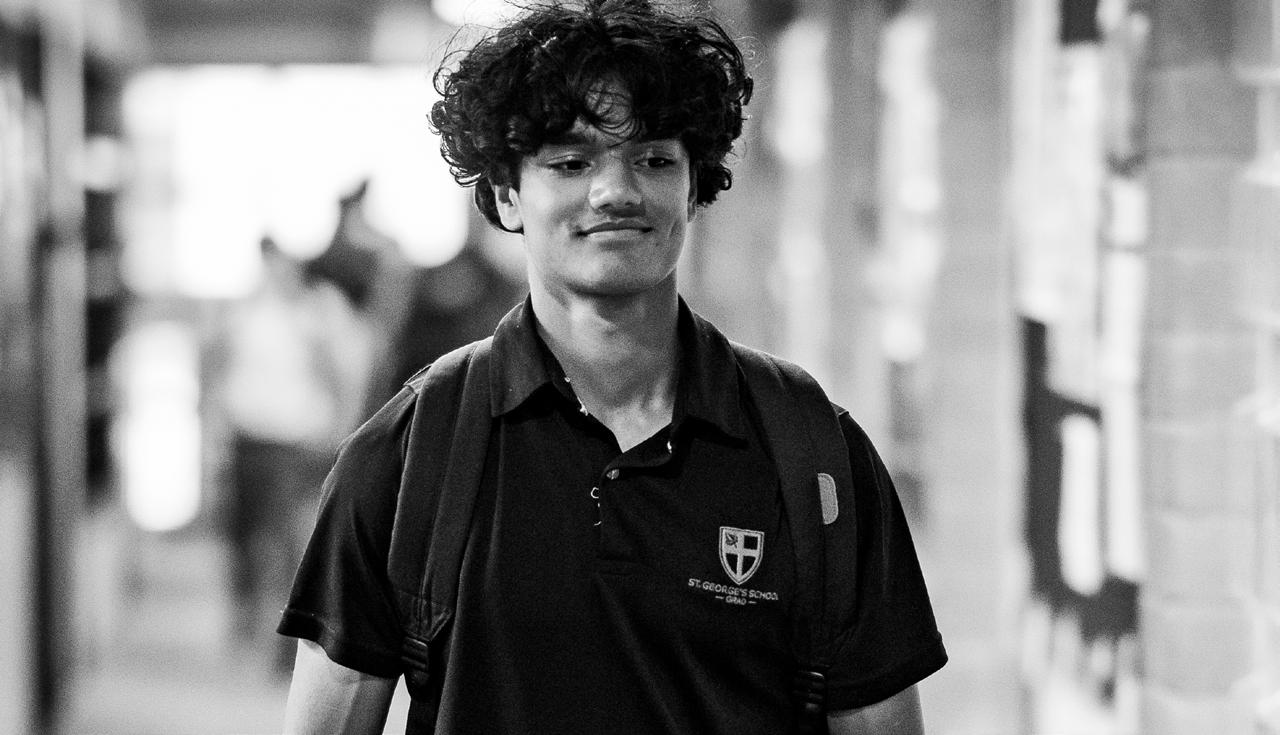
AP Biology 12 is designed to be the equivalent of a college introductory Biology course usually taken by Biology Majors during their first year. The two main goals of AP Biology are to help students develop a conceptual framework for modern biology and to gain an appreciation of the scientific process. Major themes that are emphasised include science as a process, evolution, genetics, energy transfer, continuity and change, relationships of structure to function, regulation, interdependence in nature, and science technology and society.
PRE-REQUISITE:
Completion or be concurrently enrolled in Anatomy and Physiology 12. Grade 12 students only.
ELECTIVE
DIRECT INSTRUCTION, INQUIRY/PROJECT, TECHNOLOGY/TOOLS, EXPERIENTIAL 1-2 HOURS
Topics taught in Chemistry 11 are the foundational skills for all higher level chemistry courses. These include an overview of the historical and philosophical developments that led to the modern quantum model of the atom and the organization of the periodic table; the quantum model of the atom to predict the structure of simple molecules and compounds, including organic molecules; the nature of chemical bonds and prediction of physical and chemical properties; and the mole concept and its applications in stoichiometry, including solution chemistry. Laboratory skills and experiments are integrated with the theory to reinforce the concepts and their practical origins throughout the course.
ELECTIVE DIRECT INSTRUCTION, INQUIRY/PROJECT 3-5 HOURS
This is the first year of a two-year program that will provide an opportunity for the very best students of chemistry who scored a minimum 90% in Chemistry 10 to gain credit for Chemistry 11, Chemistry 12, and Chemistry AP through two courses. The Chemistry 11H course is a demanding and enriched version of Chemistry 11 and will cover the regular Chemistry 11 curriculum (see above) and five units from AP Chemistry. Students will receive credit for Chemistry 11 at the end of their Grade 11 year.
PRE-REQUISITE:
Required to have earned a 90% grade or Extending proficiency levels on the skills and chemistry outcomes of Science 10, or with approval of Head of Department for Science.
ELECTIVE DISCUSSION, EXPERIENTIAL 3-5 HOURS
CHEMISTRY 12
Chemistry 12 is a course in physical and inorganic chemistry with a quantitative emphasis; therefore, students must be adept at algebraic and numerical problem solving. Students use a variety of analytical skills and experimental techniques to measure rates of reaction and study dynamic equilibrium, solubility equilibrium, and acid-base reactions. This experimental data is used to develop and interpret the appropriate theory. The clear presentation of ideas with full supporting factual data is expected in both written work and during in-class activities. An emphasis is placed on making connections between the material studied and the real world.
PRE-REQUISITE: Chemistry 11
RECOMMENDATION:
Recommended to have earned a B grade or higher in Chemistry 11.
ELECTIVE DIRECT INSTRUCTION, INQUIRY/PROJECT 3-5 HOURS
This is the second year of the Chemistry 11 Honours / Chemistry Advanced Placement Program. In Grade 12, students who successfully completed Chemistry 11H, with a minimum “A” standing, will continue their rigorous study of chemistry with the remaining eight units of AP Chemistry. Five of these units form the basis of the provincial Chemistry 12 curriculum and therefore students will receive credit for Chemistry 12 and Chemistry AP upon successful completion of this course.
PRE-REQUISITE:
Completion of Chemistry 11 is required and one of:
1) earning an A grade in Chemistry 11H or
2) an A grade in Chemistry 11 along with a summer study package and assessment in September. Material is available from the Head of Department for Science.
ELECTIVE DIRECT INSTRUCTION, DISCUSSION 3-5 HOURS
This course is focused on discovering the changing nature of our world, and developing the ability to think on a geological timescale. Students will study topics such as geology, plate tectonics, oceanography and the hydrosphere, meteorology, and astronomy. They will discuss how these topics have an impact on our lives, and work to gain a deeper understanding of how our place in the universe came to be. The course focuses on climate change as well as topics and issues that relate from climate change.
ELECTIVE
DIRECT INSTRUCTION, DISCUSSION, INQUIRY/PROJECT 1-2 HOURS

This is a descriptive science course, rather than a rigorouslymathematical analytical course. The goal of the AP Environmental Science course is to provide students with the scientific principles, concepts, and methodologies required to understand the inter-relationships of the natural world, to identify and analyze environmental problems both natural and human-made, to evaluate the relative risks associated with these problems, and to examine alternative solutions for resolving or preventing them. Environmental Science is interdisciplinary. The following themes provide a foundation for the structure of the AP Environmental Science course. Energy conversions underlie all ecological processes; the Earth itself is one interconnected system; humans alter natural systems; environmental problems have a cultural and social context; understanding the role of cultural, social, and economic factors is vital to the development of solutions; human survival depends on developing practices that will achieve sustainable systems.
ELECTIVE
DISCUSSION, INQUIRY/PROJECT TECHNOLOGY/TOOLS
1-2 HOURS
Geology 12 explores the history of the Earth's formation. After a thorough investigation of minerals, rock types, and the sources of these minerals and rock types, the scope of the course broadens to investigate other aspects of the Earth and its history. The significance of volcanism, metamorphic events, weathering and erosion, and mountain building are explored in detail to explore and explain changing physical landscapes. Earth's history is explored in detail through the study of paleontology to explore themes that include the history of life on Earth, biological diversity, and extinction events. The earth is studied as a continually changing, open laboratory; the course seeks to enhance the student's understanding of the earth and the processes that continue to shape its evolution. The theory of plate tectonics and its relationship to geological events such as earthquakes, volcanoes, mountain building, and mineral resources is also explored in depth. Surface processes including glaciers, running water, groundwater and groundwater resources are investigated, and align closely with Geography 12
ELECTIVE DIRECT INSTRUCTION, INQUIRY/PROJECT 1-2 HOURS
Welcome to Biodiversity 12 where we study all the different kinds of life you find in one area— animals, plants, fungi, and even microorganisms like bacteria that make up our natural world. This course is assessed through projects and labs, not tests. The purpose is to immerse students in hands-on experiences so they can understand how organisms work together in ecosystems, like an intricate web, to maintain balance and support life. The course will focus on different environments, examining how the organisms that live there shape and are shaped by their home. This course will open your eyes to the wonder of many new fields of Biology and provides a valuable foundation to students wishing to pursue Biology degrees in post-secondary institutions, or students looking at other faculties of study but value learning about the natural world. This course is eligible to students in Grade 11 as their Grade 11 science course.
ELECTIVE DIRECT INSTRUCTION, EXPERIENTIAL 3-5 HOURS
The grade 11 science curriculum focuses on fostering the following scientific skills and aptitudes: questioning and predicting; planning and conducting; processing and analyzing data and information; evaluating; applying and innovating; and communicating. Physics 11 applies these competencies to foundational physics principles organized in the following units: kinematics, dynamics, energy, and waves. Kinematics includes recognizing that an object's motion can be predicted, analyzed, and described. Dynamics involves understanding that forces influence the motion of an object. Energy includes seeing that energy is found in different forms, is conserved, and has the ability to do work. The energy unit also includes work and power, thermal energy, and electric circuits. Finally, the waves unit includes recognizing that mechanical waves transfer energy but not matter. In addition to scientific competencies, numeracy and literacy skills are developed and assessed throughout the course.
ELECTIVE DIRECT INSTRUCTION, INQUIRY/PROJECT 3-5 HOURS
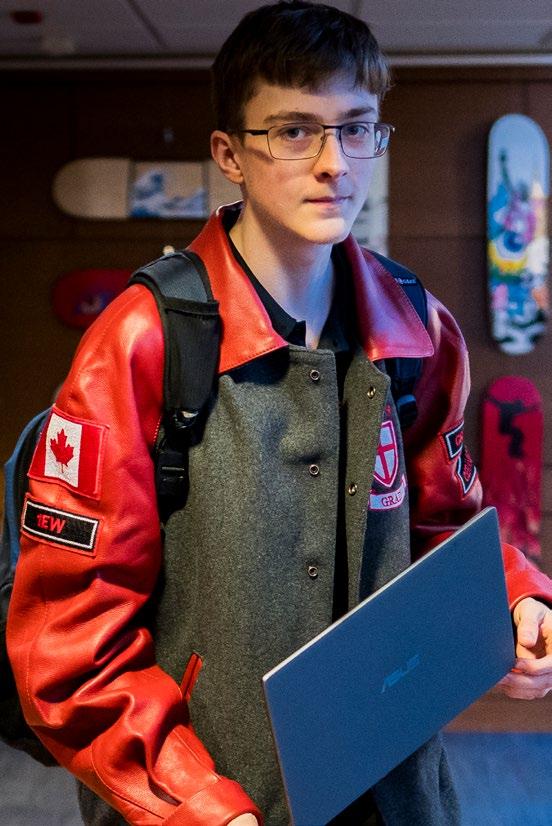
This is the first year of a two-year stream that provides an opportunity for students who are passionate about physics to complete Physics 11, Physics 12, Physics AP-1, and Physics AP-2 over their grade 11 and 12 years. This is a very challenging, rigorous, algebra- based course, covering the full curriculum of Physics 11 and the AP-1 courses and portions of Physics 12 (momentum and static equilibrium). Experimental work is an important part of any physics program, and it is a strong component in the AP courses. Topics covered in Physics 11 Honours include the following: kinematics; dynamics; motion and momentum; work and energy; gravitation and circular motion; and waves. Students taking this course will be prepared to write the College Board exam for Physics AP-1 in May of their grade 11 year. Students will receive credit for Physics 11 and Physics AP-1, and will ordinarily continue into the Physics AP-2 course in their Grade 12 year. This course is accelerated and students should expect to be challenged and possess excellent independent learning skills. Students requesting Physics AP-1 should have a real passion for Physics. Mathematics, especially algebra, is used throughout the course so students should have demonstrated a high degree of competence and confidence.
PRE-REQUISITE:
Required to have earned an A grade or Extending proficiency levels on the skills and physics outcomes of Science 10, and an A in Pre-Calculus 11, or with approval of Head of Department for Science.
ELECTIVE DIRECT INSTRUCTION, EXPERIENTIAL 3-5 HOURS
Physics 12 at St. George’s School continues from Physics 11 in developing an understanding of the world around us. We use a mathematical approach to describe motion in terms of the forces which govern the interactions between objects. The course’s many learning outcomes all contribute to a greater understanding of the interactions between objects and fields, and help us to predict their behaviors.
PRE-REQUISITE: Physics 11
ELECTIVE DIRECT INSTRUCTION, EXPERIENTIAL 3-5 HOURS
This is the second year of the Physics AP stream. The course contains a large portion of material that is common to both Physics 12 and AP-2 as well as several topics specific to one or the other. Topics covered in Physics AP-2 include the following: dynamics, thermodynamics with kinetic theory, electrostatics, electric circuits with capacitors, electromagnetism, physical and geometric optics, and topics in modern physics. Students will be prepared to write the College Board exam for Physics AP-2 in May, and will have regular assessments to complete the Physics 12 outcomes. They will be asked to make connections between the content from this course and other courses and experiences. Experimental work is an important part of any physics program, and it is a strong component in the AP courses. Students receive credit for Physics 12 and Physics AP-2.
PRE-REQUISITE: Required to have earned an A grade or Extending proficiency levels on the skills and physics outcomes of Science 10, and an A in Pre-Calculus 11, or with approval of Head of Department for Science.
ELECTIVE DIRECT INSTRUCTION, EXPERIENTIAL 3-5 HOURS
Anatomy and Physiology 12 is an intensive, in-depth study of the wonders of the human body. The focus shifts from the atomic with molecular biology, through microscopic with cellular biology and then macroscopic as body parts and body systems are fully understood. This course has students engaging in a large number of labs, projects and dissections so that they can really understand the content they are learning and see how it is applied in a real world context. In many units, students have opportunities to pursue topics of personal interest and to present their findings on various diseases, disorders, and health issues to their peers. Given one only gets one life to live, this course is essentially like getting to study the operating manual of the care and keeping of your body. The end goal is a detailed understanding of factors that can impact human health and how to use our knowledge to keep ourselves as healthy and happy as possible. If you're not interested in humans, see Life Sciences 11.
Students taking this course in grade 11 are recommended to have earned Extending proficiency levels or A grades on the skills and biology outcomes of Science 10.
ELECTIVE DIRECT INSTRUCTION, INQUIRY/PROJECT 1-2 HOURS
20th Century World History focuses on developing students’ abilities to think conceptually about World History from approximately 1918 to the present, and to apply historical thinking skills as they learn about the past. Students will study three ‘Big Ideas’ of equal importance — Nationalist movements can unite people in common causes or lead to intense conflict between different groups; the rapid development and proliferation of technology in the 20th century led to profound social, economic, and political changes; and the breakdown of long-standing empires created new economic and political systems — providing areas of historical inquiry for investigation throughout the course. Studying these themes requires students to use reason in order to examine historical significance. They will be evaluating source material and examining differing perspectives, drawing connections and conclusions about continuity and change over time, and weighing cause and consequence as we look at the course in the context of ethical judgement and historical empathy.
ELECTIVE DIRECT INSTRUCTION, INQUIRY/PROJECT 1-2 HOURS
In Comparative Cultures 12, students explore a variety of cultures throughout the world, both ancient and modern, through an anthropological lens. The course probes the essential elements of culture, from laws and economics to gender and sport, and interrogates our frameworks for understanding them. Above all, students are encouraged to make cross-cultural connections, and analyze our present, lived culture(s) through learning about those as disparate as Golden Age pirates and Ancient Egypt. Student interests play a key role in shaping the content and nature of this discussion-focused, interdisciplinary course, and students are encouraged to share their learning in a variety of ways beyond the traditional essay. .
ELECTIVE DISCUSSION, INQUIRY/PROJECT 1-2 HOURS

AP European History 12 focuses on developing students’ ability to think conceptually about European History from approximately 1450 to the present and apply historical thinking skills as they learn about the past. The students will study five themes of equal importance— interaction of Europe and the world, poverty and prosperity, objective knowledge and subjective visions, states and other institutions of power, and individual and society — providing areas of historical inquiry for investigation throughout the course. These require students to reason historically about continuity and change over time and make comparisons among various historical developments in different times and places.
(Offered on a two year rotation, next offered 2025-26)
ELECTIVE DISCUSSION, INQUIRY/PROJECT 3-5 HOURS
AP Comparative Government and Politics 12 introduces students to the rich diversity of political systems. The course uses a comparative approach to examine the political structures; policies; and political, economic, and social challenges of six selected countries: Great Britain, Iran, China, Russia, Mexico, and Nigeria. Students will compare the effectiveness of approaches to many global issues by examining how different governments solve similar problems. They will also engage in disciplinary practices that require them to read and interpret data, make comparisons and applications to real world issues, and develop evidence-based arguments. This is a discussion-based course.
ELECTIVE DIRECT INSTRUCTION, INQUIRY/PROJECT 1-2 HOURS
The AP Human Geography course helps students understand the influence of globalizing forces, the frameworks of political systems, and the economic developments which have transformed regions. As such, the course provides students with models for understanding the world around them. The major units introduce students to key geographic concepts, skills, and issues. Issues explored relate to population studies; differing cultural patterns and their impact on the environment; political frameworks; agriculture and rural land use; the rise of cities, urban patterns, and urban planning; and global patterns of industrialization and their impacts.
Throughout the year, students will complete problem-based learning and inquiry-based assignments, Harkness discussions, AP exam preparation, and further develop their research and essay writing skills. They will also be asked to participate in field trips. Human Geography AP offers great diversity. This course will appeal to students who enjoyed success in their earlier work in Social Studies and are now interested in such areas of college study as Geography, History, Economics, Sociology, Political Science, and Anthropology.
ELECTIVE DISCUSSION, INQUIRY/PROJECT 3-5 HOURS
In Law Studies 12, we consider three questions to help students develop their own definition of justice: 1. What does justice look like?
2. What has been said about justice?
3. How do we achieve justice?
Through the first question, we look at the Canadian criminal and civil system and feature mock trials and a trip to the Law Courts along with guest speakers. In the second question, we look at the nature of law and criminality more philosophically; we consider moral dilemmas, classic and modern philosophers, and work to recognize how our own perspective and experiences shape our beliefs and ideas about justice. The third question is explored through independent inquiries into instances of injustice, applying our learning from the rest of the year towards understanding the problem and proposing solutions. Law 12 is a dynamic, participation-centred course that is suitable for both Grade 11 and Grade 12 students interested in a range of ideas, questions, and concepts related to law, power, governance, systems, and issues in society.
ELECTIVE DISCUSSION, INQUIRY/PROJECT 3-5 HOURS
Physical Geography 12 involves the examination of interrelationships and interdependencies among natural and cultural phenomena in order to enhance student understanding and familiarity with the physical and human environments which surround them. The course begins with an exploration of the roots of geography in our society and an in-depth look into mapping and Geographic Information Systems. The students will then move to a study of the physical and biological processes which have shaped, and continue to shape, the world around us. Topics include the rock cycle, plate tectonics, gradational processes, weather, climate, soils, and vegetation. Throughout the year, students will examine resource management and assessment through the analysis of various local and international case studies, coupled with a brief introduction to resource use and environmental ethics. Effective written and oral communication is emphasized throughout the year.
ELECTIVE DIRECT INSTRUCTION, INQUIRY/PROJECT 1-2 HOURS
AP Psychology 12 will introduce students to the systematic and scientific study of behaviour and mental processes of human beings and other animals. Students are exposed to the psychological facts, principles, and phenomena associated with each of the major subfields within psychology. Major content areas include the following: methods, approaches, and history; biological bases of behaviour; sensation and perceptions; states of consciousness; learning; cognition; motivation and emotion; developmental psychology; personality; abnormal psychology; treatment of psychological disorders; and social psychology.
ELECTIVE
DIRECT INSTRUCTION, DISCUSSION, INQUIRY/PROJECT 3-5 HOURS
AP U.S.. History 12 is an engaging discussion around some of the key issues and events that have shaped America today. This course covers U.S. history from the pre-Columbian period to the present. Student-centered, conversational, and problembased learning dominate this course. In addition, this course is taught using a variety of styles including: simulations, debates, discussions, document analysis, documentaries, films, projects, and presentations. Thus, collaboration, collegiality, and critical thinking are key components. AP U.S.. History 12 follows a chronological approach and covers legal, economic, and social history as well as the more traditional political, military-diplomatic, and biographical themes. Those interested in attending college or university in the U.S.; having a career in law, politics, government, journalism, management, or history; or learning about how the U.S. came to dominate world affairs should carefully consider taking the AP U.S. History course.
(Offered on a two year rotation, next offered 2024-25
ELECTIVE DISCUSSION, INQUIRY/PROJECT 3-5 HOURS
In AP World History 12, students investigate significant events, individuals, developments, and processes in four historical periods ranging from 1200 to the present. Students develop and use the following same skills, practices, and methods employed by historians: analyzing primary and secondary sources; making historical comparisons; utilizing reasoning about contextualization,
causation, and continuity and change over time; and developing historical arguments. The course provides five themes that students explore throughout the course in order to make connections among historical developments in different times and places including: interaction between humans and the environment; development and interaction of cultures; state building, expansion, and conflict; creation, expansion, and interaction of economic systems; and development and transformation of social structures.
ELECTIVE
DIRECT INSTRUCTION, DISCUSSION, INQUIRY/PROJECT 3-5 HOURS
Derived from a Greek word that means ‘lover of wisdom’, Philosophy is an academic discipline that examines the fundamental nature of knowledge, reality, and existence. In the history of education, Philosophy was essentially the first subject because it involves what we think about subjects, rather than the use of experimentation and observable evidence. As areas of study have become accessible to empirical investigation, they have become their own subjects, such as Biology, Chemistry, Mathematics, and History. However, Philosophy retains its value in the modern world as there are still many deep, fundamental questions to be explored. This course will deal with 5 key areas, 1) methods of reasoning and argument in philosophy, 2) metaphysical theories about the nature of reality, 3) epistemological theories about knowledge and truth, 4) social and political philosophy, and 5) theories of morality, ethics, and aesthetics. Examples of topics that will be discussed include, logic and rational argument, logical fallacies, idealism, materialism, free will, skepticism, personal identity, justice, rights, virtue ethics, and many more. The course will be anchored in reading for understanding and discussion based learning, but will involve numerous written responses to philosophical questions and a major project around developing your own personal philosophy for life.
ELECTIVE DISCUSSION, INQUIRY/PROJECT 1-2 HOURS
CONTEMPORARY INDIGENOUS STUDIES 12
Contemporary Indigenous Studies 12 offers students an opportunity to honour the Calls to Action from the Truth and Reconciliation Commission of Canada in addressing injustices of the past and committing to the act of reconciliation. The big ideas of the course focus on learning about Indigenous cultures and worldviews in Canada, the resistance and resilience of Indigenous communities, and the rights and responsibilities of governments and citizens in taking action against injustices. The course is an interdisciplinary blend of history, geography, politics, law, economics, and art. The course will feature inquiry projects and discussion-based learning.
ELECTIVE DISCUSSION, INQUIRY/PROJECT 1-2 HOURS
New for 2024–25, Urban Studies is an interdisciplinary course that blends together history, geography, and politics of the city. It looks at the big ideas of urbanization as a critical force, the historical development of cities, decision making in the planning of cities as well as contemporary issues in urban studies both in Vancouver and abroad. Students will be introduced to real world geographic technological tools such as ArcGIS. The course will be largely discussion-based, including guest speakers and offsite learning. Students will also have an opportunity to create their own city planning project.
ELECTIVE DISCUSSION, INQUIRY/PROJECT 1-2 HOURS
DRAMA 11
All students are welcome to take this fun, exciting course, regardless of their experience levels! The main goal of Drama 11 is for students to expand their understanding of what is possible in the fields of theatre and acting. Students will experiment with new styles of movement and staging to tell stories, learn new techniques to discover and create characters from a script, and work with a professional film actor on a simulated film set. Students will also perform a one-act play using a professionally written script, and perform this play for various audiences, including at a local drama festival. Drama 11 gives all students the opportunity to develop their creativity and experience the supportive team environment of a play's cast without the after-school commitment and gives seasoned actors new tools that they can apply to other productions.
ELECTIVE INQUIRY/PROJECT, EXPERIENTIAL 0 HOURS
DRAMA 12
Drama 12 is welcome to all, offering an opportunity for self-directed growth. It provides an enriched introduction to the craft of acting for students who are newly interested in theatre, while also acting as a final developmental stage for experienced actors. Students will gain confidence, collaboration, and listening skills in a supportive, teamoriented environment, which also prepares those who are interested for post-secondary acting and theatre opportunities. Fun and rewarding dramatic exercises, scene work, direction, and most importantly, performance, make up the landscape of Drama 12. Ensemble work is stressed so attendance is critical. Drama 12 students write or are provided with a script that aims to challenge but not defeat the actor, and will be performed in front of an invited audience during the school day in the last few weeks of the year.
Some acting experience or lower-level drama courses are helpful and encouraged, but not required.
ELECTIVE INQUIRY/PROJECT, EXPERIENTIAL 0 HOURS
Directing and Script Development 11 (previously known as Film Studies 11) focuses on individual and collective story-telling and meaning through the lens of vibrant histories, diverse cultures, and contemporary communities. With an ever-improving critical eye, students will explore people’s sense of identity and belonging. They will begin to understand the dedication and resilience of film-makers as they use a myriad of artistic techniques to immerse their audiences in the lives of their characters and subjects. In the end, the critical viewer must become the storyteller himself in order to understand how creativity and collaboration bring new perspectives to light and can change both the artist and the audience.
ELECTIVE
INQUIRY/PROJECT, TECHNOLOGY/TOOLS, EXPERIENTIAL
1-2 HOURS
Television Production 11 offers students the opportunity to delve into the creative and technical side of short filmmaking. Students will learn and practice industry techniques and demonstrate their learned knowledge through group-based film projects. All units and projects in this course are structured to include the Pre-Production, Production, and PostProduction phases to allow for thorough understanding of the total process of film production. We will explore the fundamentals of writing and acting for the screen. During film apperception discussion, students will learn to unpack what makes a film successful. Finally, students will have an opportunity to take part in both live broadcasts of major school events as well as spirit videos to promote school events. A tremendous amount of maturity, cooperation, communication, and effort is required in this course due to the high level of group-based projects as well as the responsibilities related to our filmmaking equipment. Students taking Television Production 12 (see prerequisite) will go into more depth on the course outcomes, have the opportunity to specialise their learning, and will be expected to provide leadership and mentorship to the program.
ELECTIVE
INQUIRY/PROJECT, TECHNOLOGY/TOOLS, EXPERIENTIAL
5+ HOURS
TVP 12 is the subsequent course of TVP 11. This prerequisite model allows now experienced film students the chance to build off of all previous knowledge, skills, and experience gained during the students' journey through TVP 11. TVP 12 offers students the opportunity to delve deeper into the technical and stylistic side of filmmaking. Students will learn and practice industry techniques building off of their already acquired skills. This learning will be demonstrated through group-based projects. All units and projects in this course are structured to include the Pre-Production, Production, and Post-Production phases as per industry standards. Throughout the year, students will have many opportunities to continue to find their own style as a filmmaker and to be able to identify particular styles of known filmmakers. A variety of creatively structured projects allow for deep learning and growth towards a number of skills and abilities.
PRE-REQUISITE:
Television Production 12 requires completion of Television Production 11
ELECTIVE
INQUIRY/PROJECT, TECHNOLOGY/TOOLS, EXPERIENTIAL 5+ HOURS
Theatre Production 11/12 is a hands-on experience for students working on Saints Players Theatre Company productions and other events in the Auditorium. The course is meant for students who wish to gain valuable practical skills, many of which are applicable outside of theatre. The course offers students the chance to explore areas such as stage/ house management, lighting, sound, scenic design, scenic painting, setconstruction, wardrobe, props, and makeup.
This course supports the various stage productions at St. George's School throughout any given school year, including events such as plays, concerts, musical shows, and some presentations at weekly assemblies. This will require, from each student, some out-of-class time for a variety of activities, including scenic design and construction, props building, rehearsals, and the set-up, run, and strike phases of a production.
Students should enter the class with the understanding that they will be required to work the show run of at least one of the school productions, which is a very rewarding but serious time-commitment. Students taking Theatre Production 12 (see prerequisite) will go into more depth on the course outcomes, have the opportunity to specialise their learning, and will be expected to provide leadership and mentorship in the program.
PRE-REQUISITE:
Theatre Production 12 requires completion of Theatre Production 11.
ELECTIVE
INQUIRY/PROJECT, TECHNOLOGY/TOOLS, EXPERIENTIAL
1-2 HOURS


12
AP 3-D DESIGN PORTFOLIO 12
AP STUDIO ART: DRAWING 12
Students select one of the following programs offered: 2-Dimensional Design, 3-Dimensional Design, or Drawing. AP Studio Art is designed for students who are seriously interested in the practical experience of art and have time to dedicate to their practice. Students select an area of focus and create a portfolio of work to demonstrate their artistic skills and ideas they have developed, refined, and applied over the course of the year. Students submit portfolios to the AP board for evaluation in midMay.
ELECTIVE
DIRECT INSTRUCTION, INQUIRY/PROJECT, EXPERIENTIAL
3-5 HOURS
With no prior art experience necessary, this course gives students an introduction to graphic design through fine arts processes combined with digital media such as Photshop and Adobe Illustrator. Students will explore imagery making through traditional drawing, painting, and printmaking techniques, which they will transfer into digital media to make original patterns, laser-cut graffiti stencils, logos, t-shirts, and digital fine art prints on canvas. Students will further understand visual literacy through an exploration of social media, advertising, and street art as it pertains to contemporary culture. Students will explore themes through a personal journey that encourages them to express themselves imaginatively and visually communicate their ideas.
ELECTIVE
DISCUSSION, INQUIRY/PROJECT, TECHNOLOGY/TOOLS
0 HOURS
An extension of Media Arts 10, this course builds upon the students’ understanding of new media techniques. Students will continue to explore and create digital imagery through more involved assignments. Based on the processes and content areas of the visual arts curriculum, the course provides an advanced overview of some, if not all of the following: Animation, Film/Digital Video, Graphic Design, Photoshop, and Digital Photography. With extensive use of Harmony by Toon Boom, Adobe Premiere, and Photoshop, students will approach the creative process from an enhanced technical and aesthetic point of view on a Mac computer.
PRE-REQUISITE:
Experience in Animation 9, Media Arts 9 and or Media Arts 10 is recommended. or with related experience and approval of the Head of Department for Visual Arts.
ELECTIVE INQUIRY/PROJECT, TECHNOLOGY/TOOLS 0 HOURS
An extension of Media Arts 11, this course builds upon the students’ understanding of new media techniques. Students will continue to explore and create digital imagery through more involved, and conceptual assignments. This course is designed for students who have completed Media Arts 11 and wish to take their technical knowledge base of digital software to the next level, and engage in the creative process in an independent study format. Students are encouraged to think conceptually and critically, and to visually problem solve through personal expression of ideas. The sketchbook will be a visual and written diary documenting the creative process through collections of images, artistic resources, and brainstorming. Context and linear development to a design solution is essential.
PRE-REQUISITE:
Completion of Media Arts 11 or with related experience and approval of Head of Department for Visual Arts.
ELECTIVE INQUIRY/PROJECT, TECHNOLOGY/TOOLS 0 HOURS

AP History of Art 12 is an introductory college-level art history course. Students cultivate their understanding of art history through analyzing works of art and placing them in historical context as they explore concepts like culture and cultural interactions, theories and interpretations of art, the impact of materials, processes, and techniques on art and art making, and understanding purpose and audience in art historical analysis.
ELECTIVE INQUIRY/PROJECT, EXPERIENTIAL 0 HOURS
Many of the processes used in this course are familiar to the students. The diverse nature of the course allows for flexibility, creative thinking, and risk-taking. Based on general themes, the students are encouraged to develop imagery in a two-dimensional medium that best suits their visions. The evolution of ideas and exploration of design problems and techniques occur in the sketchbook. Studies and preliminary work are developed before any major project. This course expects students to focus on their imagination and creativity, rather than their technical limitations. The students will exhibit their work throughout the year, and everyone is expected to participate in a final show at the end of the year.
ELECTIVE INQUIRY/PROJECT, EXPERIENTIAL 1-2 HOURS
At this level, the students are expected to work with increased independence, resolving their own questions derived from given themes. They will design works to express their own understanding of self. Portfolio development is an integral part of the course as it helps to gain greater understanding of their creative potential and journey. The teacher acts as a resource person and helps with aesthetic and technical problem-solving. Sketchbooks are a requirement and all artwork should display vision and imagination. Students are asked to use their books to explore their creativity, focussing on their imagination rather than their technical limitations. The students will exhibit their work throughout the year, but all are expected to participate in a final show at the end of the year.
PRE-REQUISITE: Studio Arts 2D 11
ELECTIVE INQUIRY/PROJECT, EXPERIENTIAL 0 HOURS
In this course, students spend half of the year on the potter’s wheel making increasingly complex pottery forms. The other half of the year is spent creating hand-built sculpture projects, including using and making plaster molds for slip casting. The course is projectbased and students are encouraged to express their own ideas, emotions and personalities using clay and ceramic processes. Sketchbooks are used to document the creative processes explored throughout the year. The course includes visiting artists and field trips for inspiration and learning about the diverse world of Ceramic art. A “Raku firing” at the Shadbolt center closes out the year. It gives students the opportunity to participate in the experience of directly working with fire. All work assigned can be completed in class time, but students are encouraged to attend Ceramics Club to extend their exploration and skill development.
PRE-REQUISITE: Completion of Studio Art 3D 8, 9, or 10.
ELECTIVE
DIRECT INSTRUCTION, INQUIRY/PROJECT, TECHNOLOGY/TOOLS, EXPERIENTIAL 0 HOURS
At this level, the students are expected to work with increased independence, resolving their own questions derived from given themes. They will design works to express their own understanding of self. Portfolio development is an integral part of the course as it helps to gain greater understanding of their creative potential and journey. The teacher acts as a resource p erson and helps with aesthetic and technical problem-solving. Sketchbooks are a requirement and all artwork should display vision and imagination. Students are asked to use their books to explore their creativity, focussing on their imagination rather than their technical limitations. The students will exhibit their work throughout the year, and all are expected to participate in a final show at the end of the year.
PRE-REQUISITE: Studio Arts 3D 11
ELECTIVE INQUIRY/PROJECT, TECHNOLOGY/TOOLS 0 HOURS
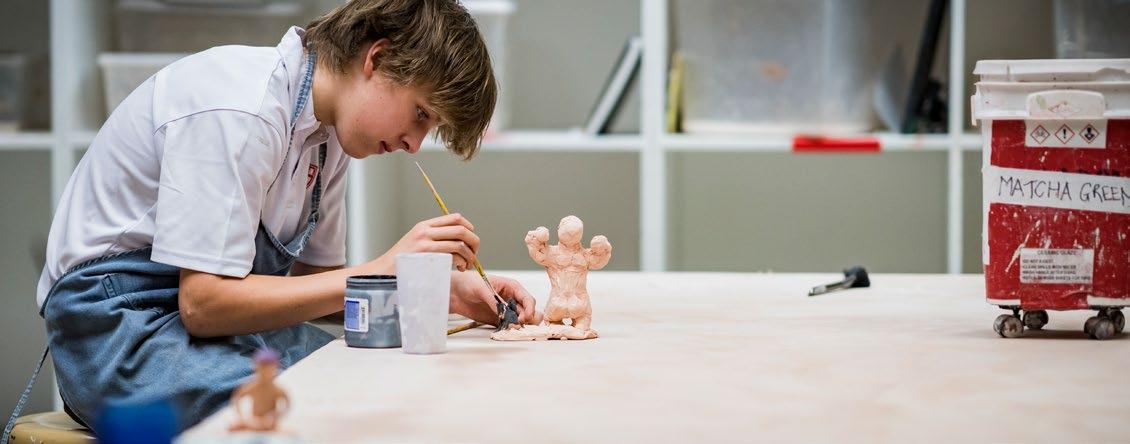
Career LIfe Connections (CLC) is a mandatory course for graduation that students will complete in their Grade 11 and 12 years. CLC 11 is a scheduled course, that will occur outside of the regular timetable (after school) for one term of the student's choice. The course will be delivered using a combination of synchronous and asynchronous learning activities as well as an opportunity to participate in a work placement experience. Learning will focus on preparation for the future as lifelong learners, focusing on themes of personal reflection and community engagement, personal futures and postsecondary preparation, and lifeskills and wellbeing. CLC 11 is a prerequisite for the CLC 12 course, which will focus on community engagement and the completion of a Capstone Project. CLC 12 will be a non-scheduled course that students complete independently and with support in X Blocks, Flex Weeks, Special Events, etc.

SENIOR CAMPUS: 4175 West 29th Avenue, Vancouver, BC Canada V6S 1V1 T: 604-224-1304 | F: 604-224-7066
JUNIOR CAMPUS: 3851 West 29th Avenue, Vancouver, BC Canada V6S 1T6 T: 604-224-1304 | F: 604-224-3515





info@stgeorges.bc.ca stgeorges.bc.ca saintsbc saintsbc saintscommunications stgeorgesbc

 ST. GEORGE’S SCHOOL IS PROUD TO BE ASSOCIATED WITH:
St. George’s School acknowledges that we are situated on the unceded traditional territory of the Musqueam First Nation.
ST. GEORGE’S SCHOOL IS PROUD TO BE ASSOCIATED WITH:
St. George’s School acknowledges that we are situated on the unceded traditional territory of the Musqueam First Nation.